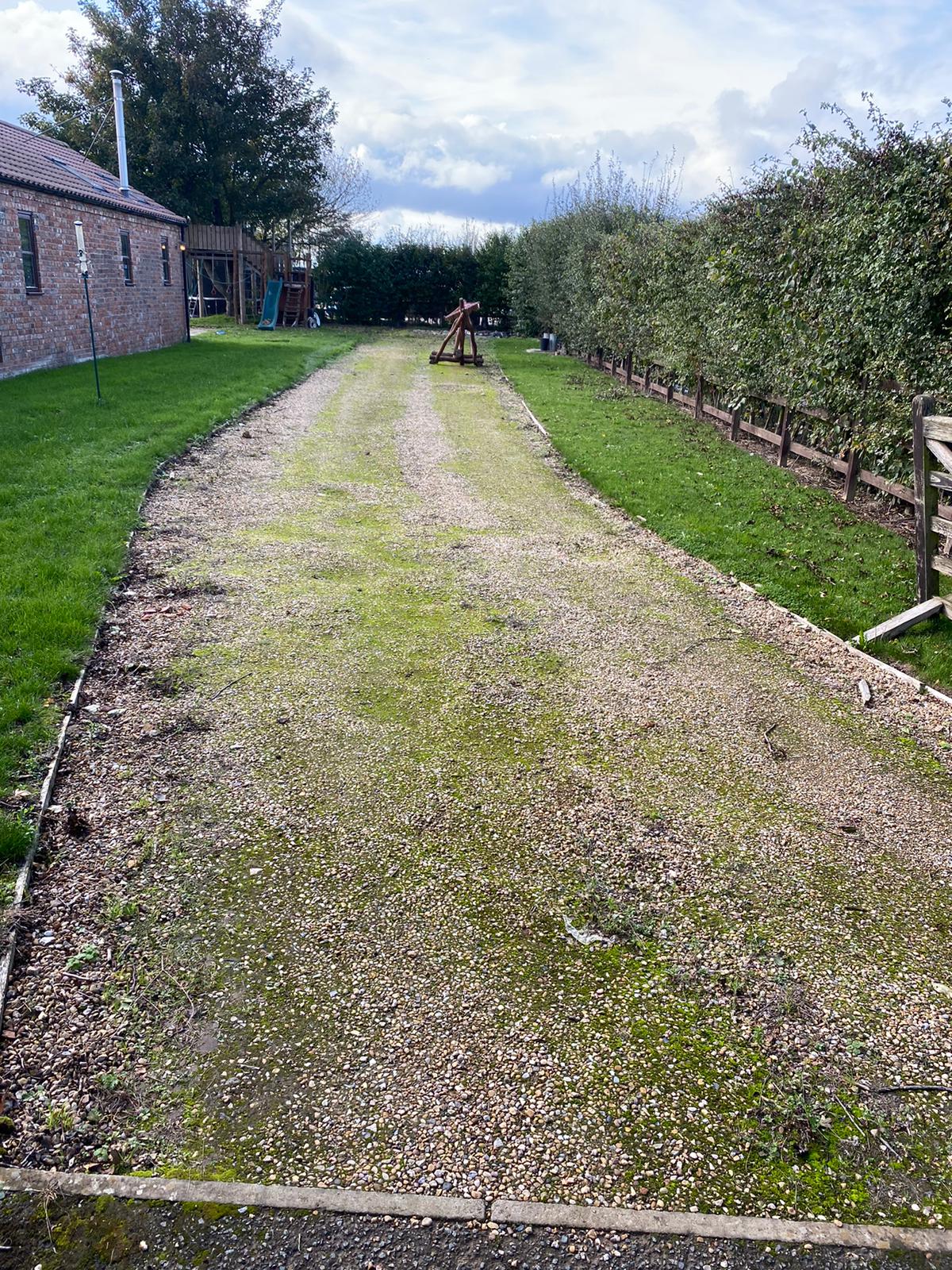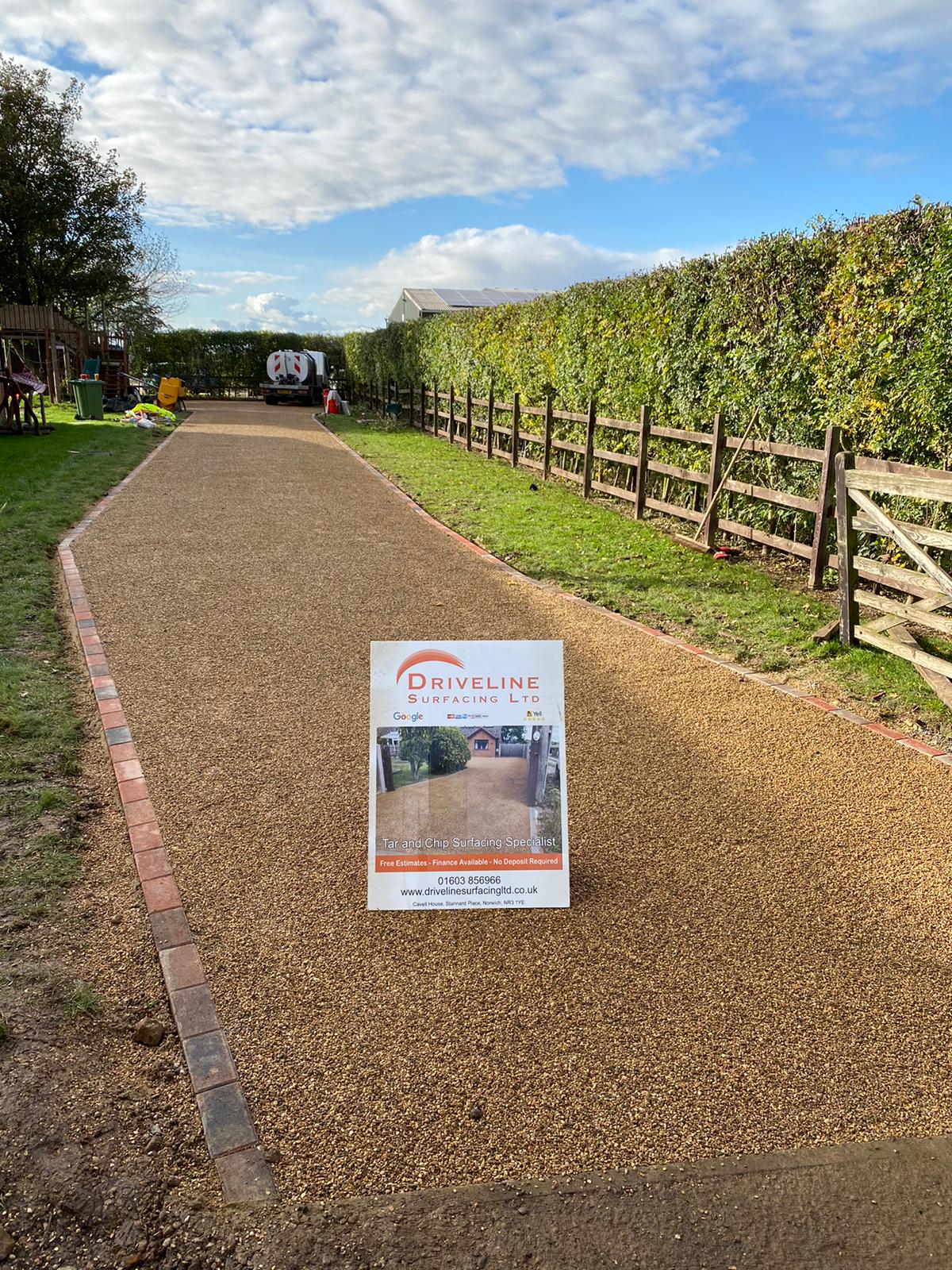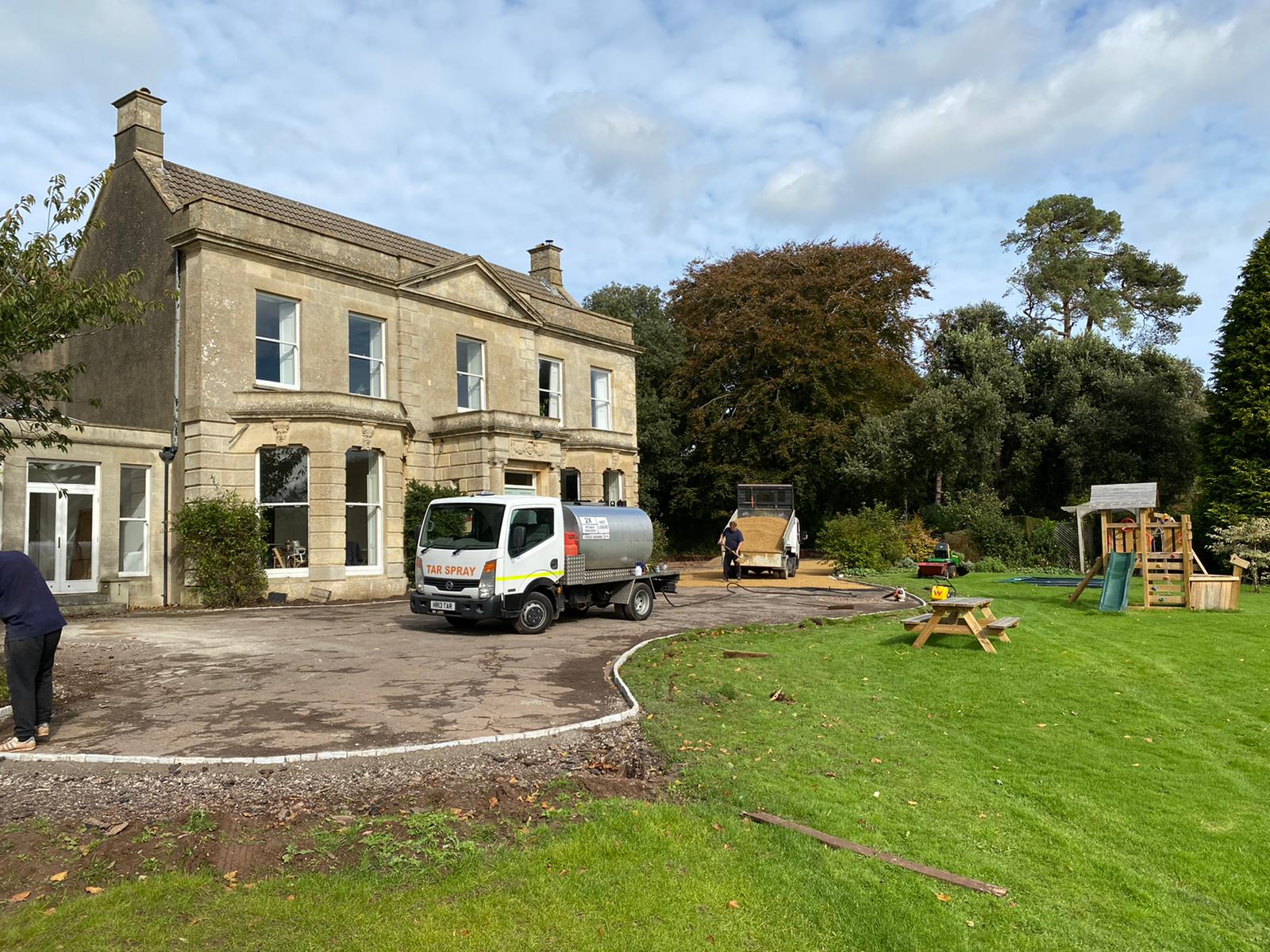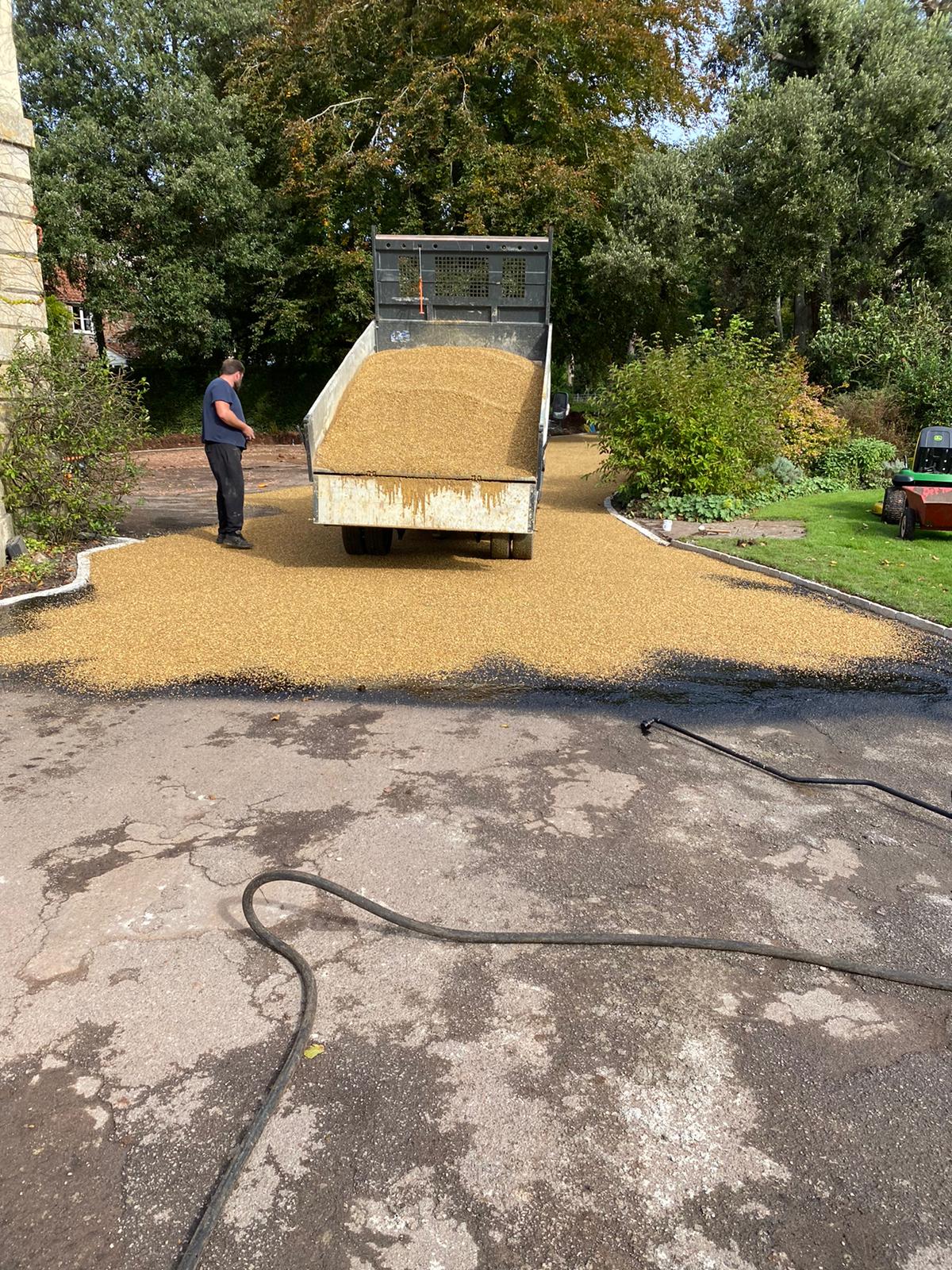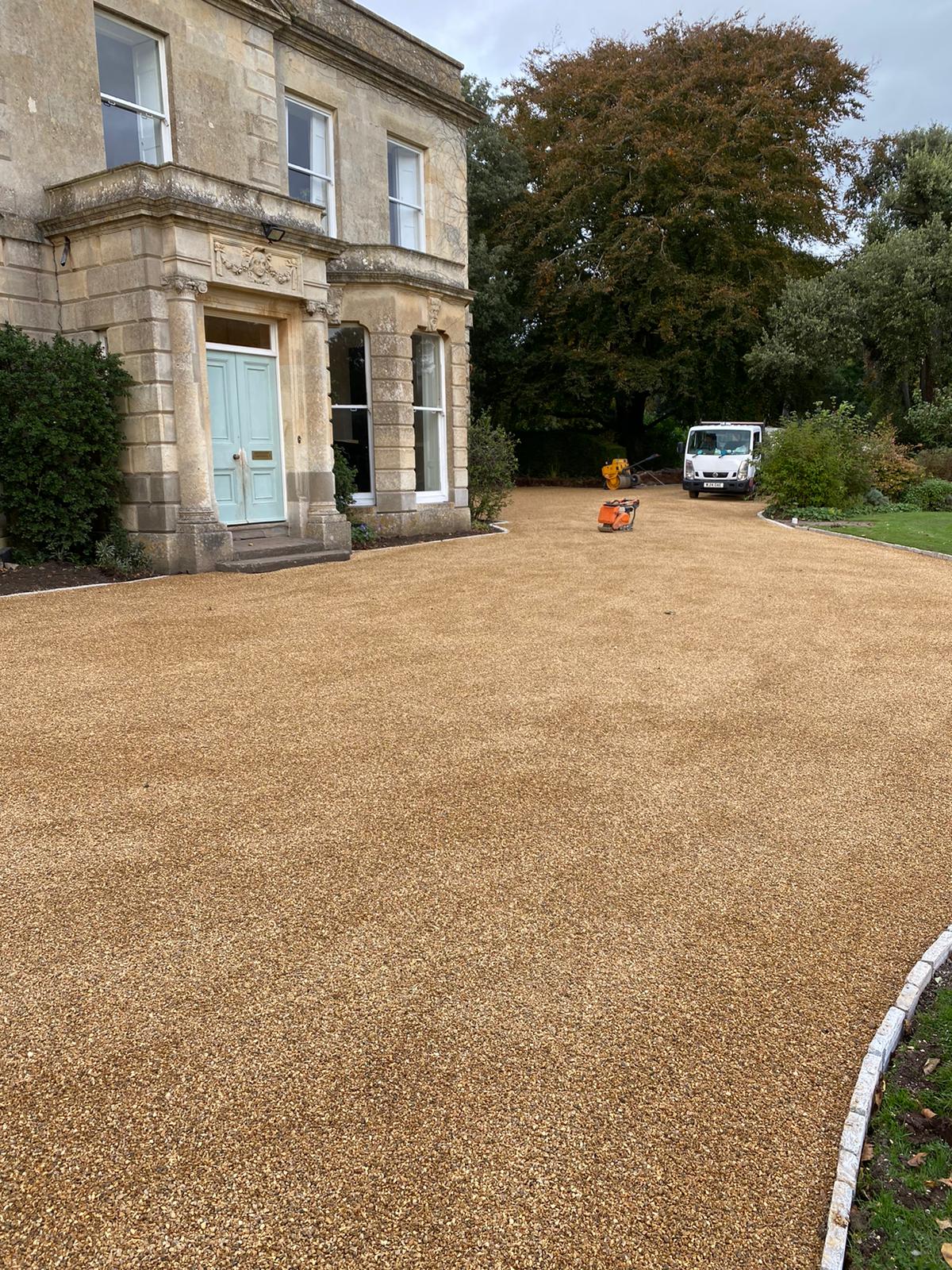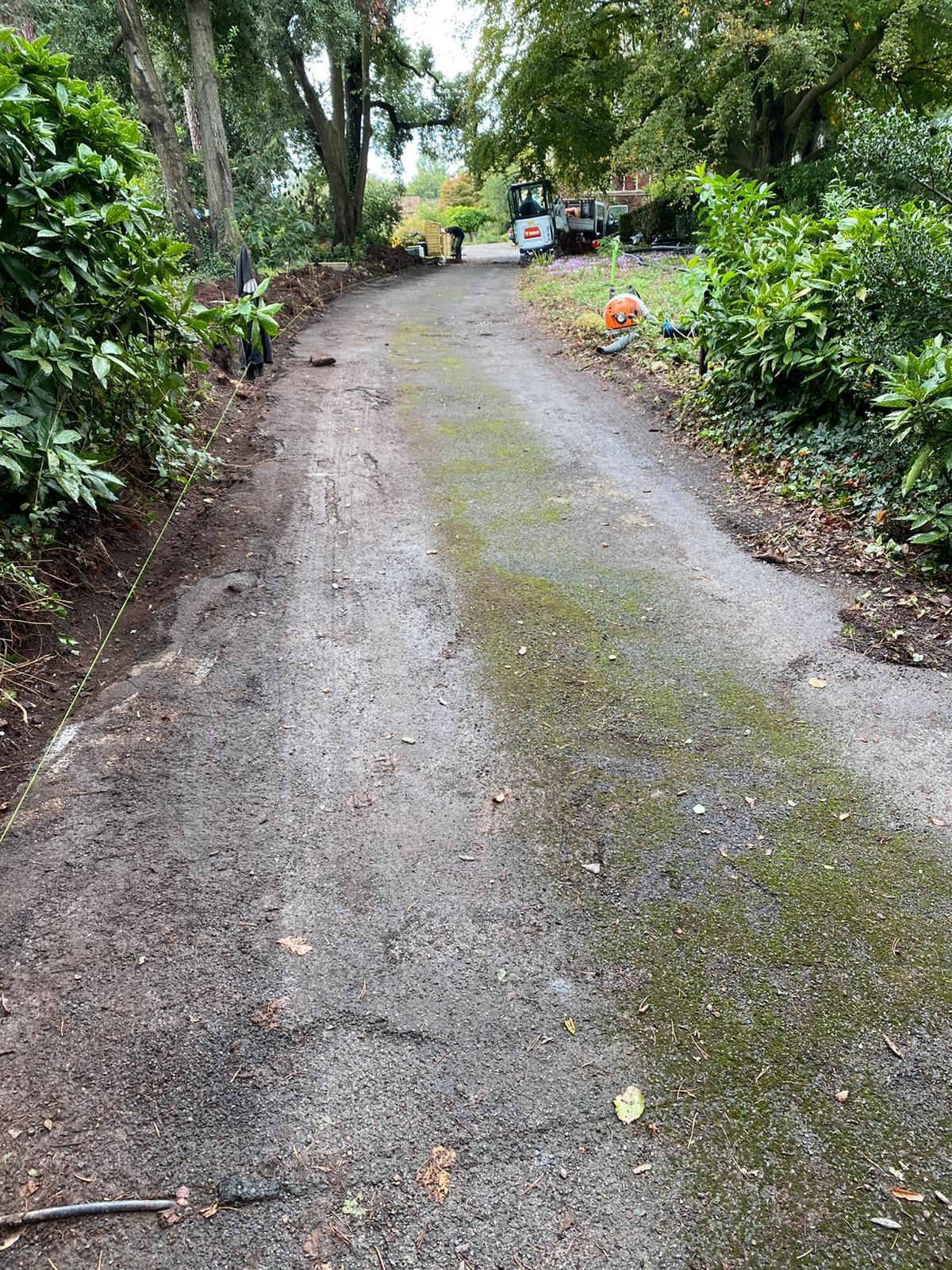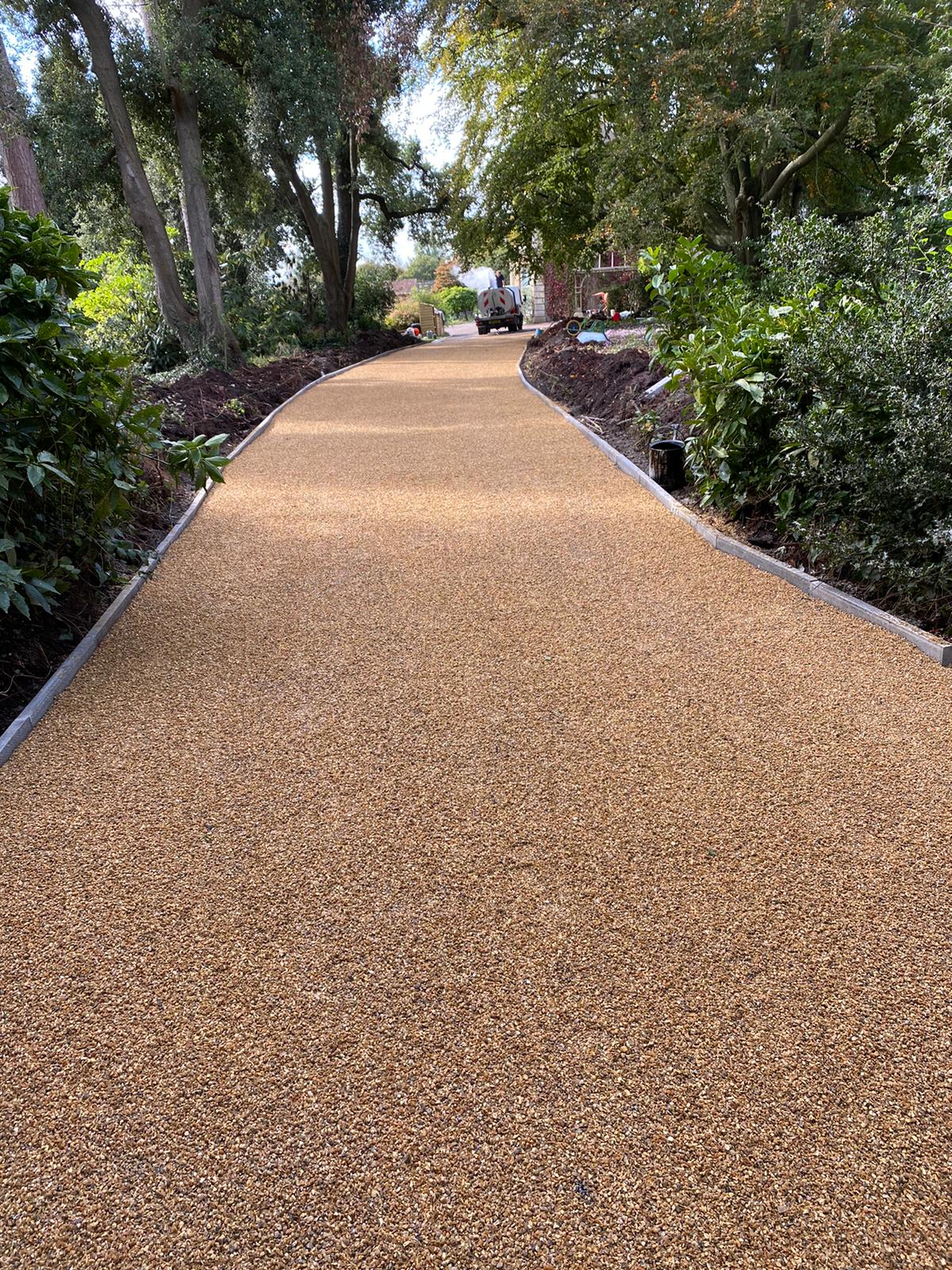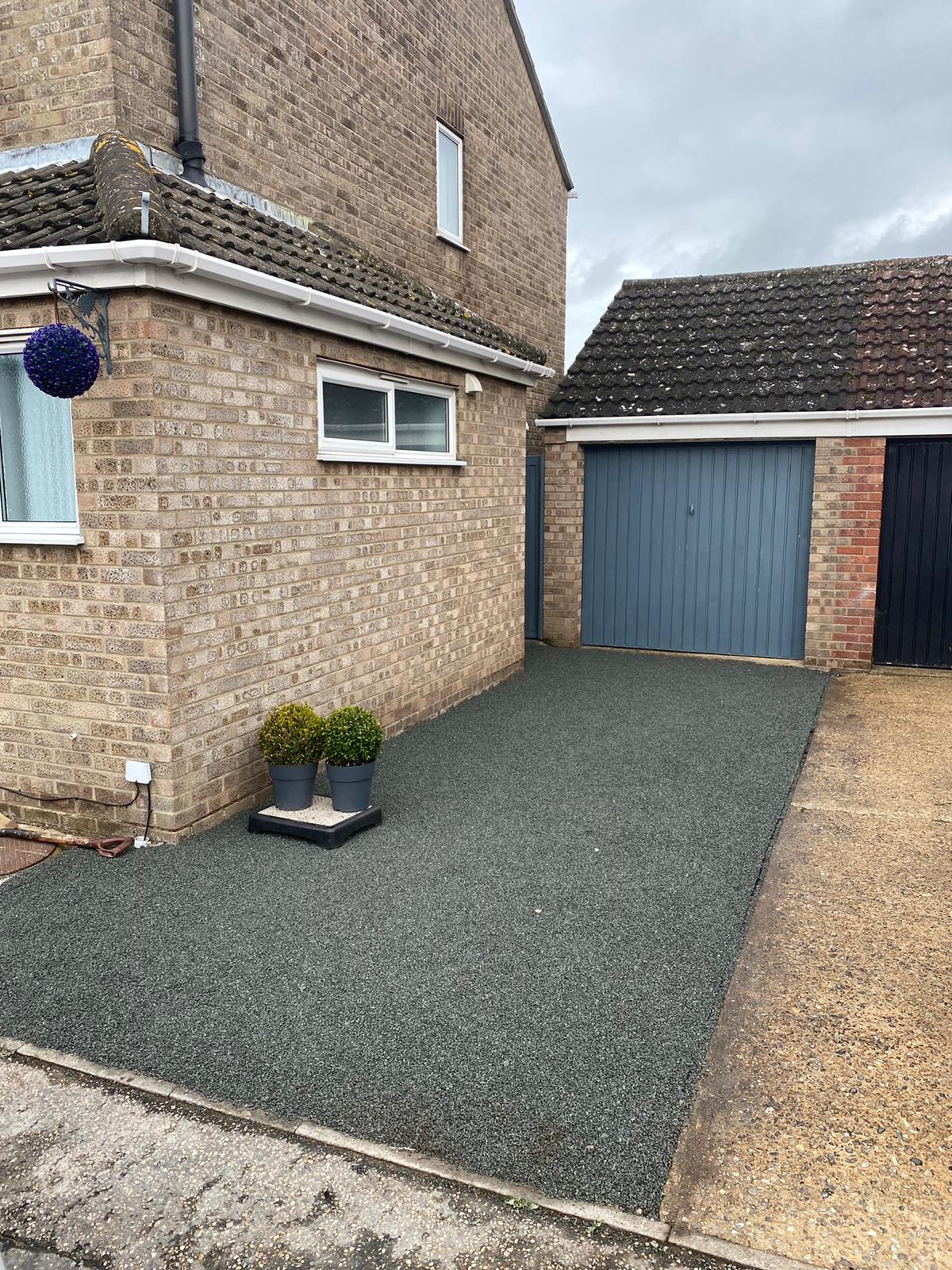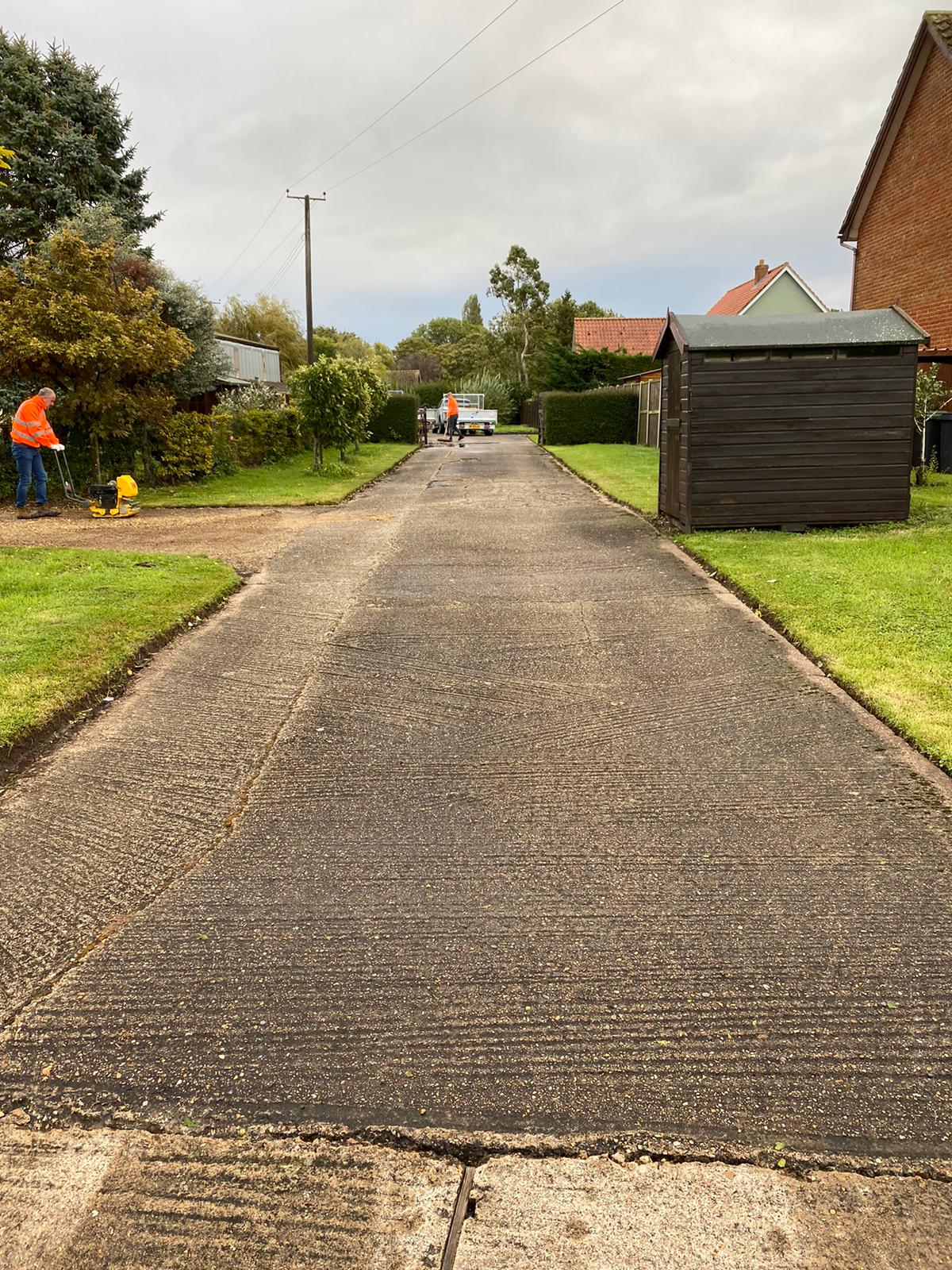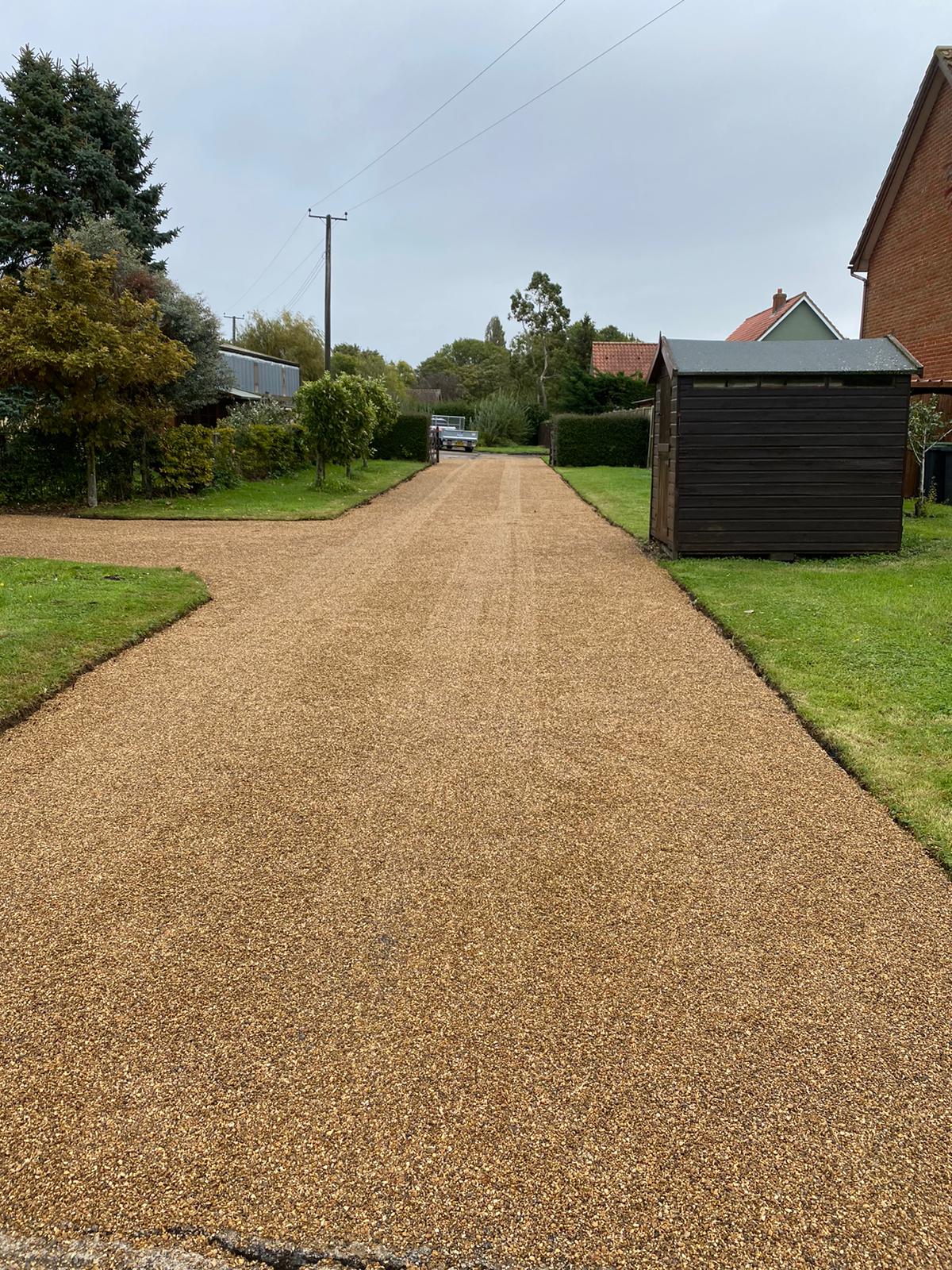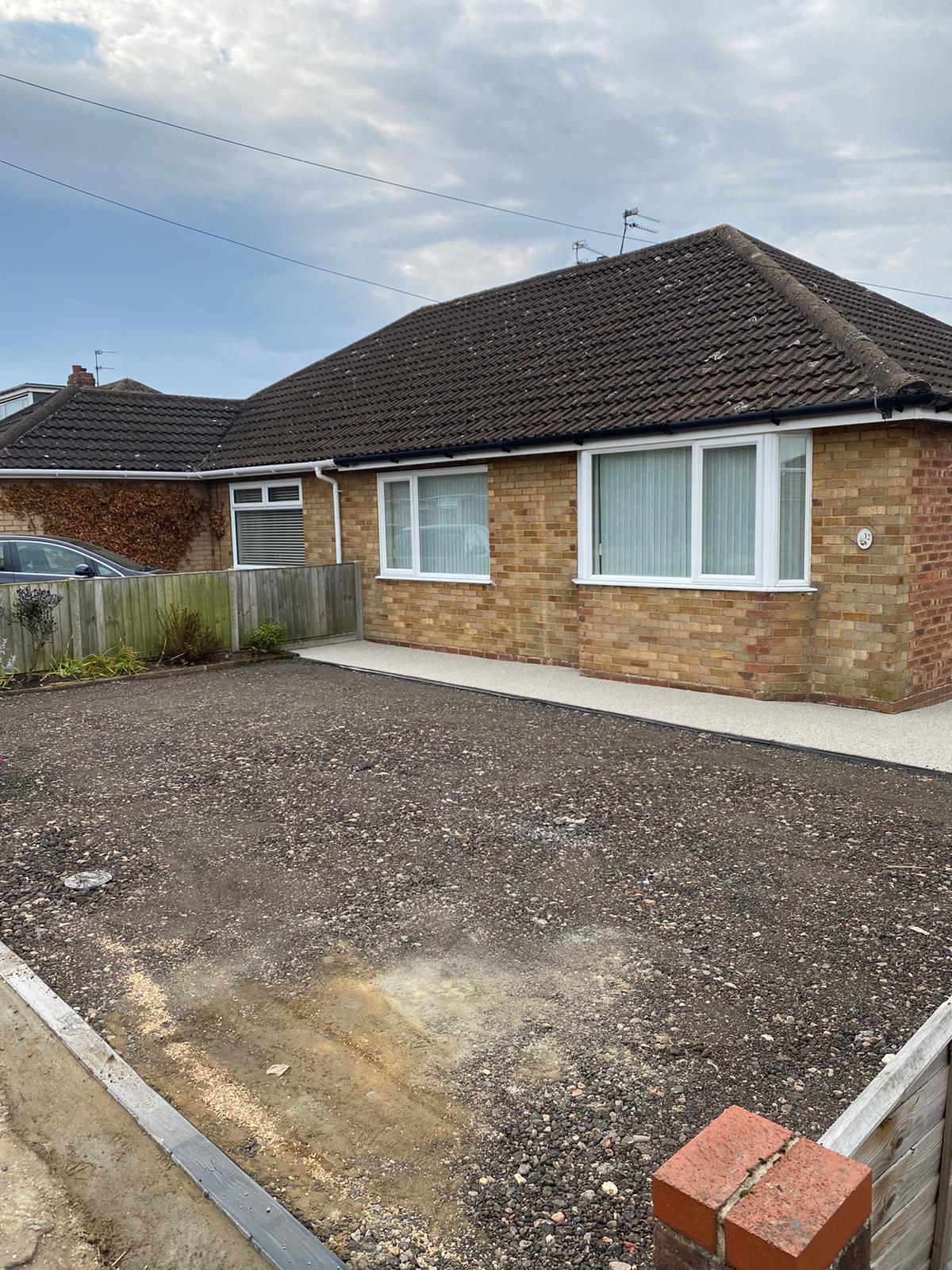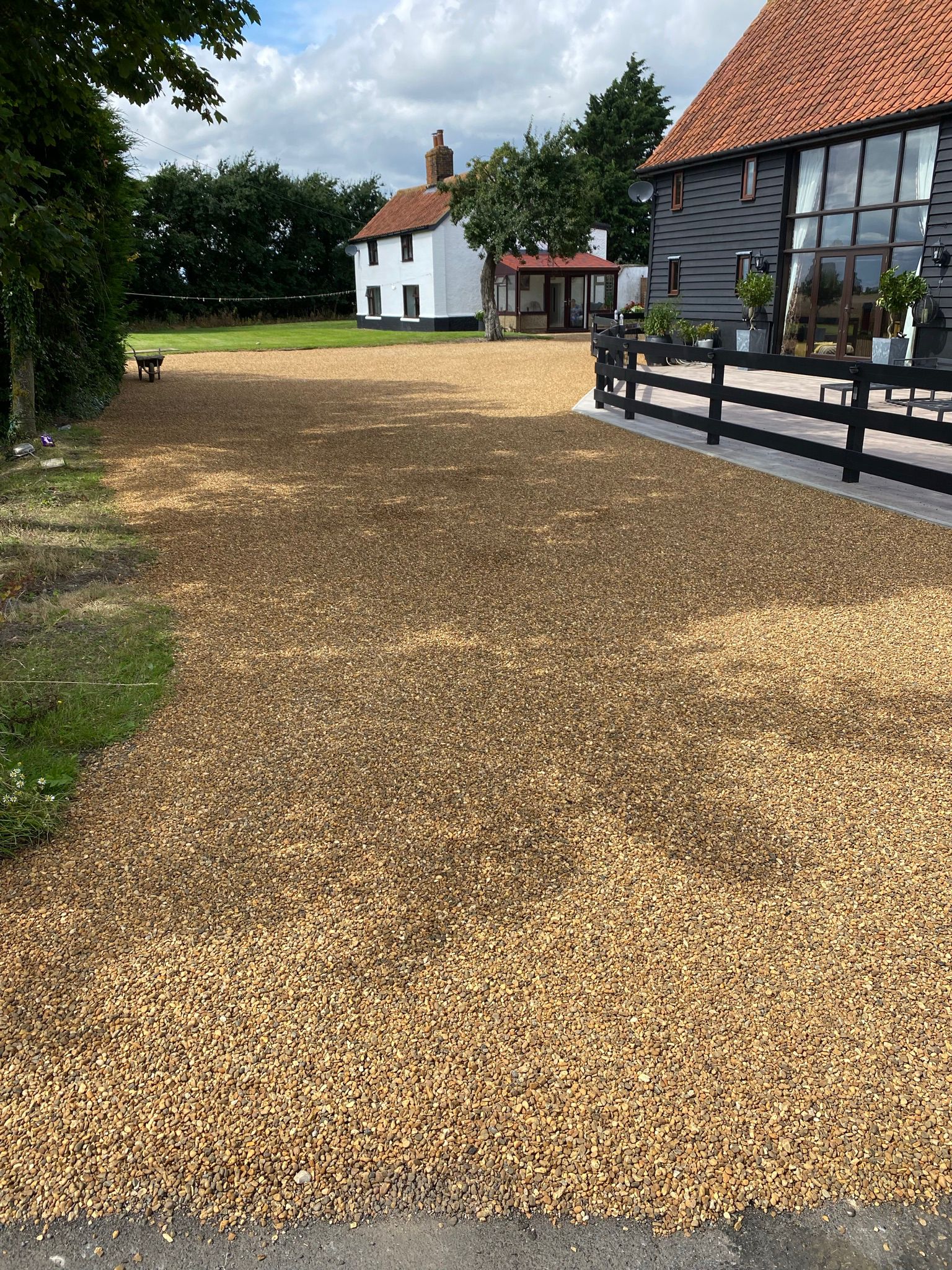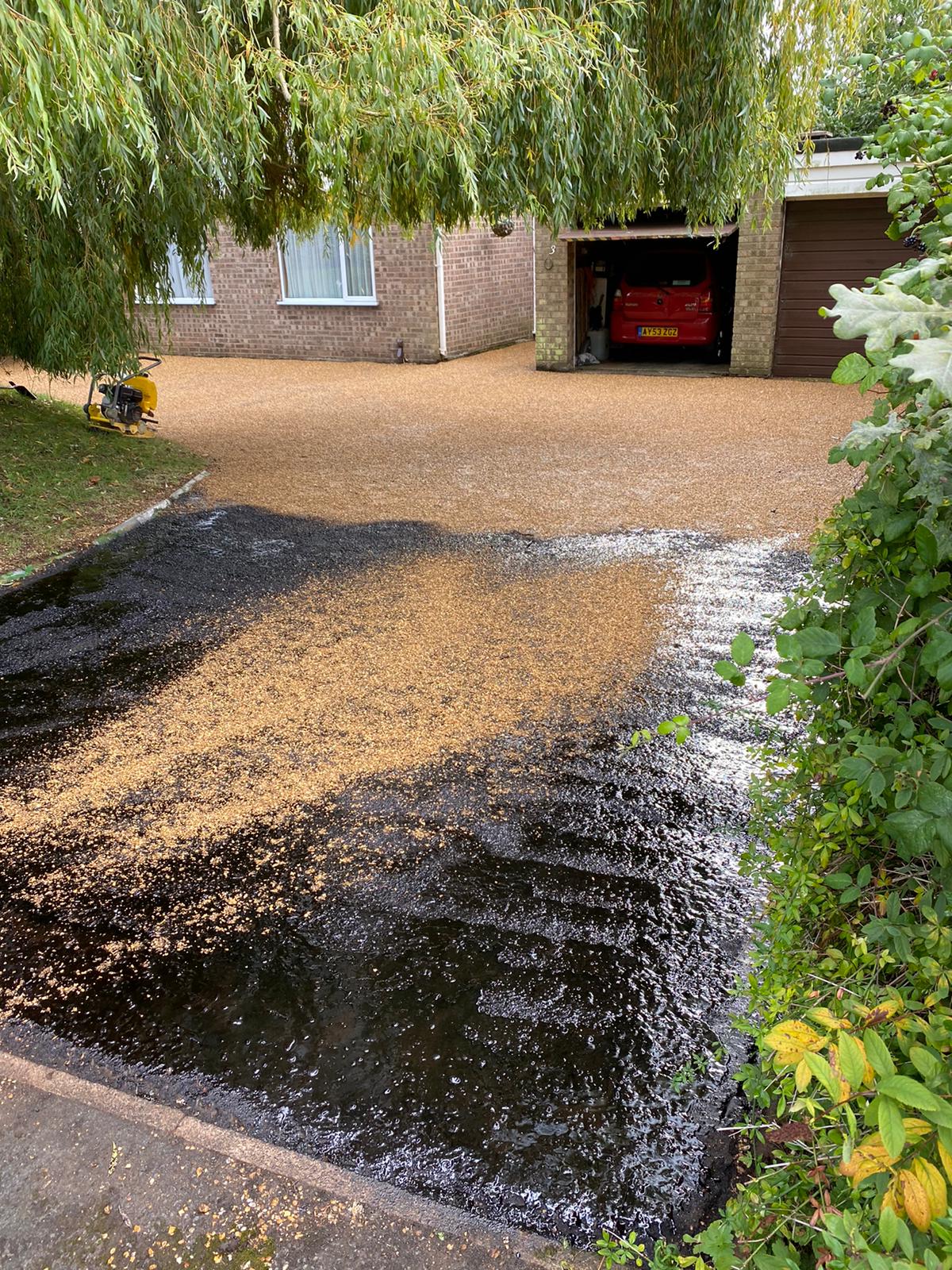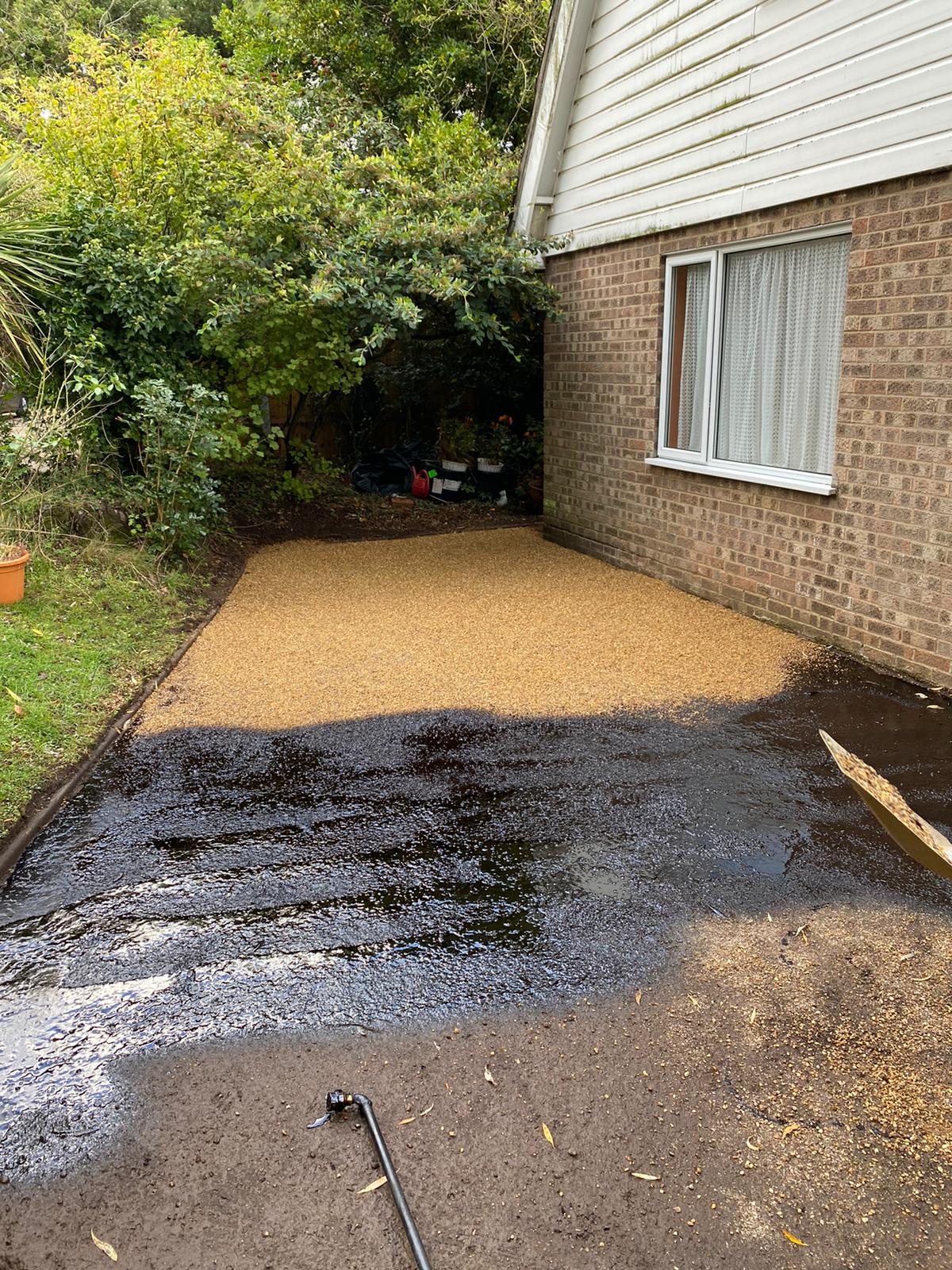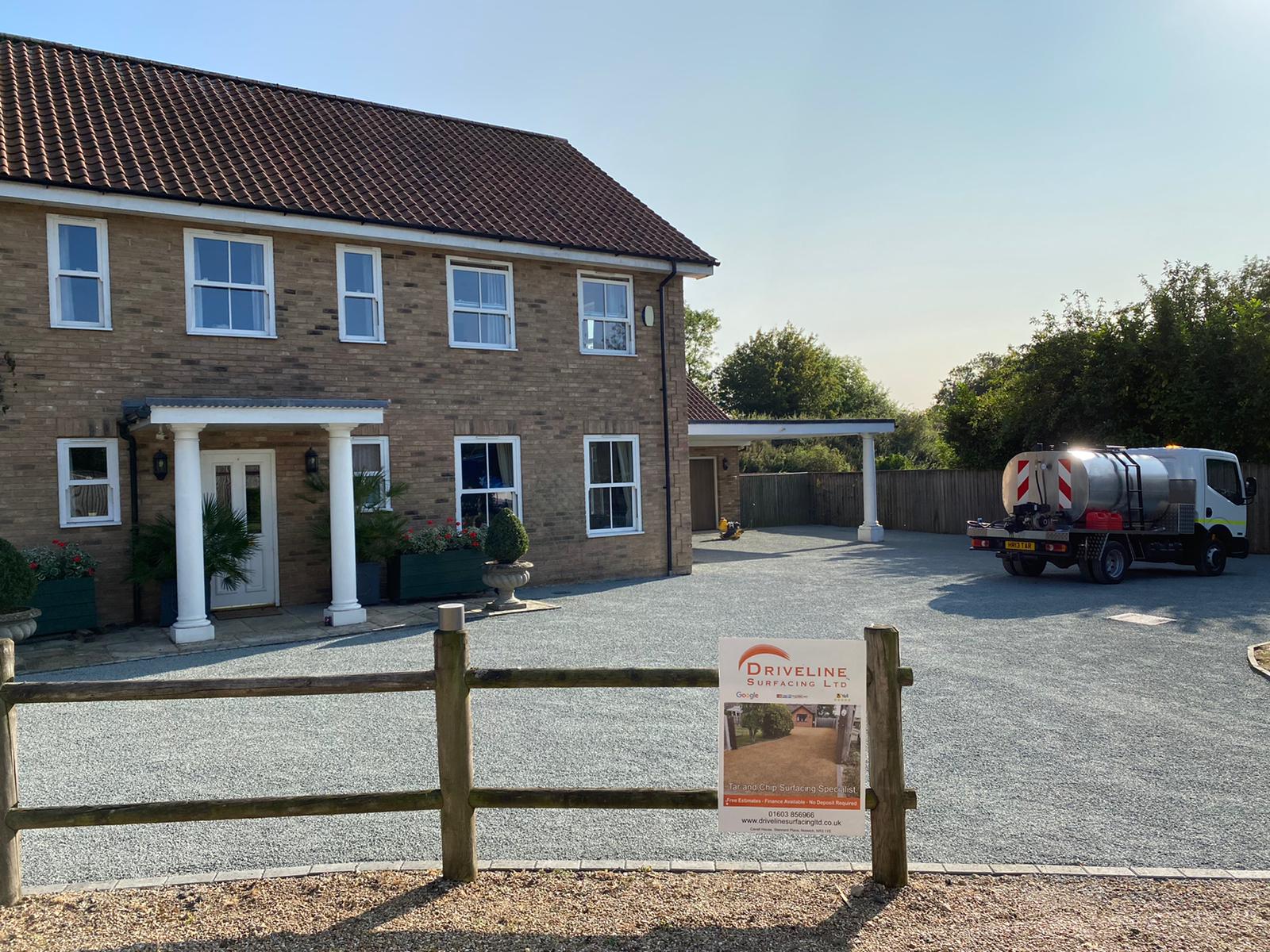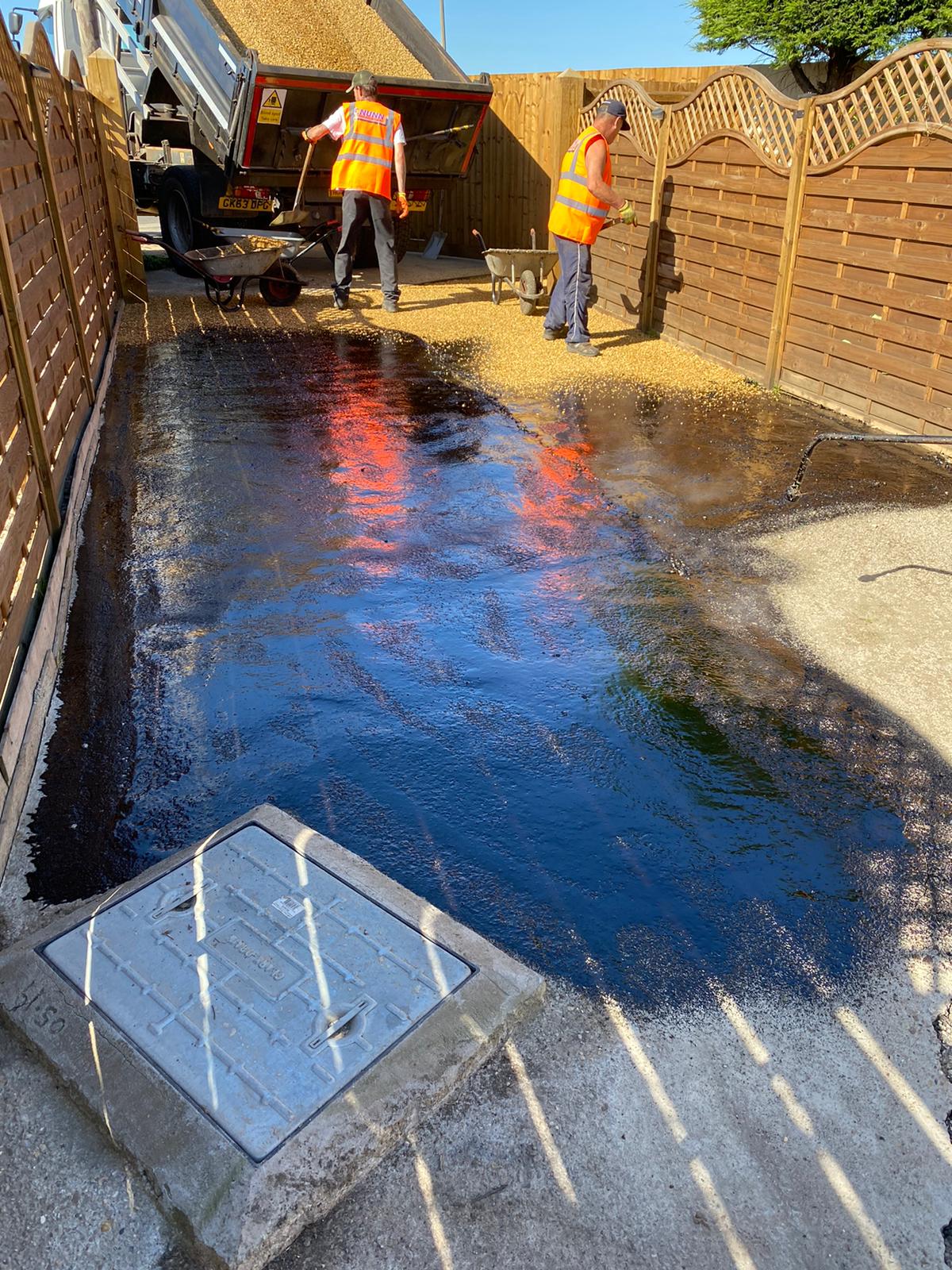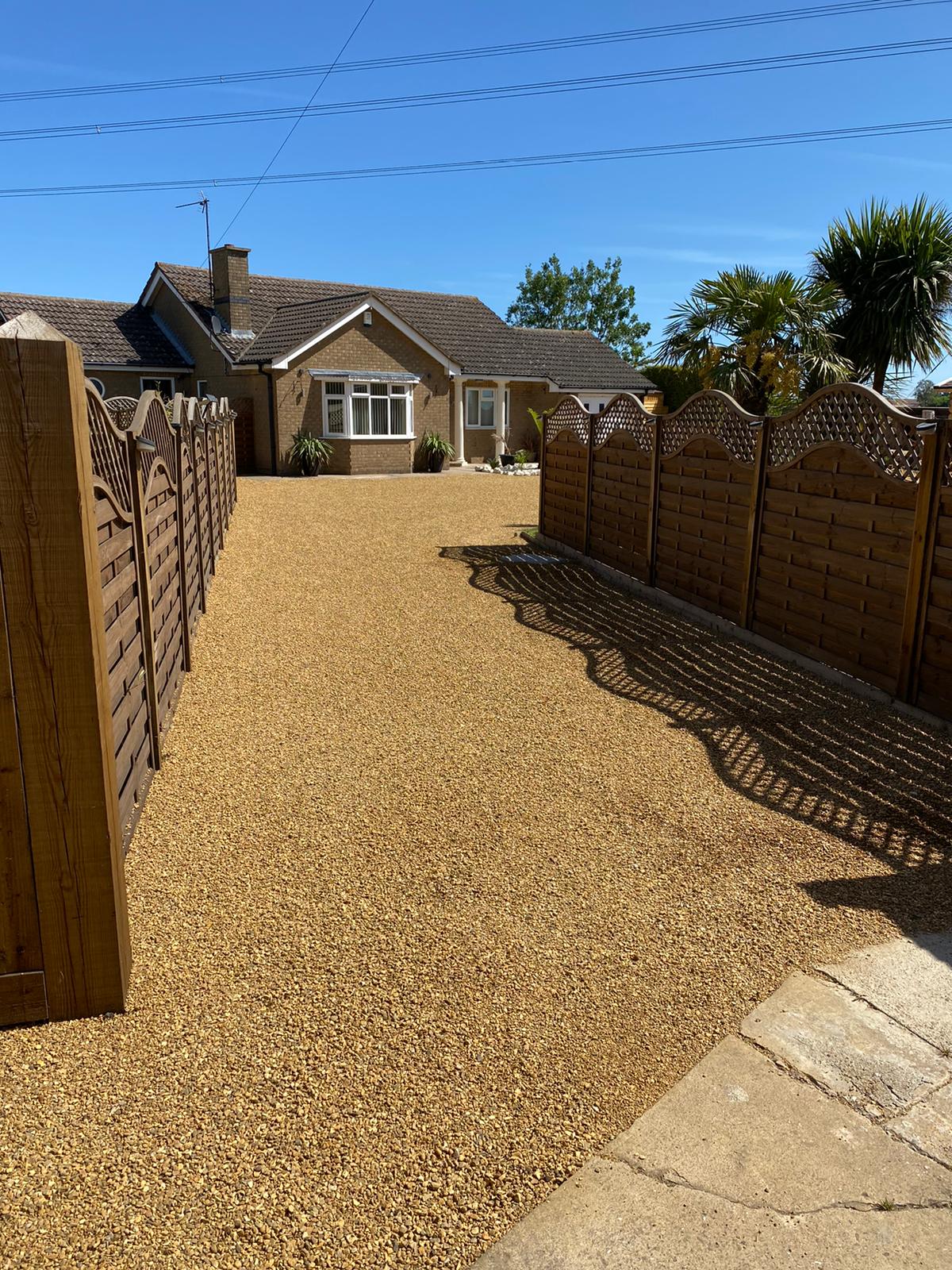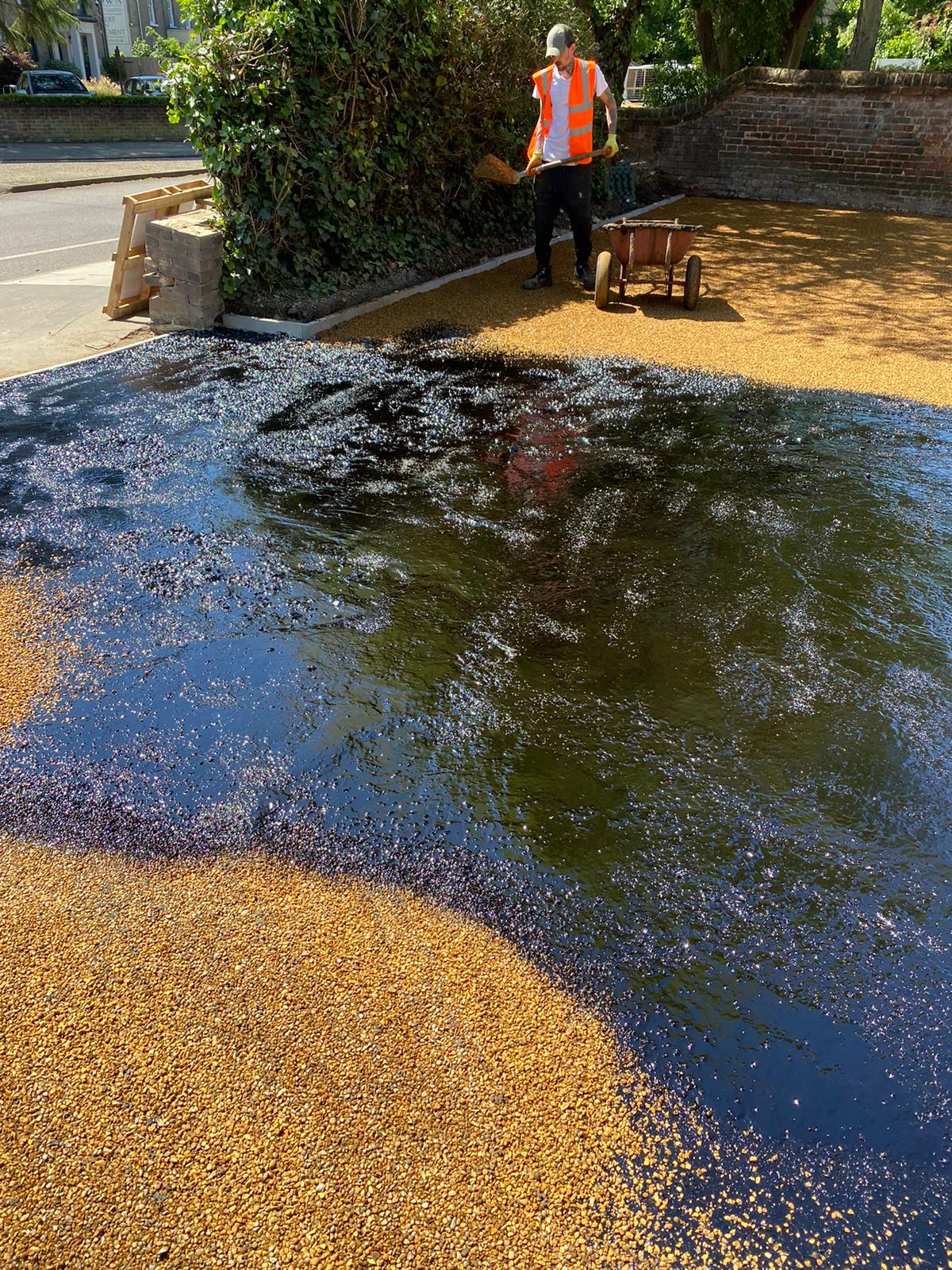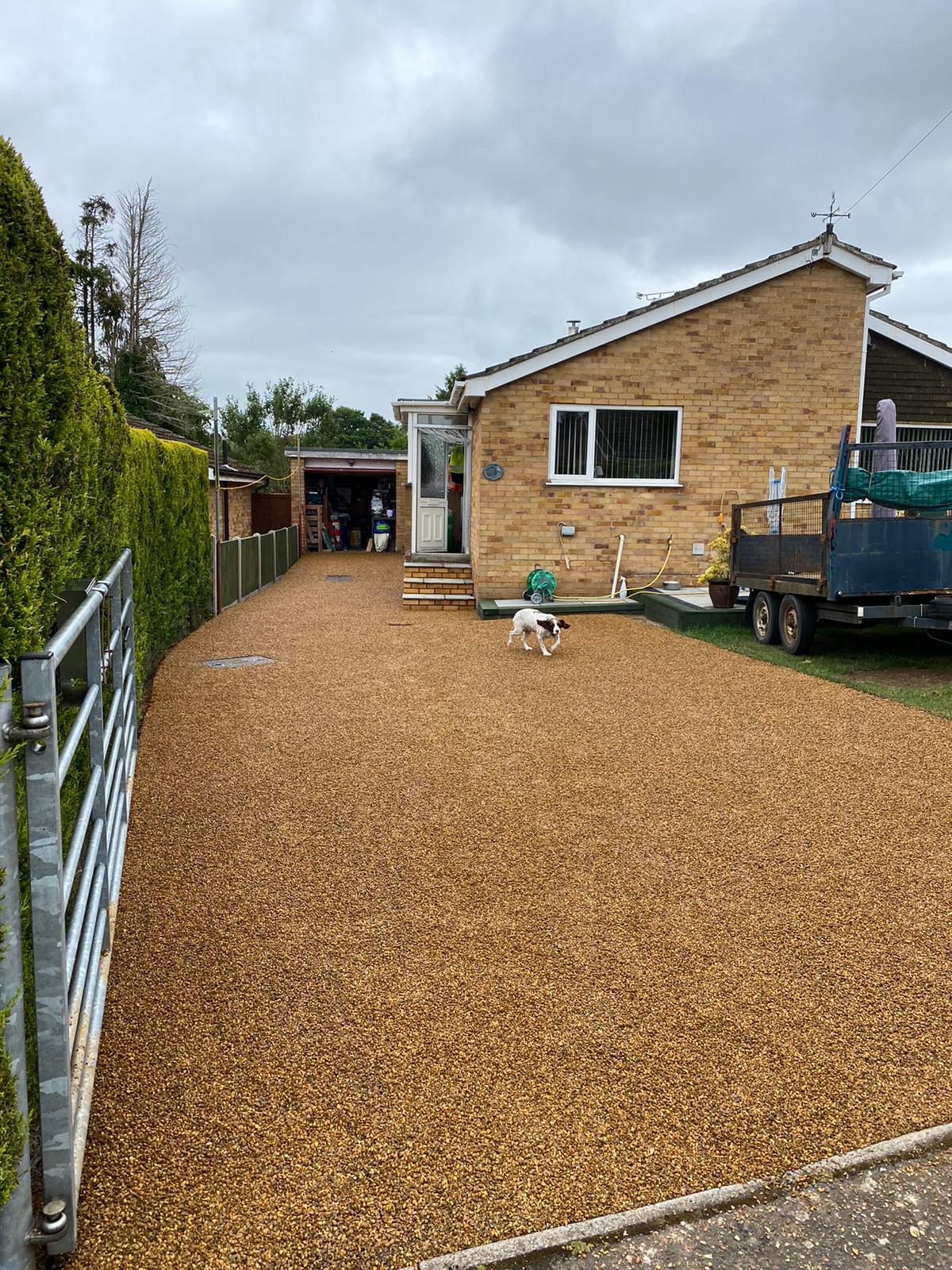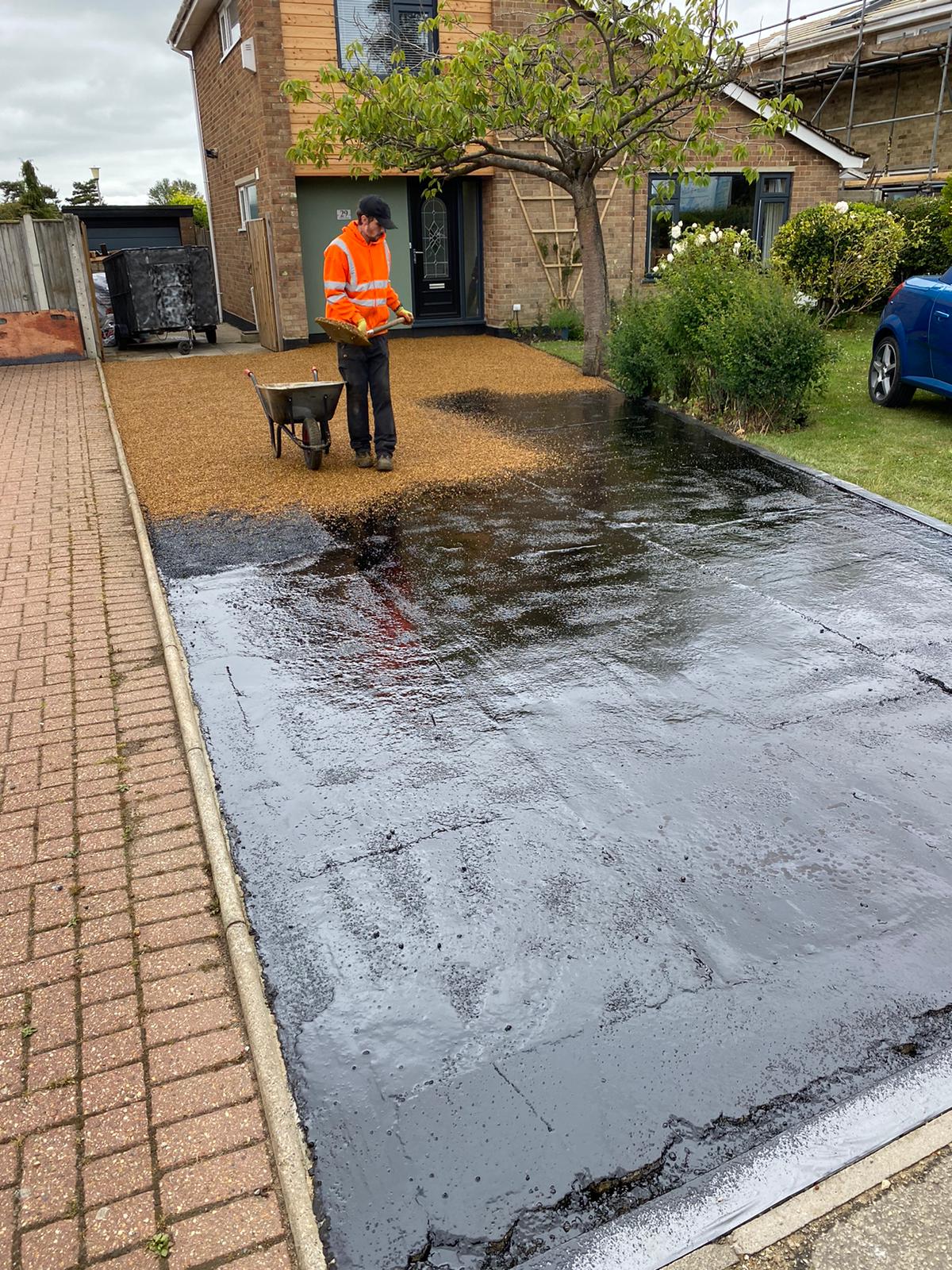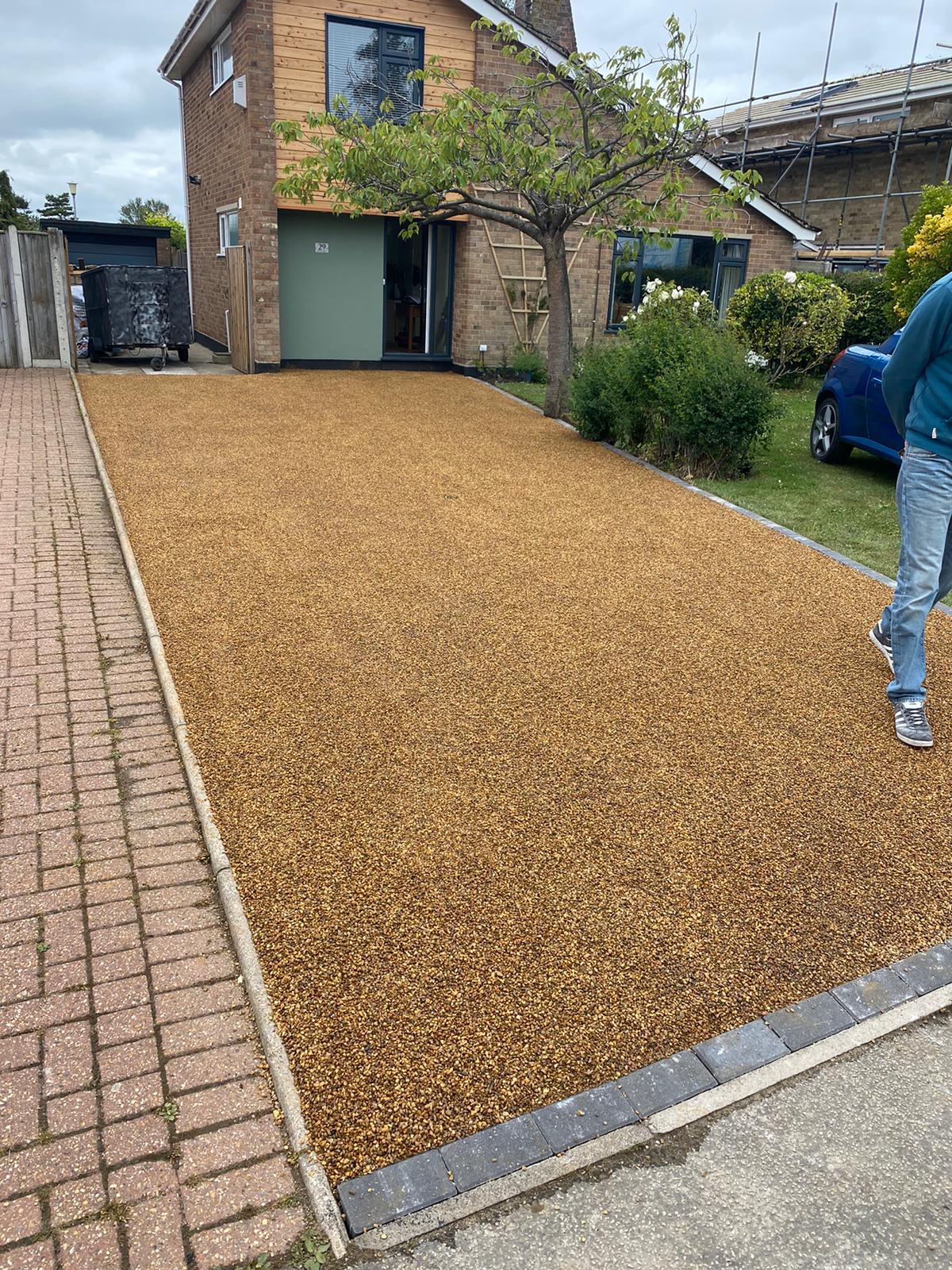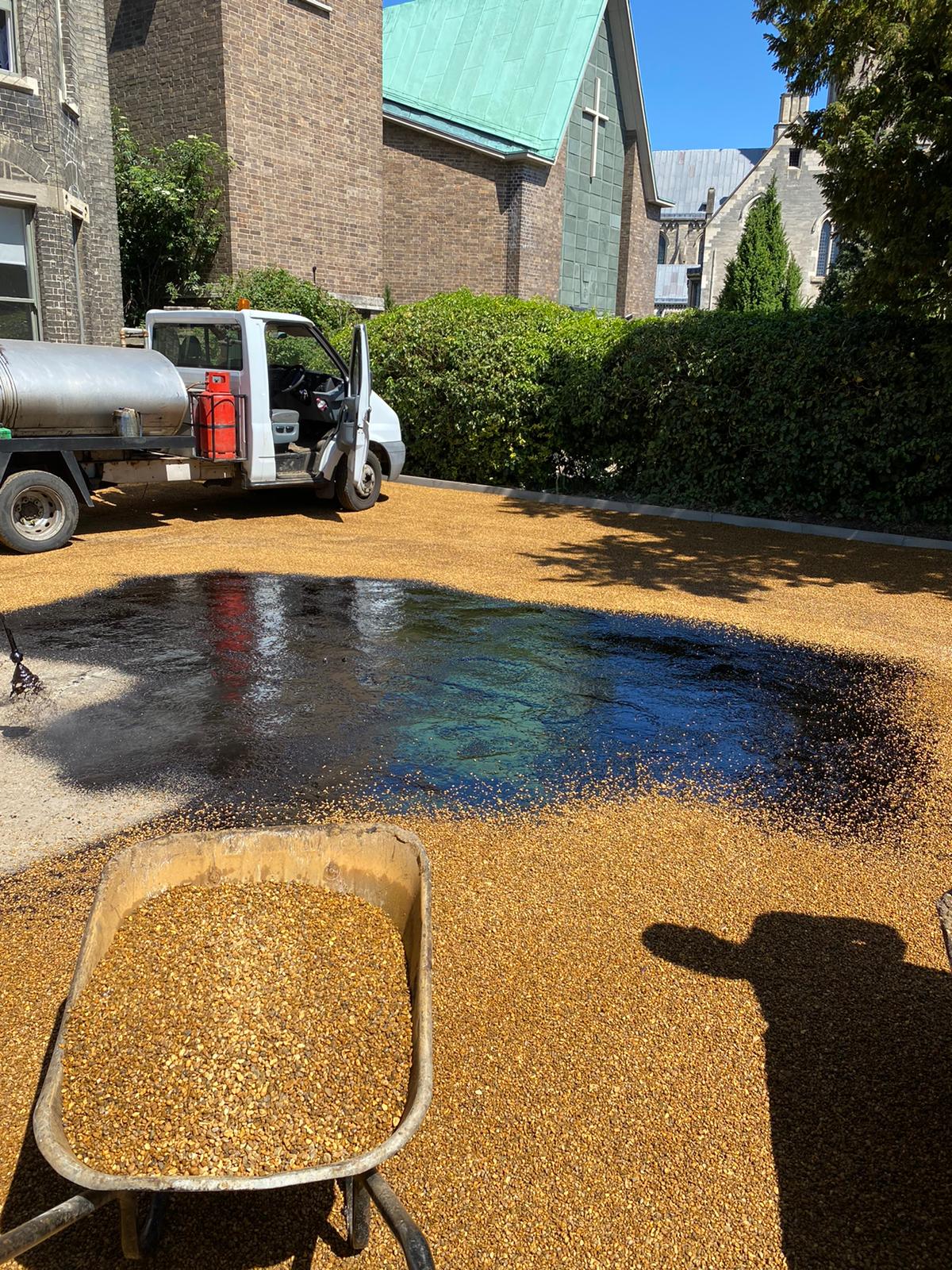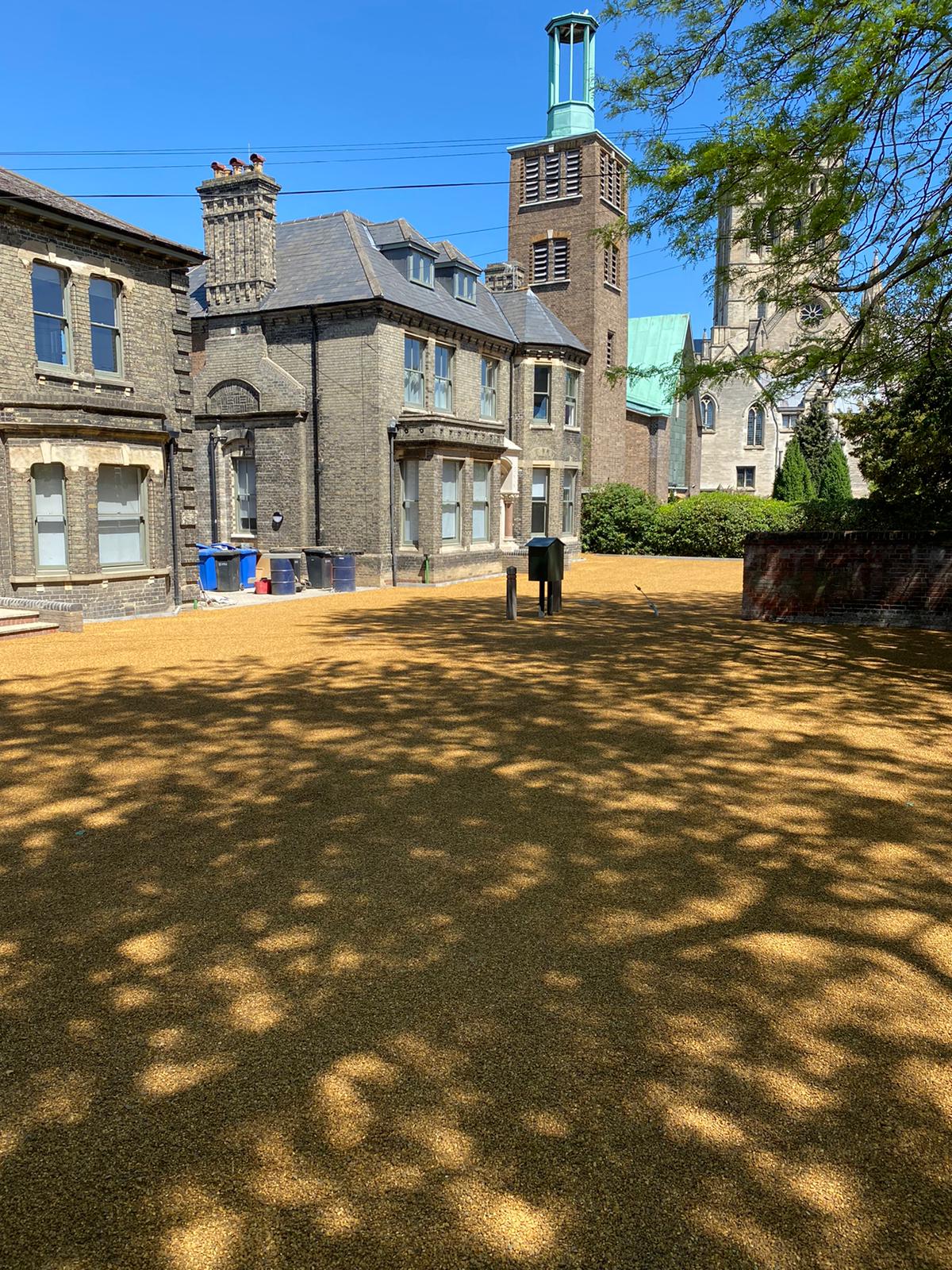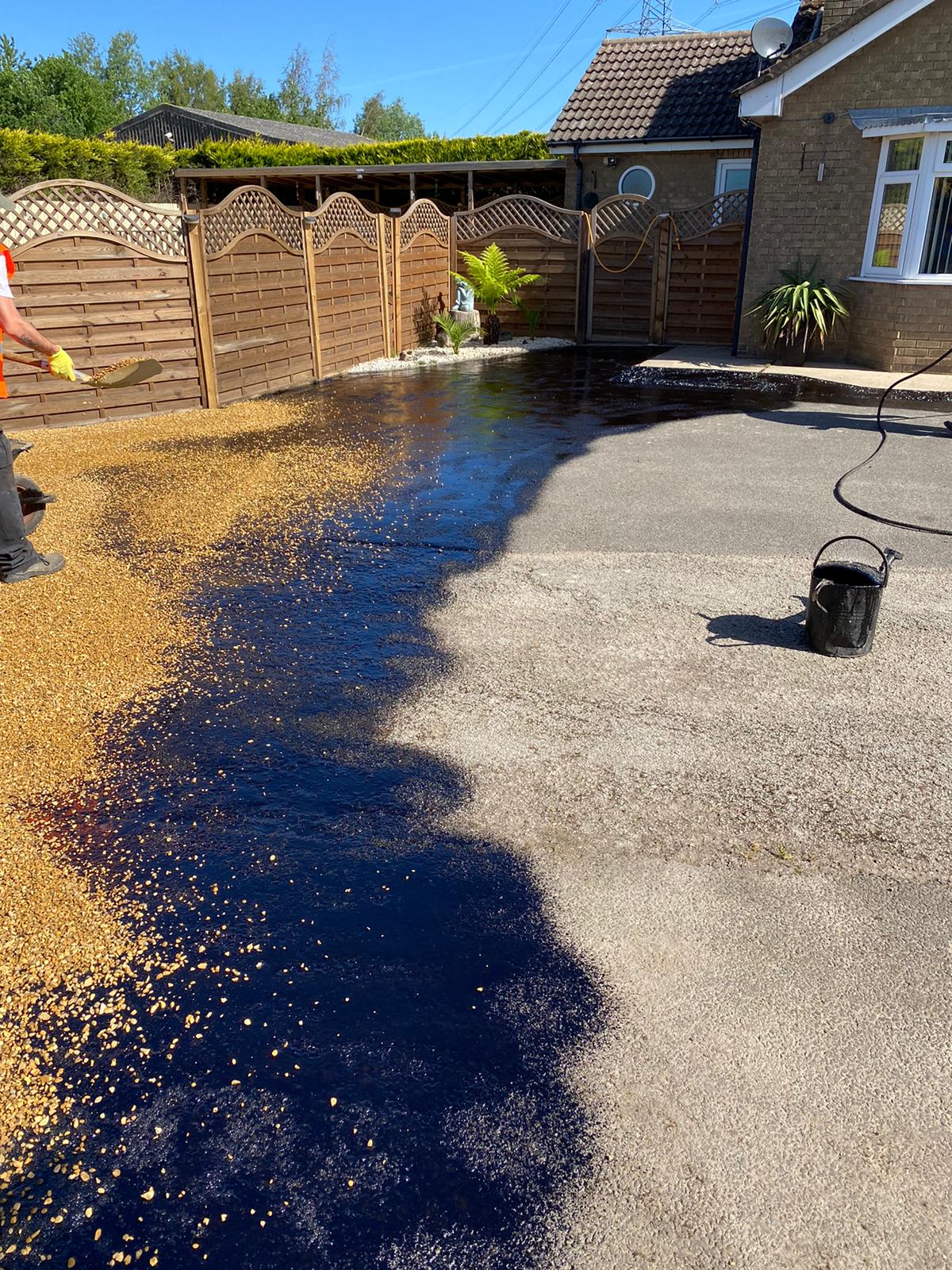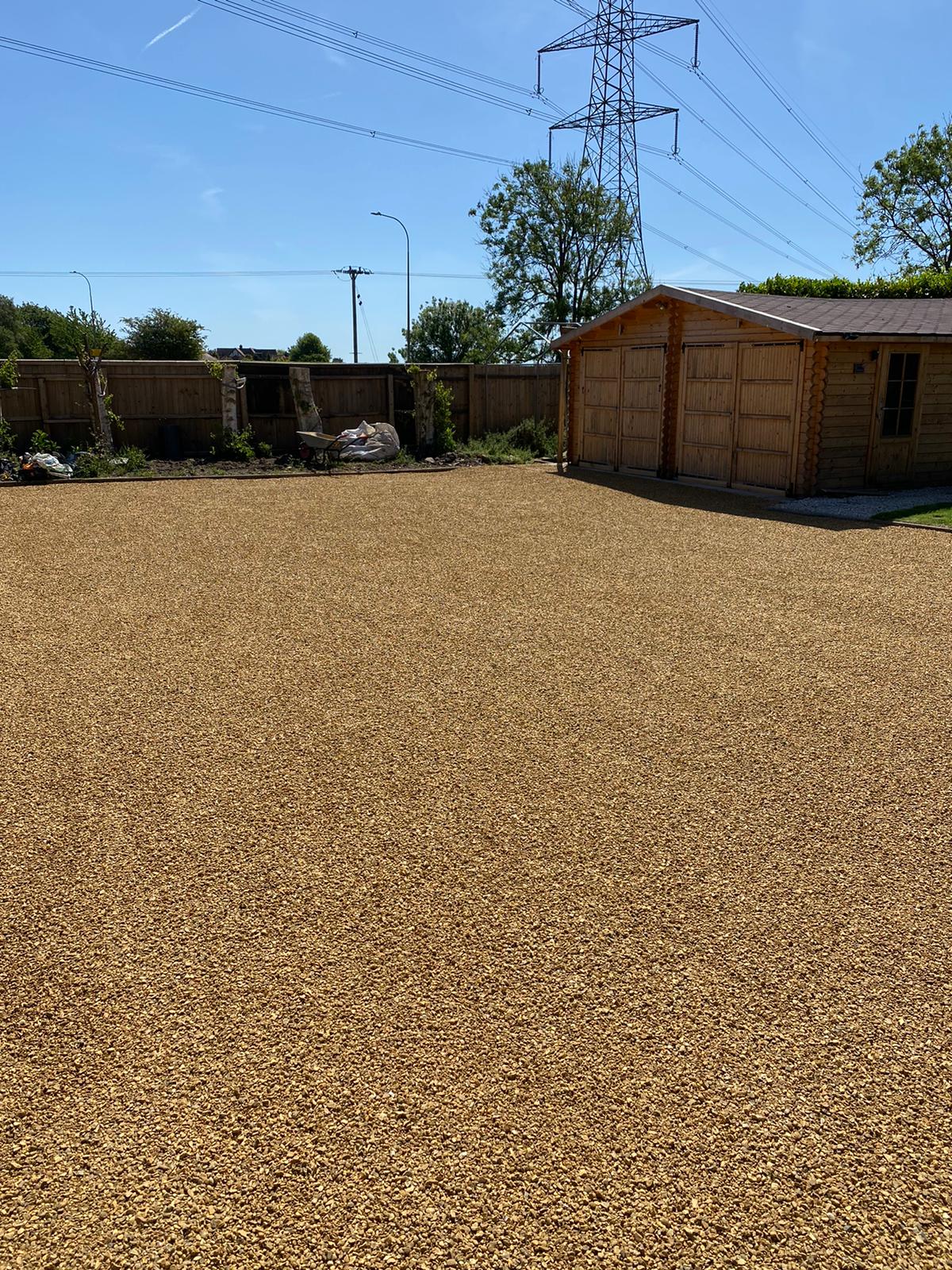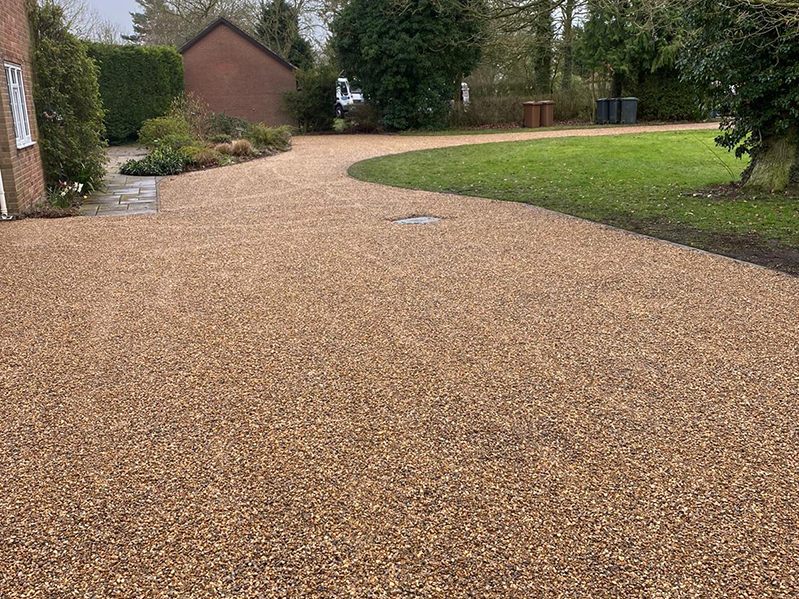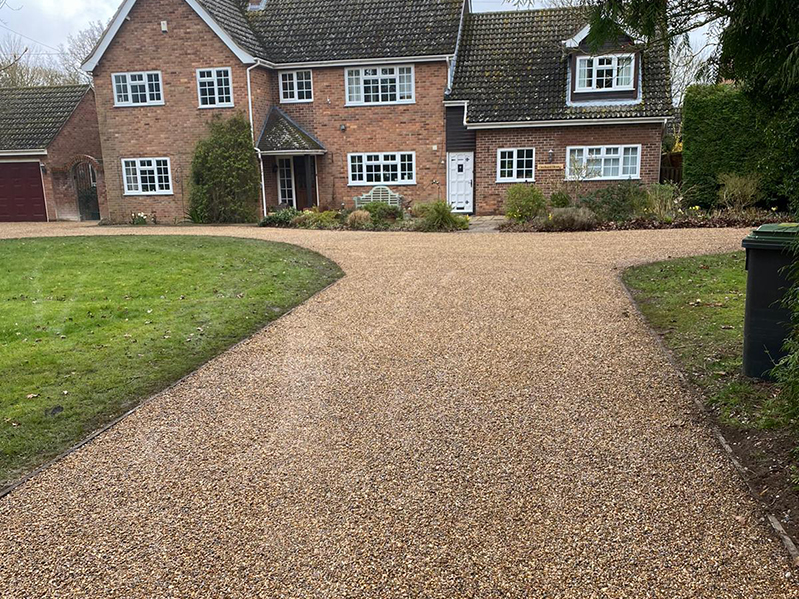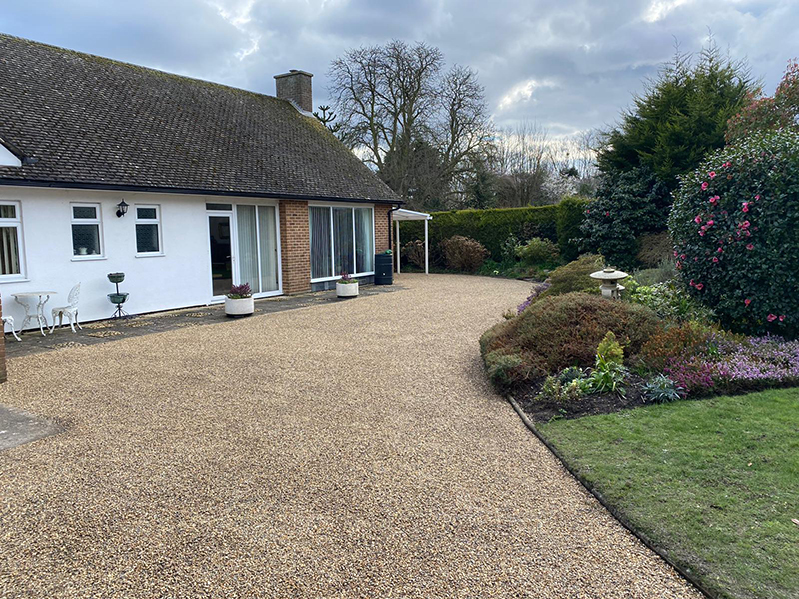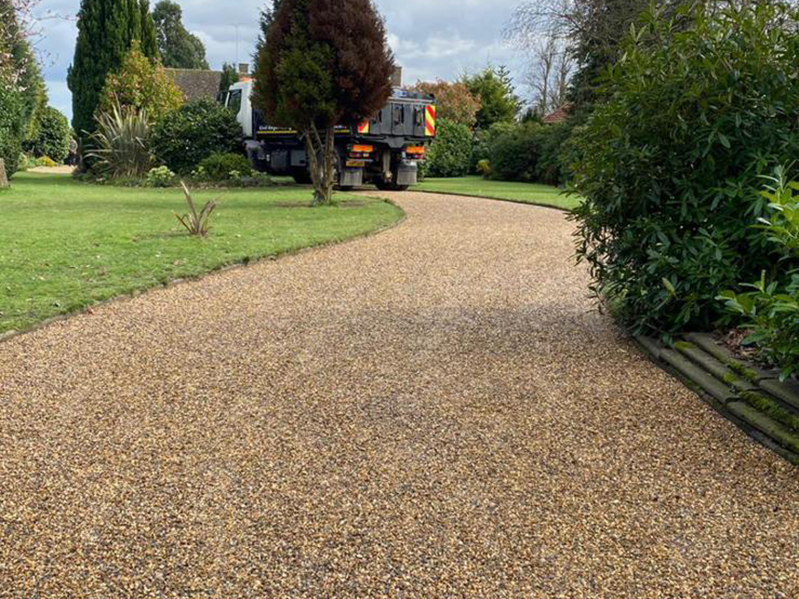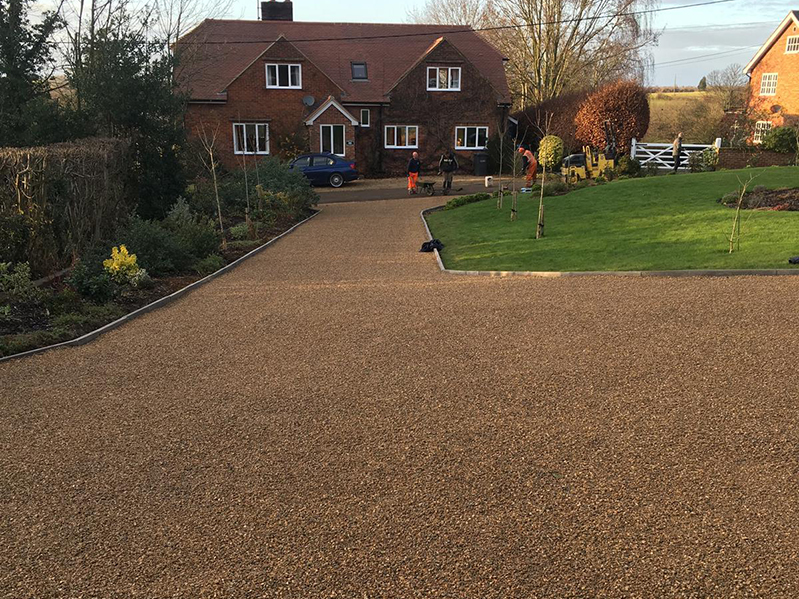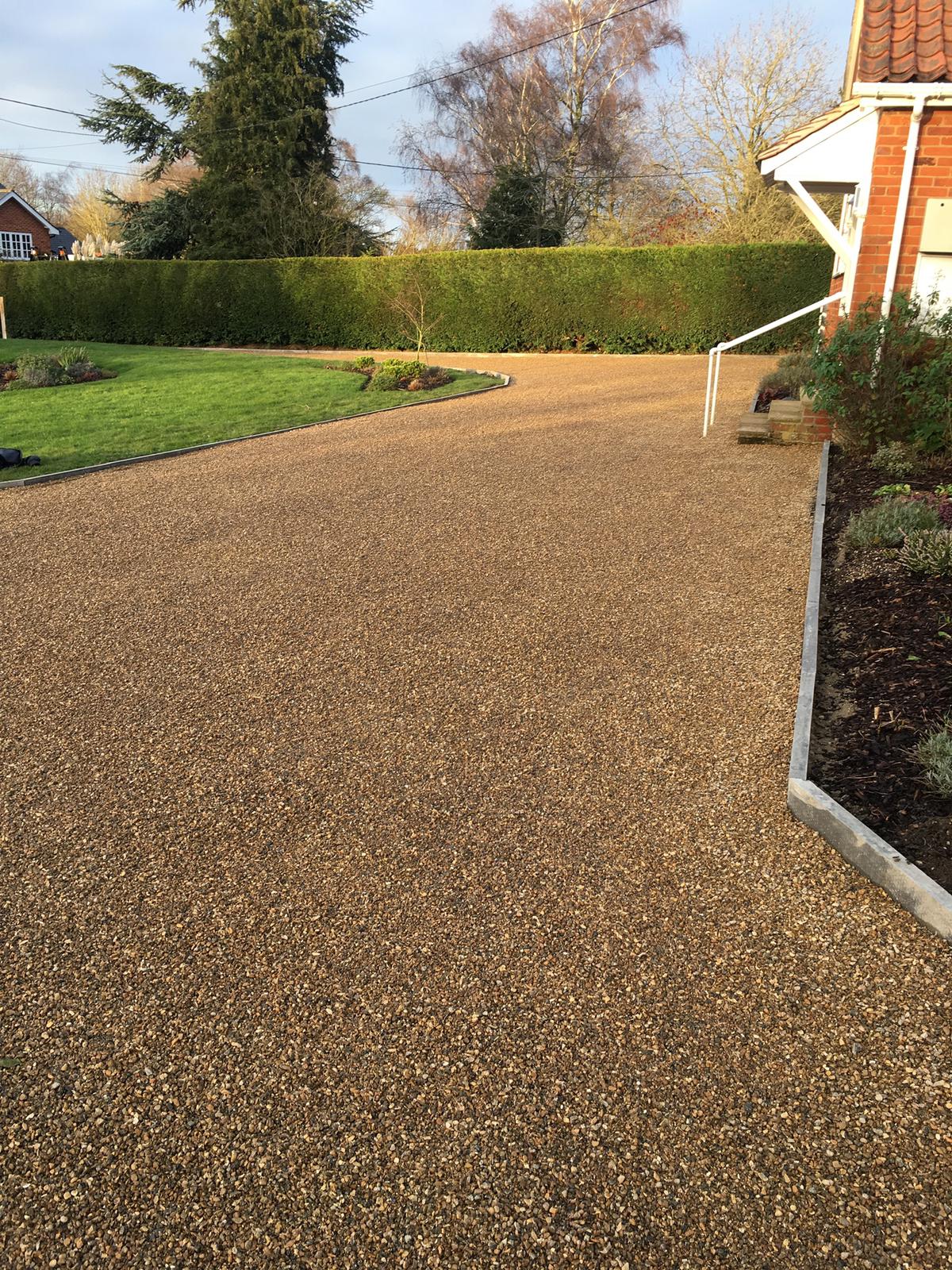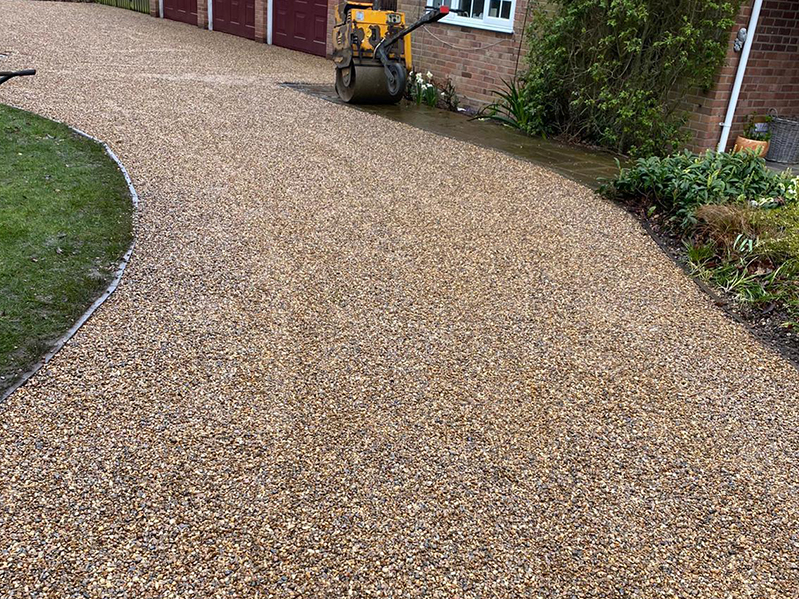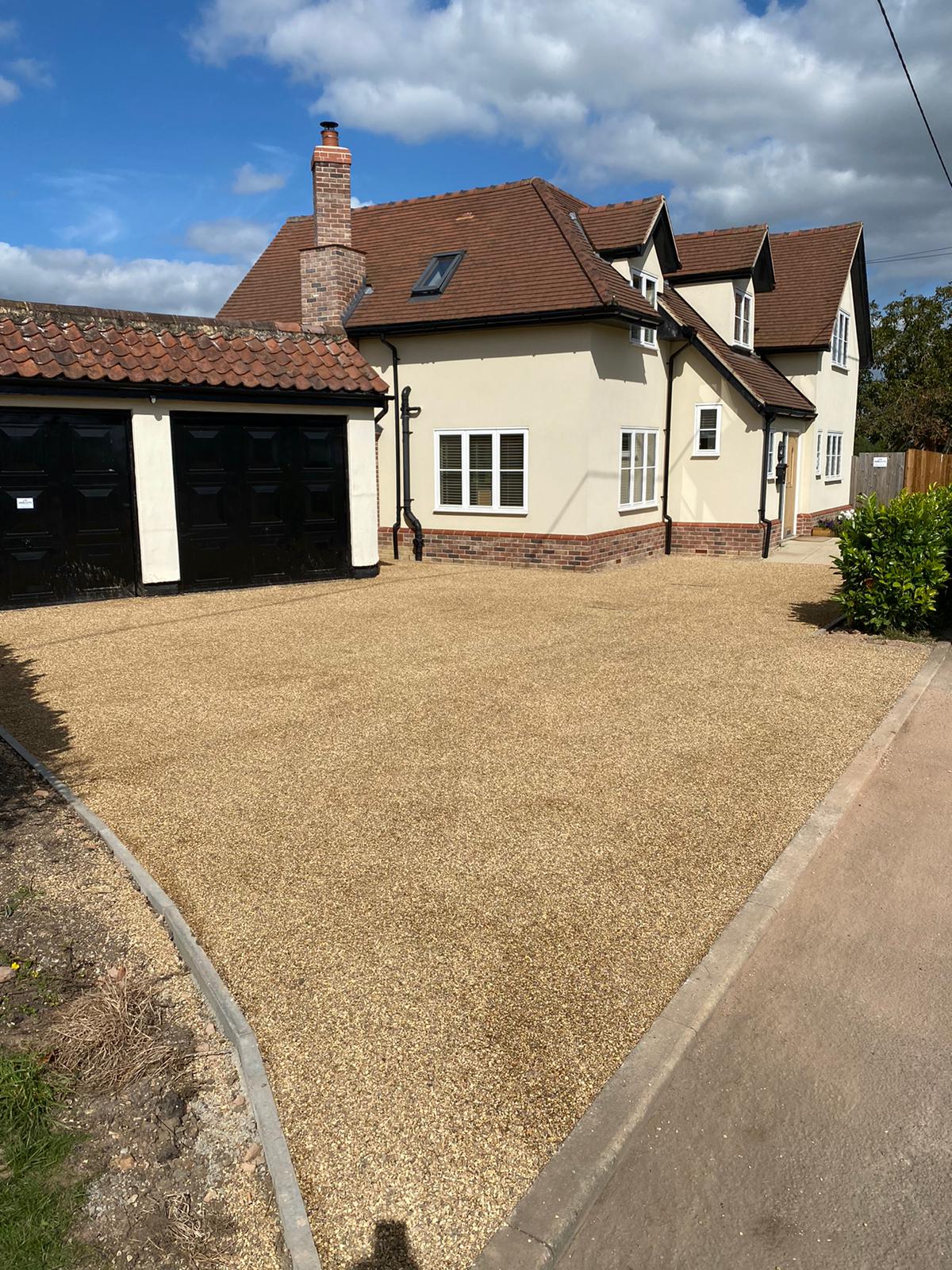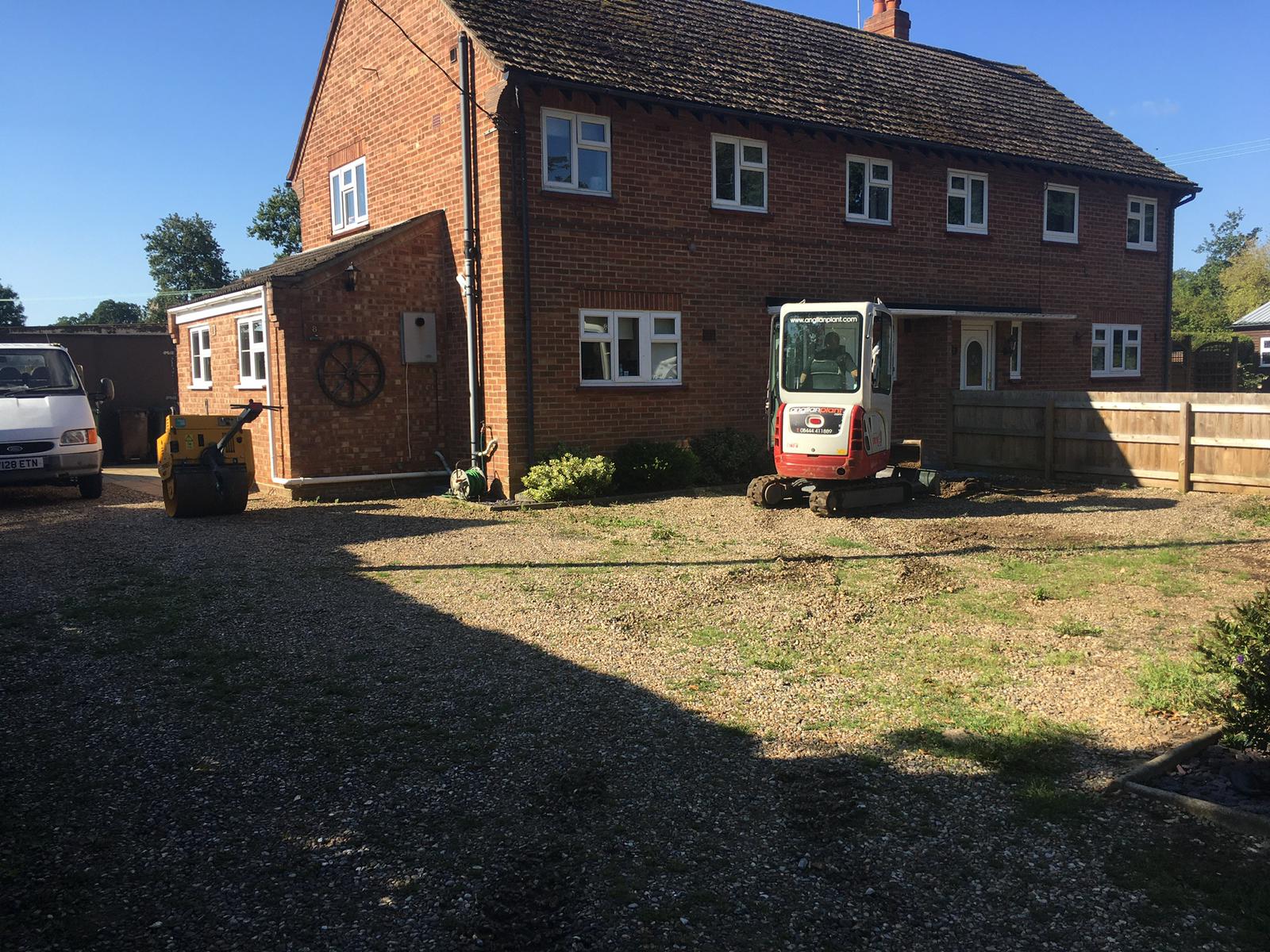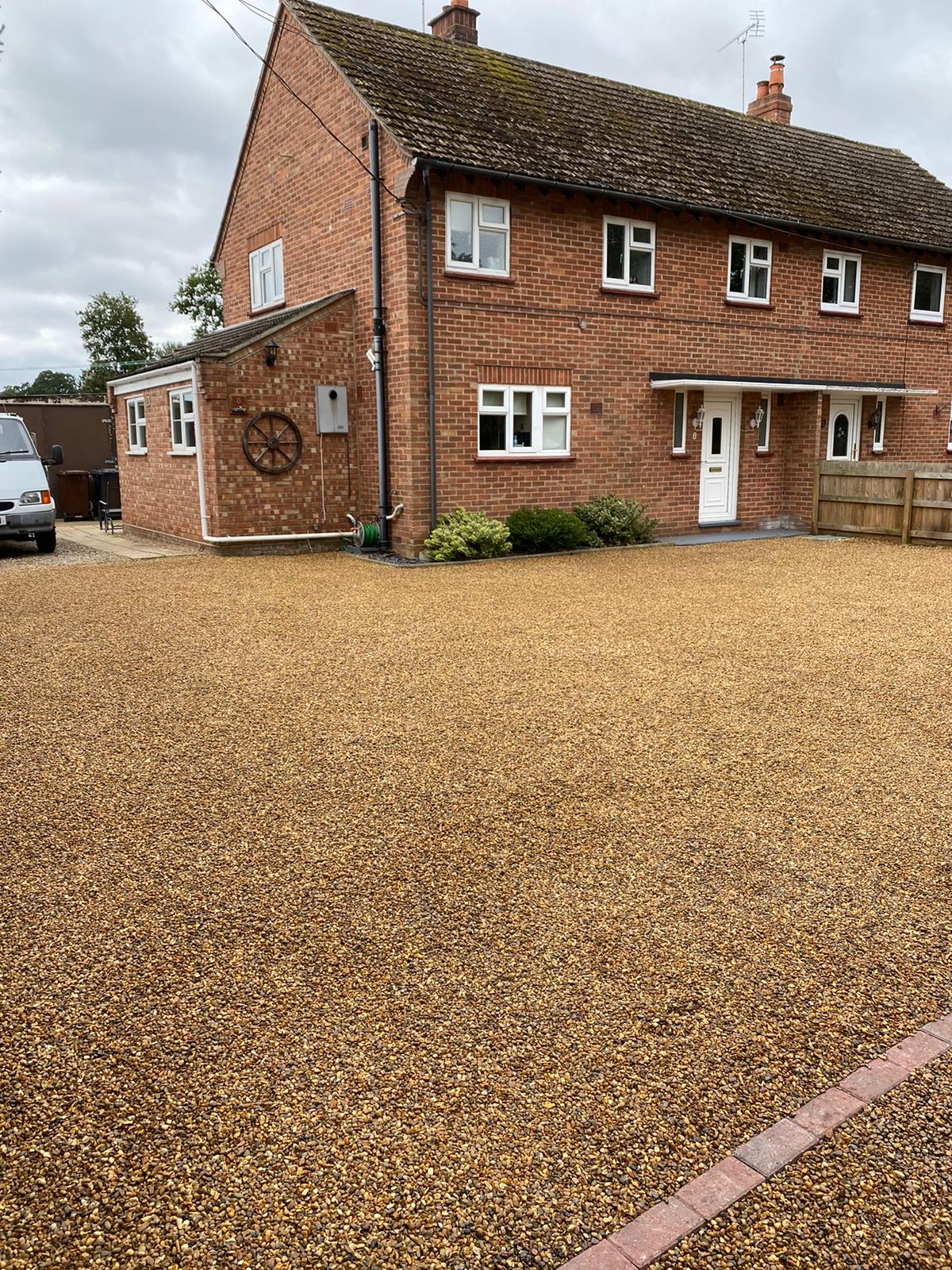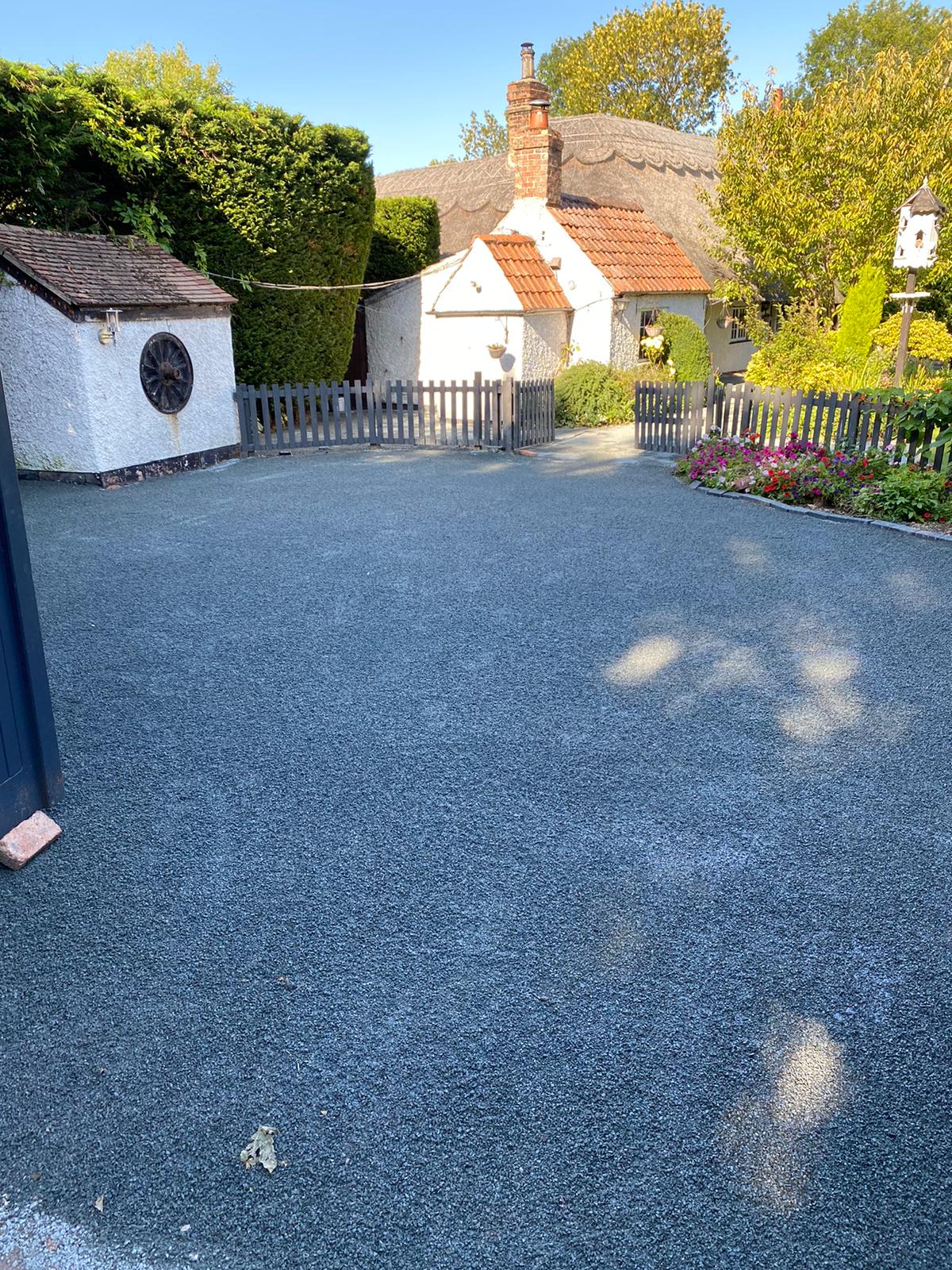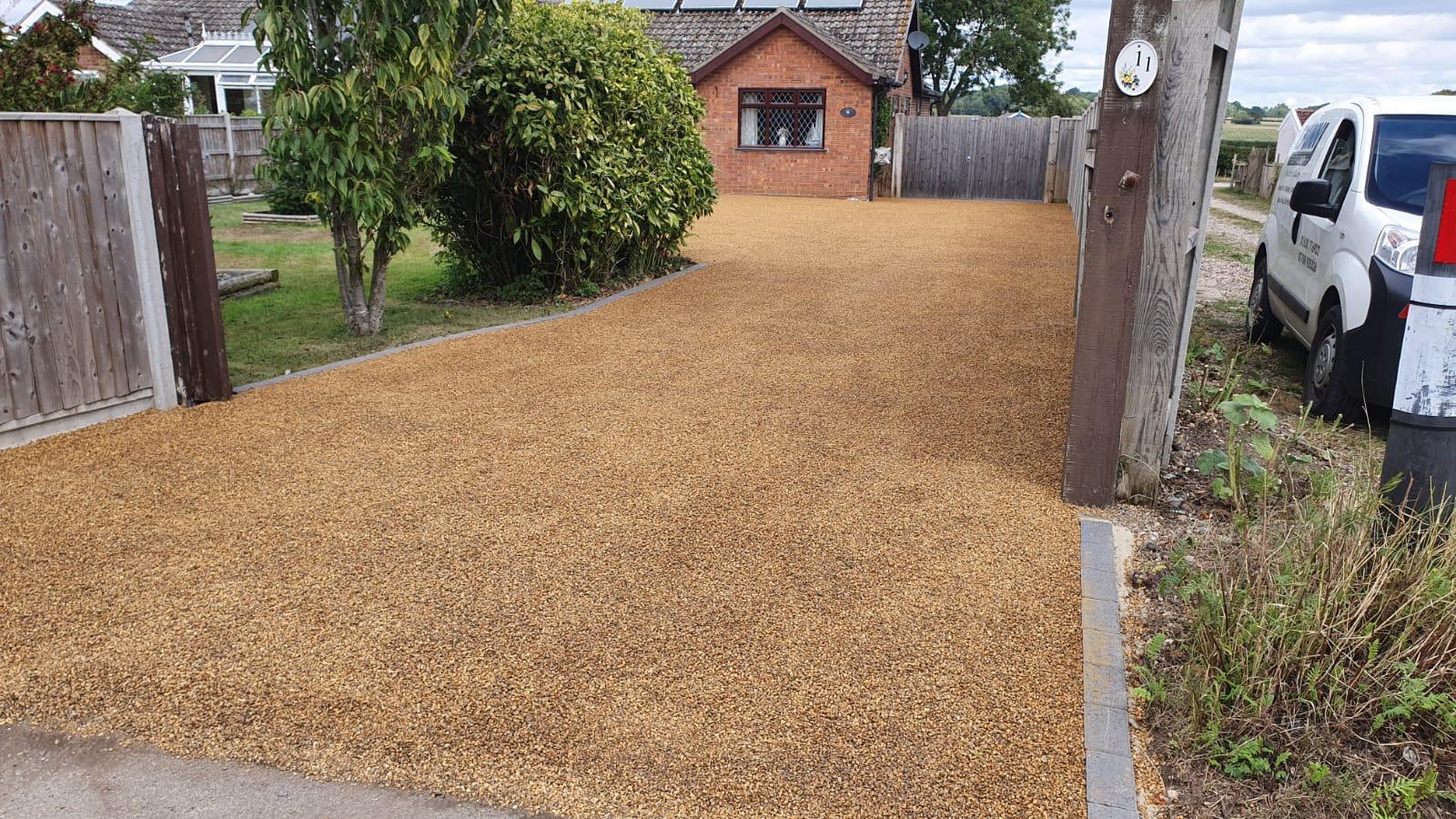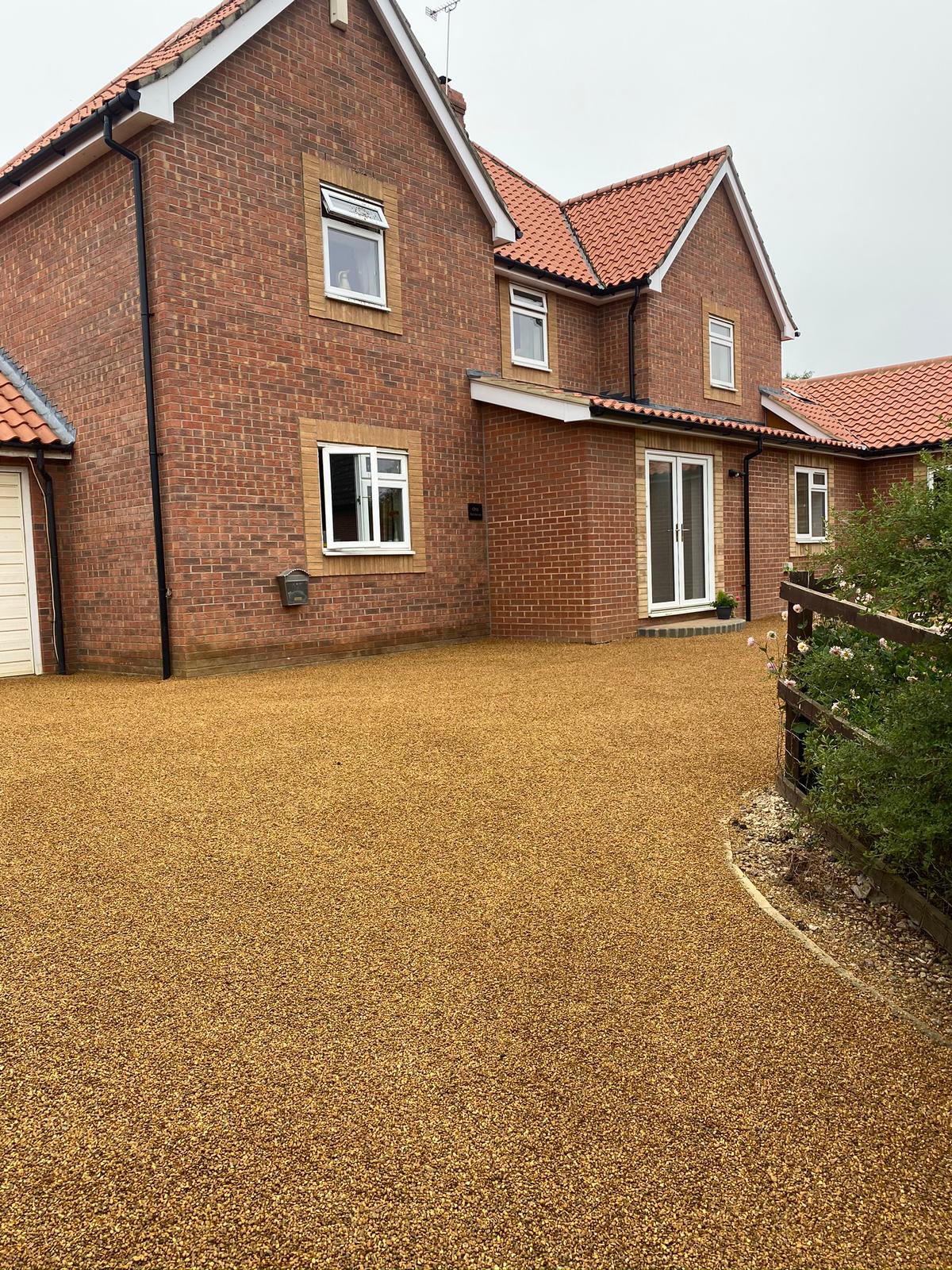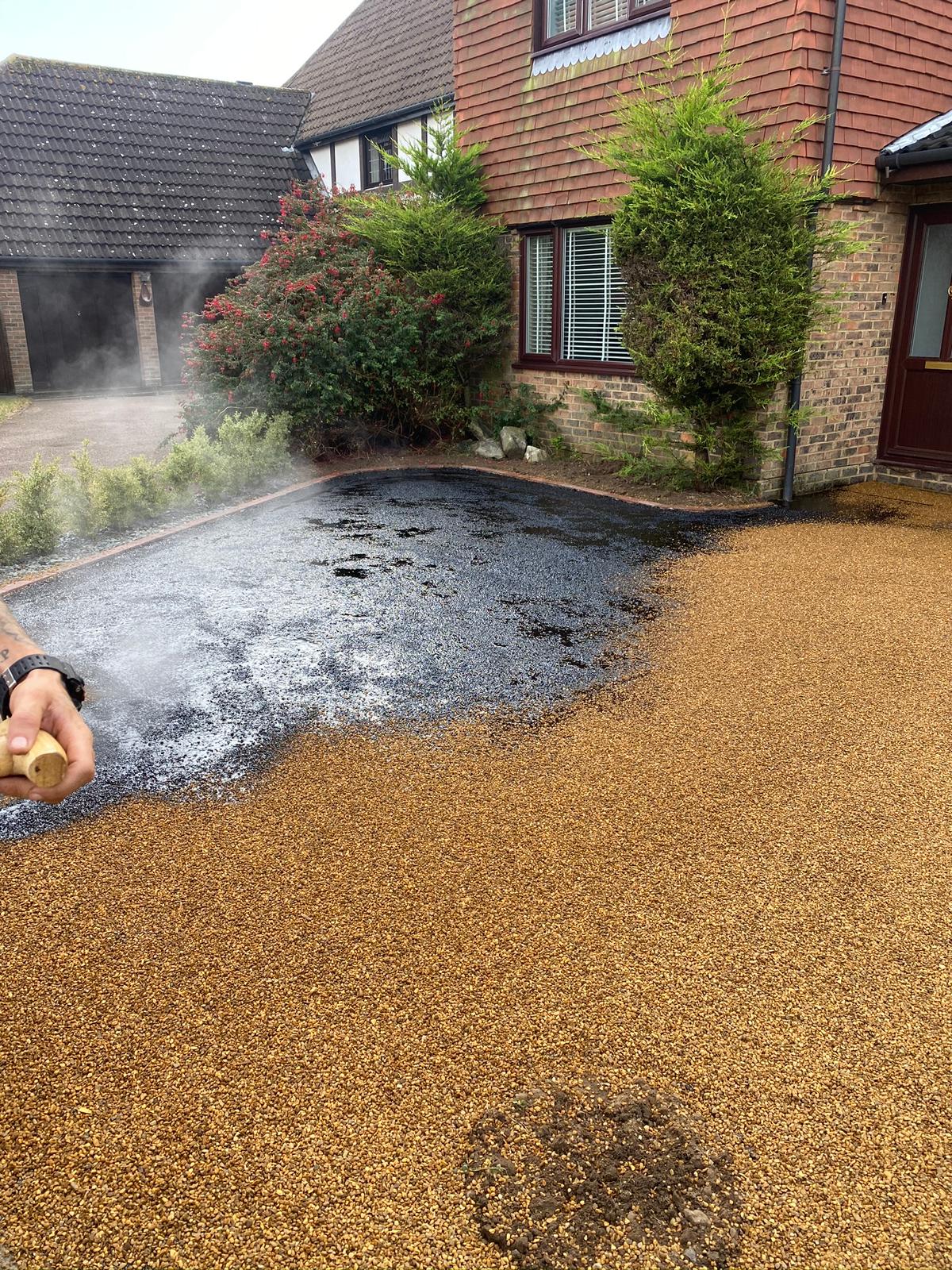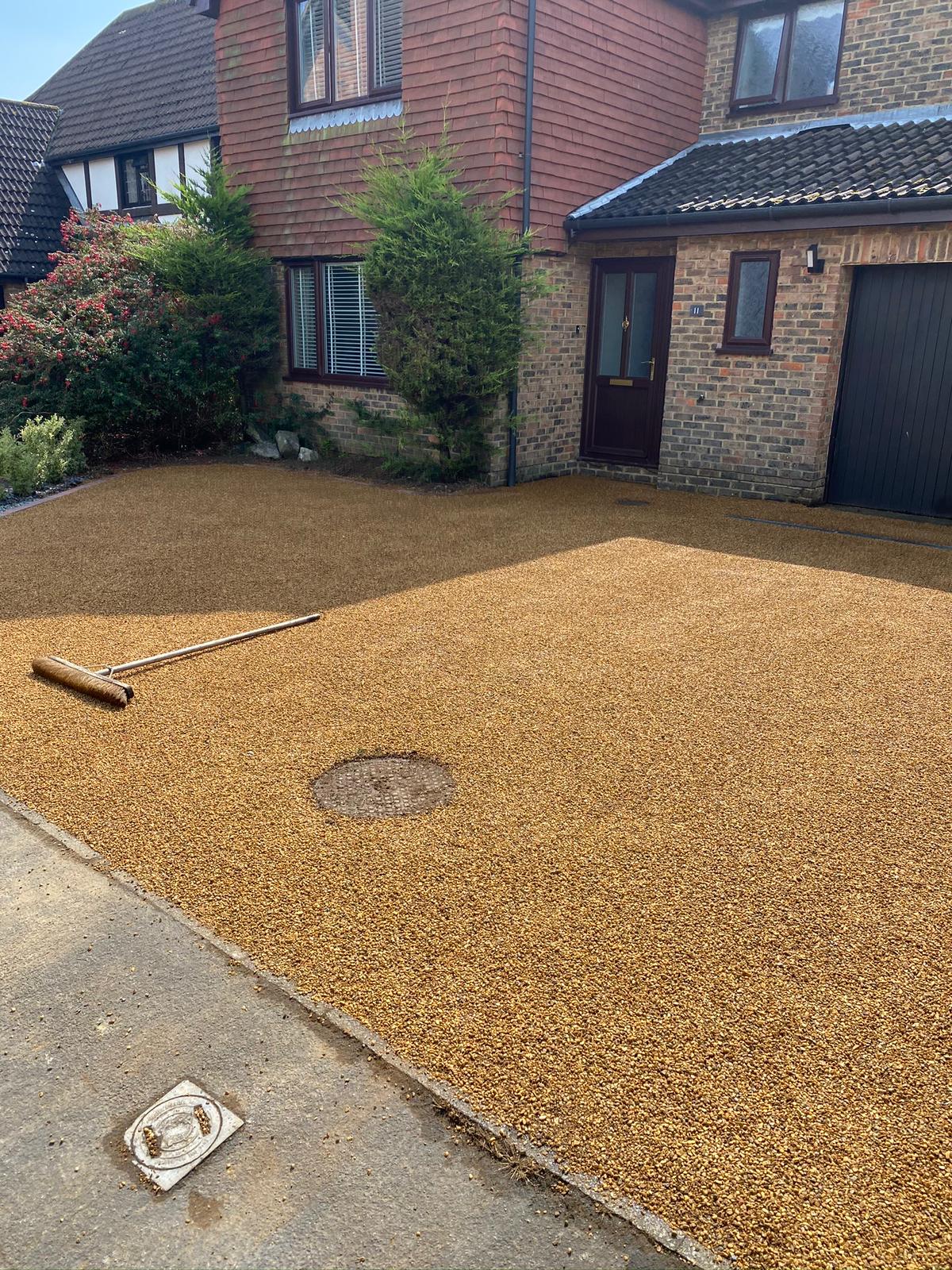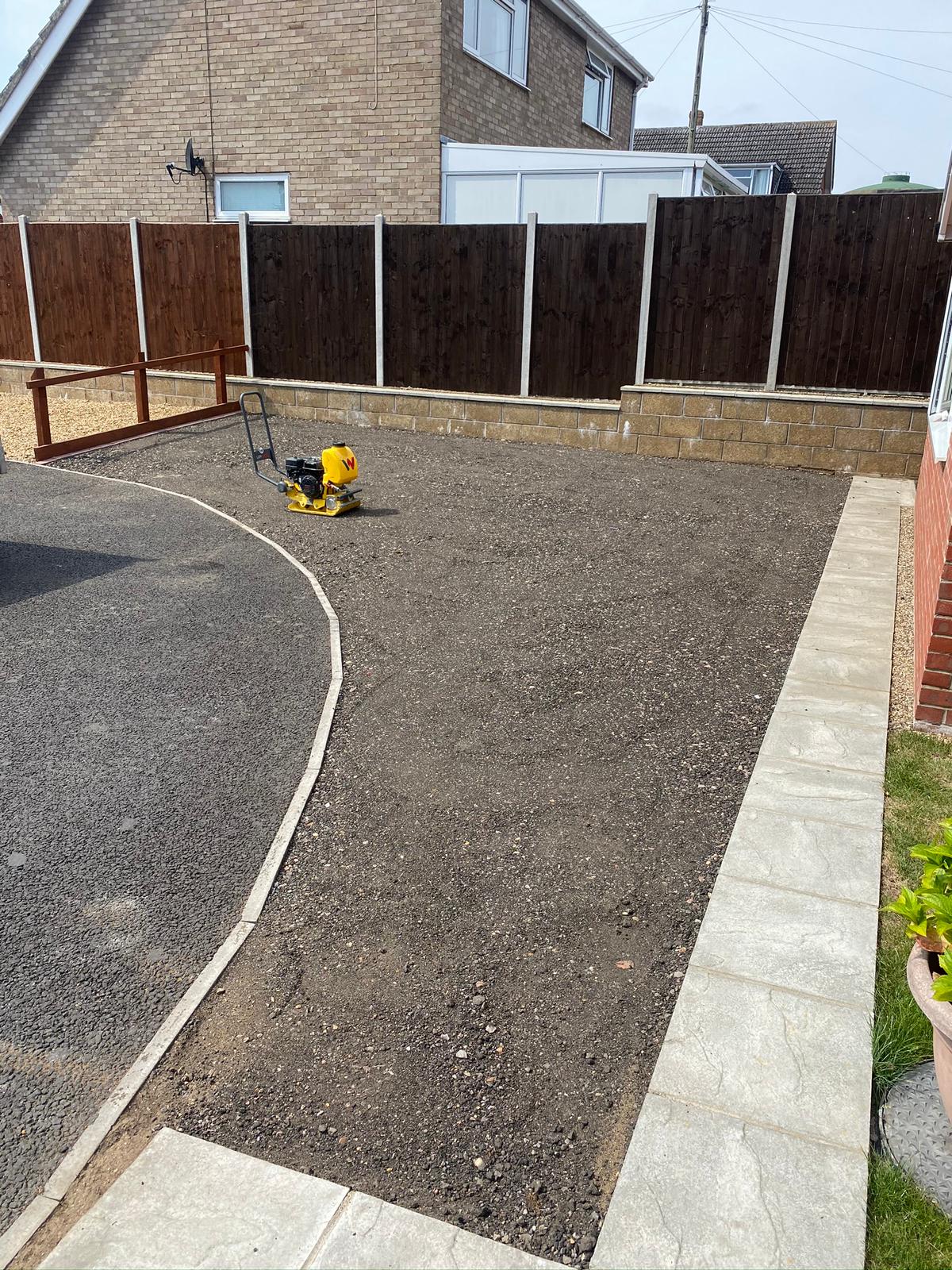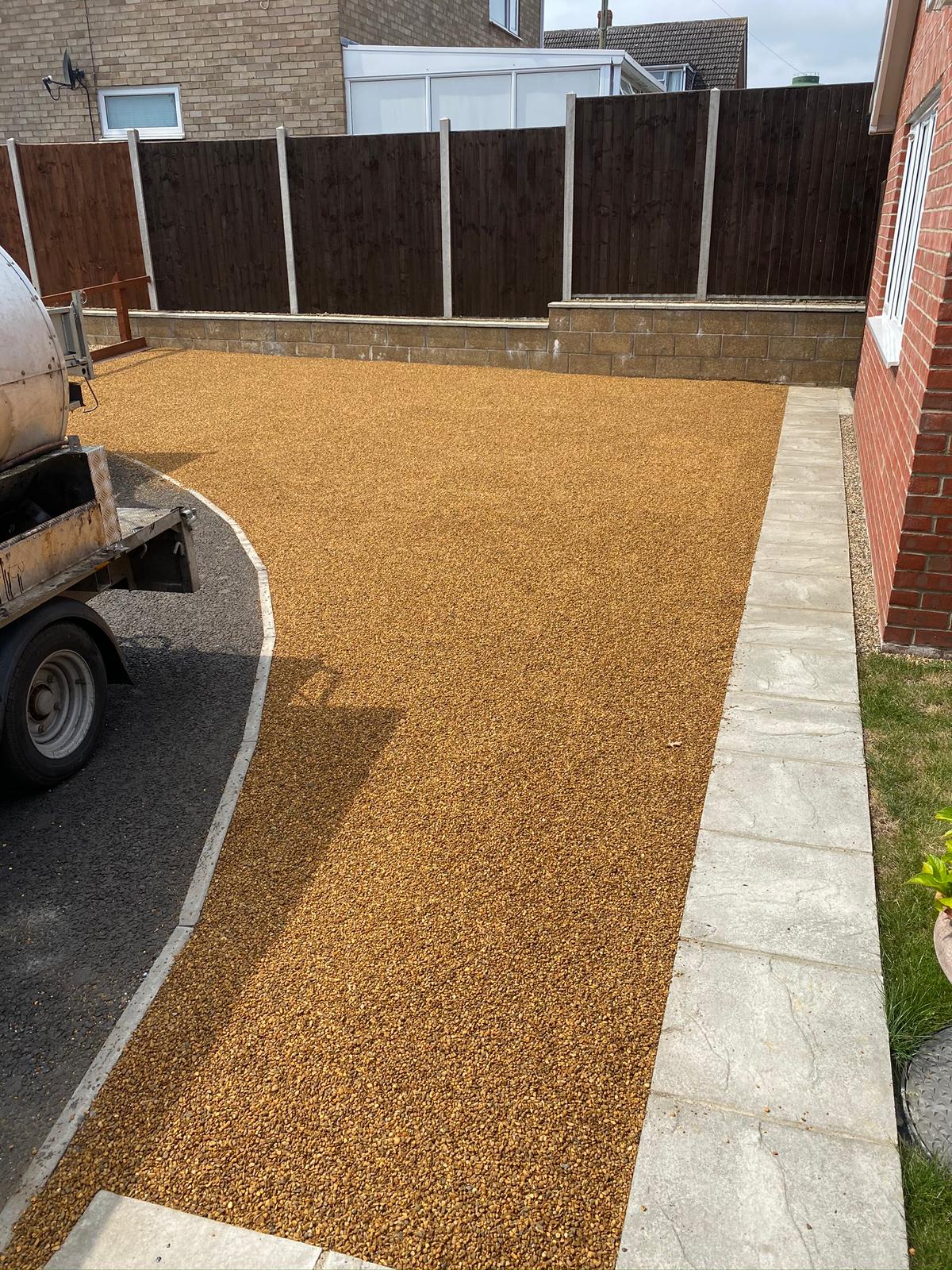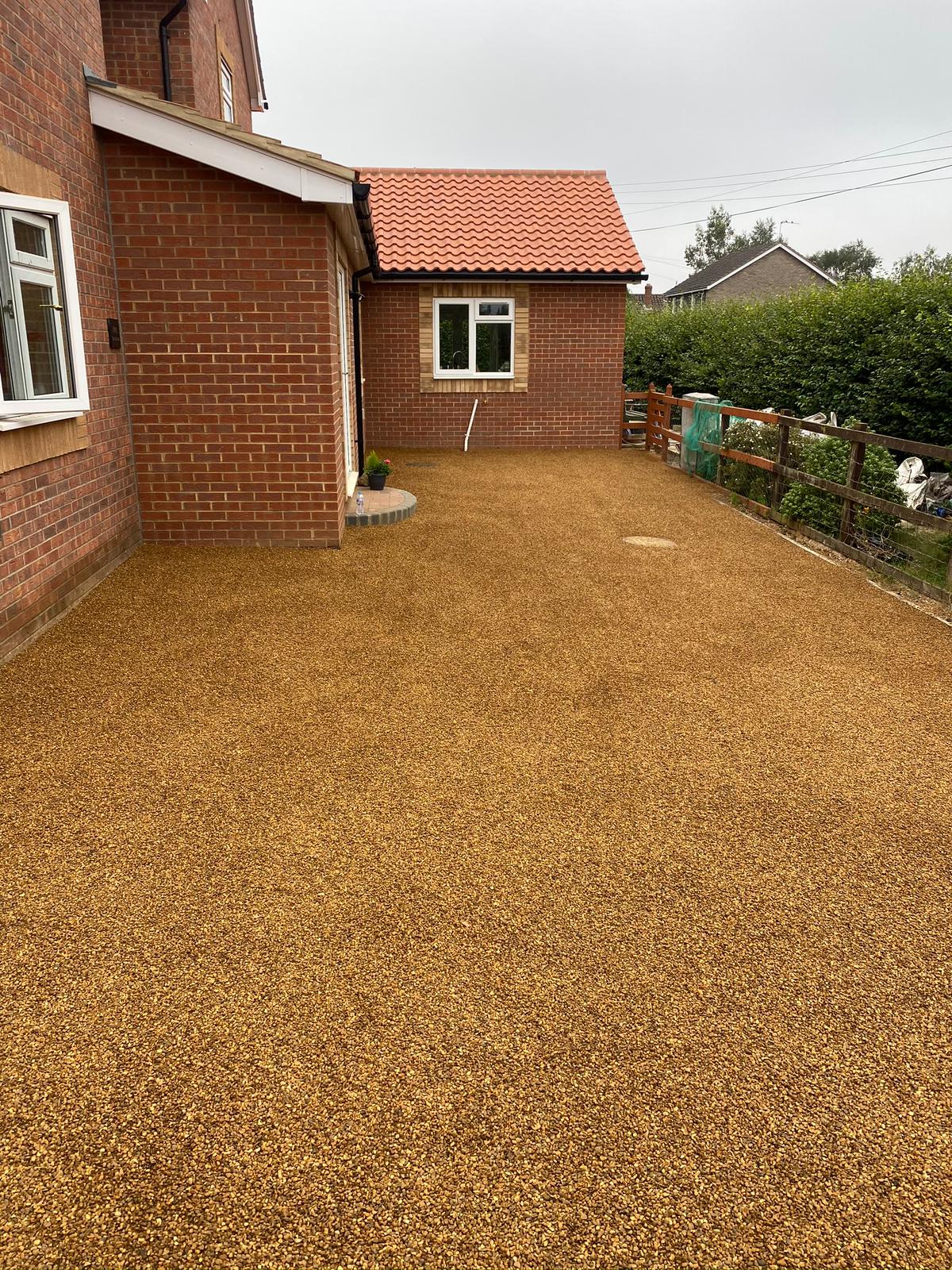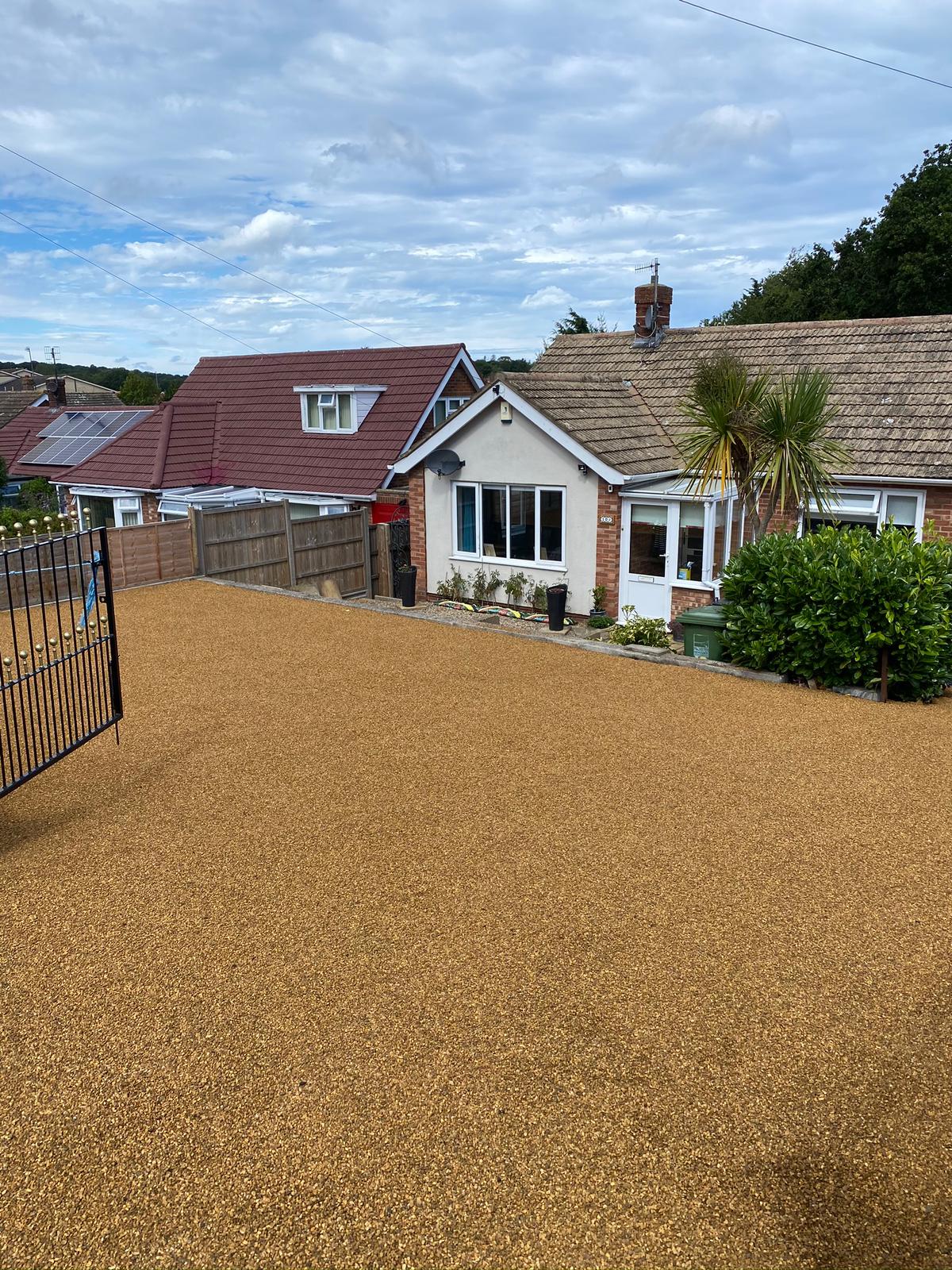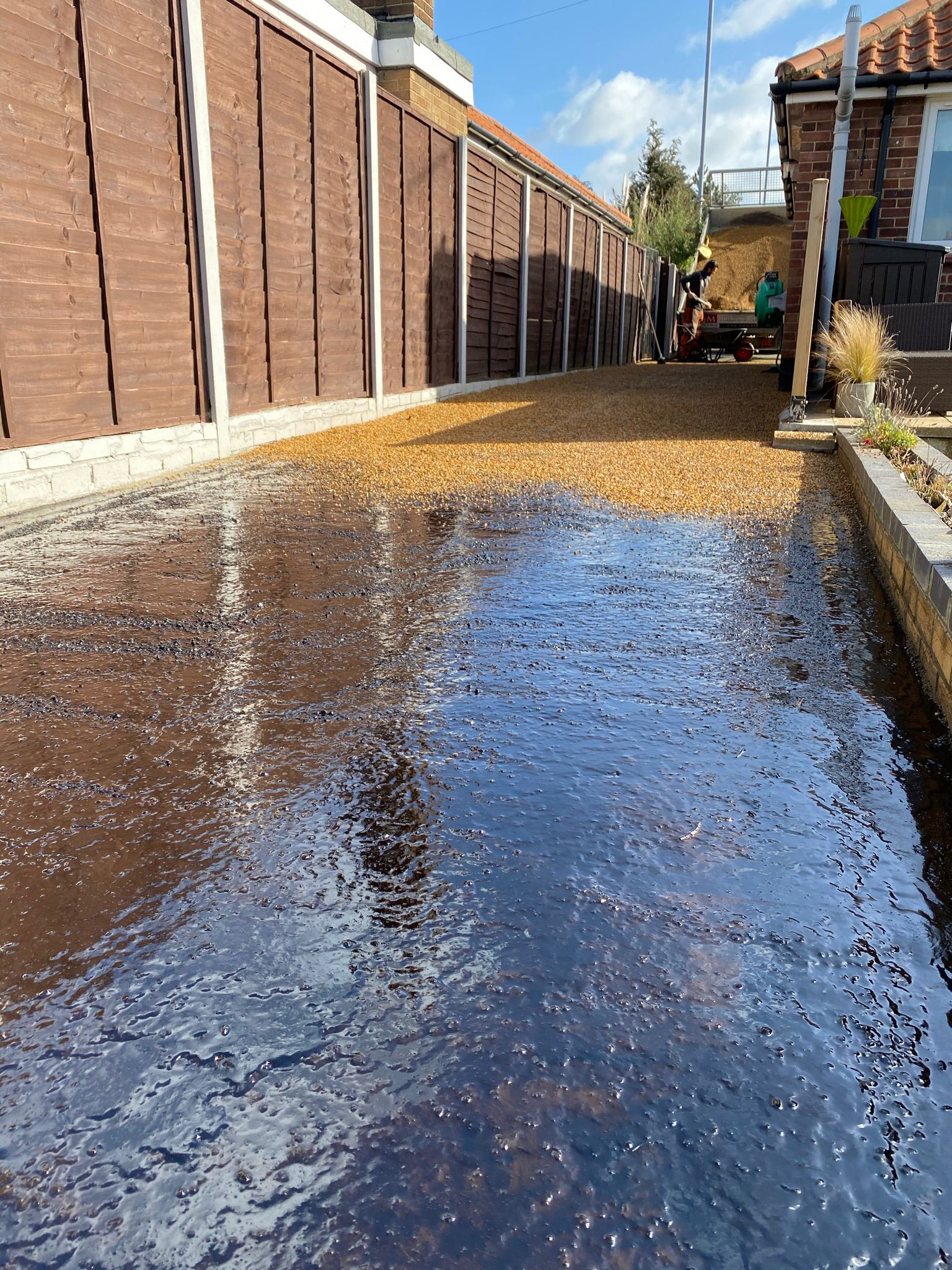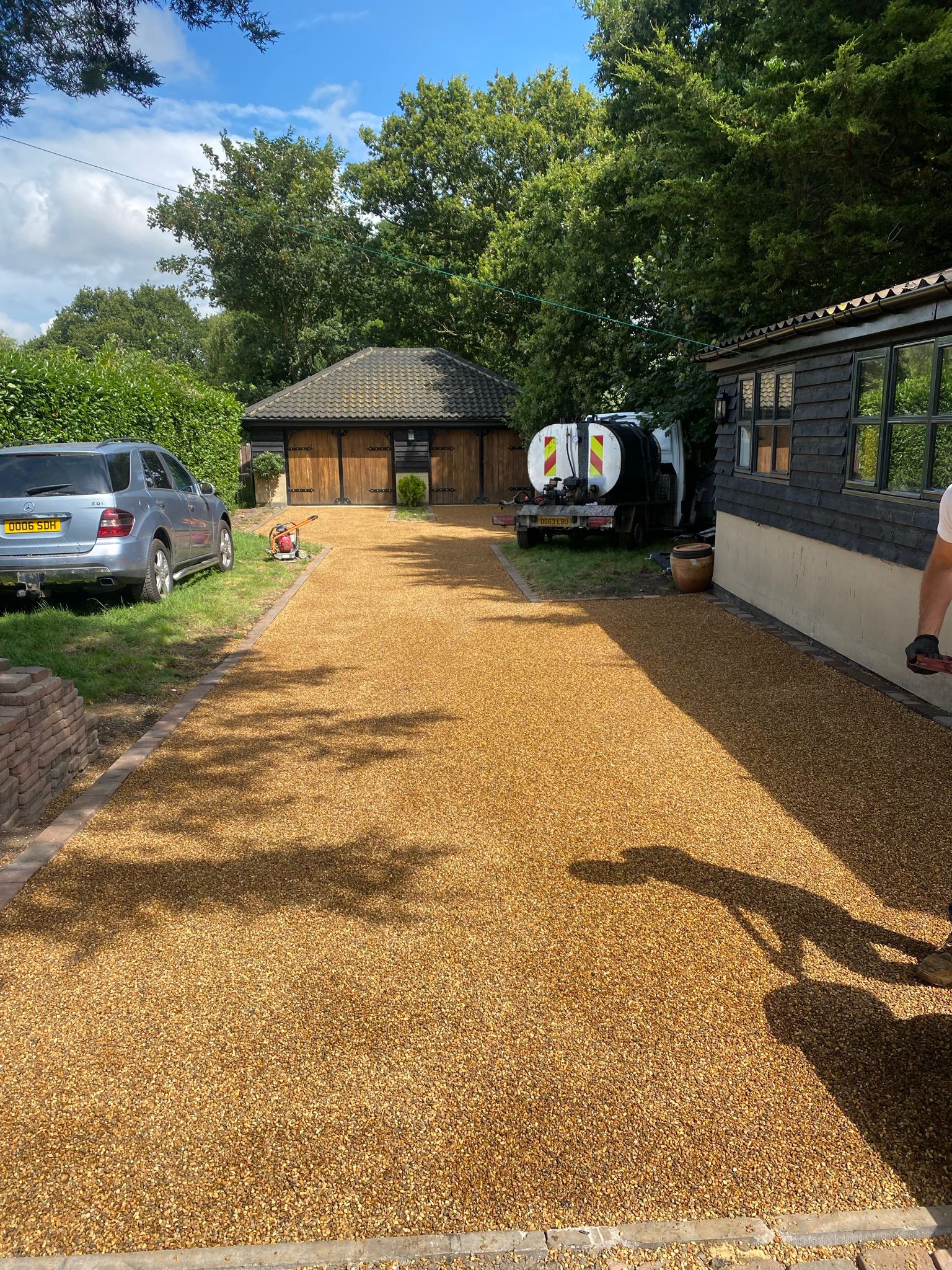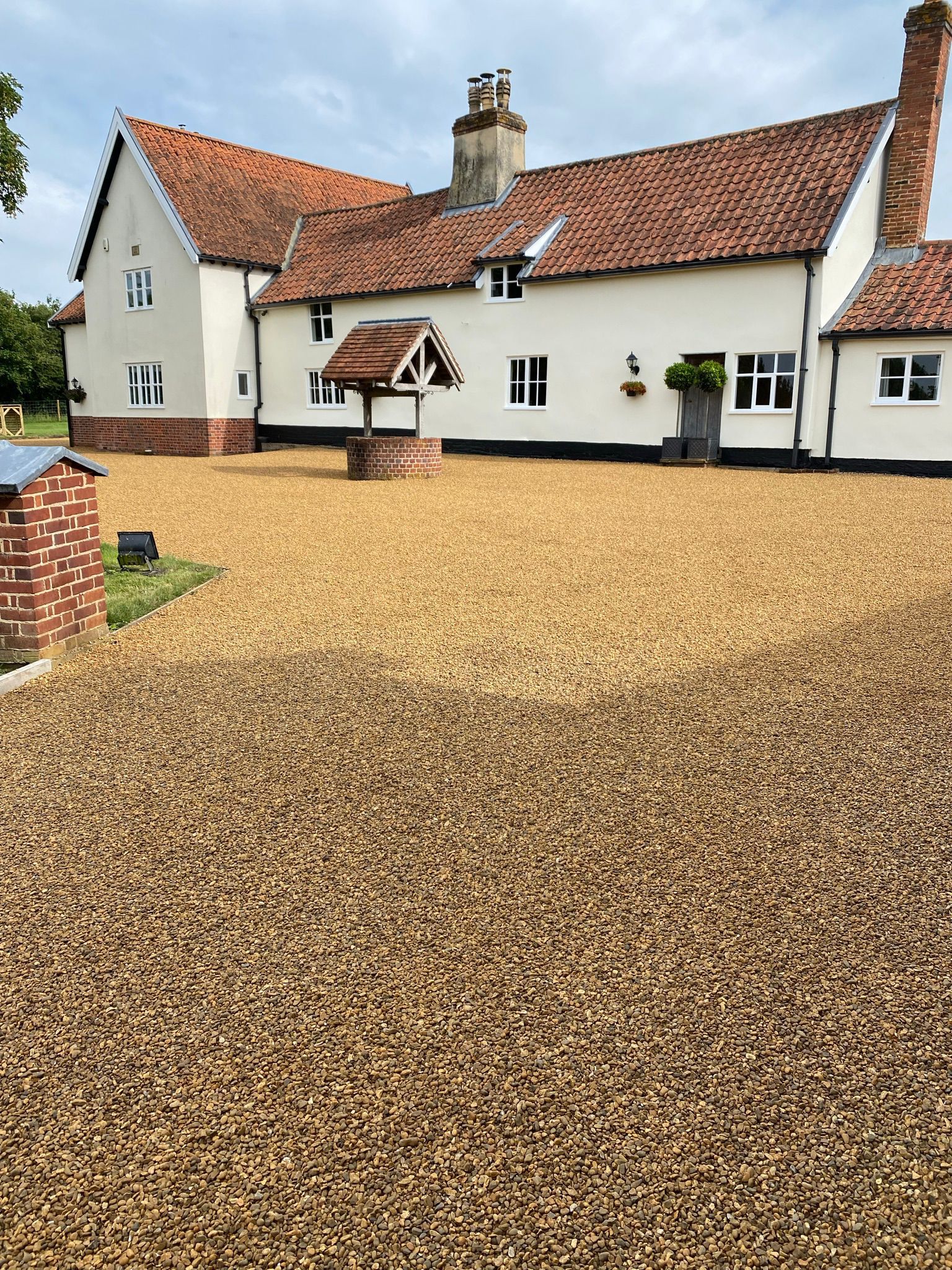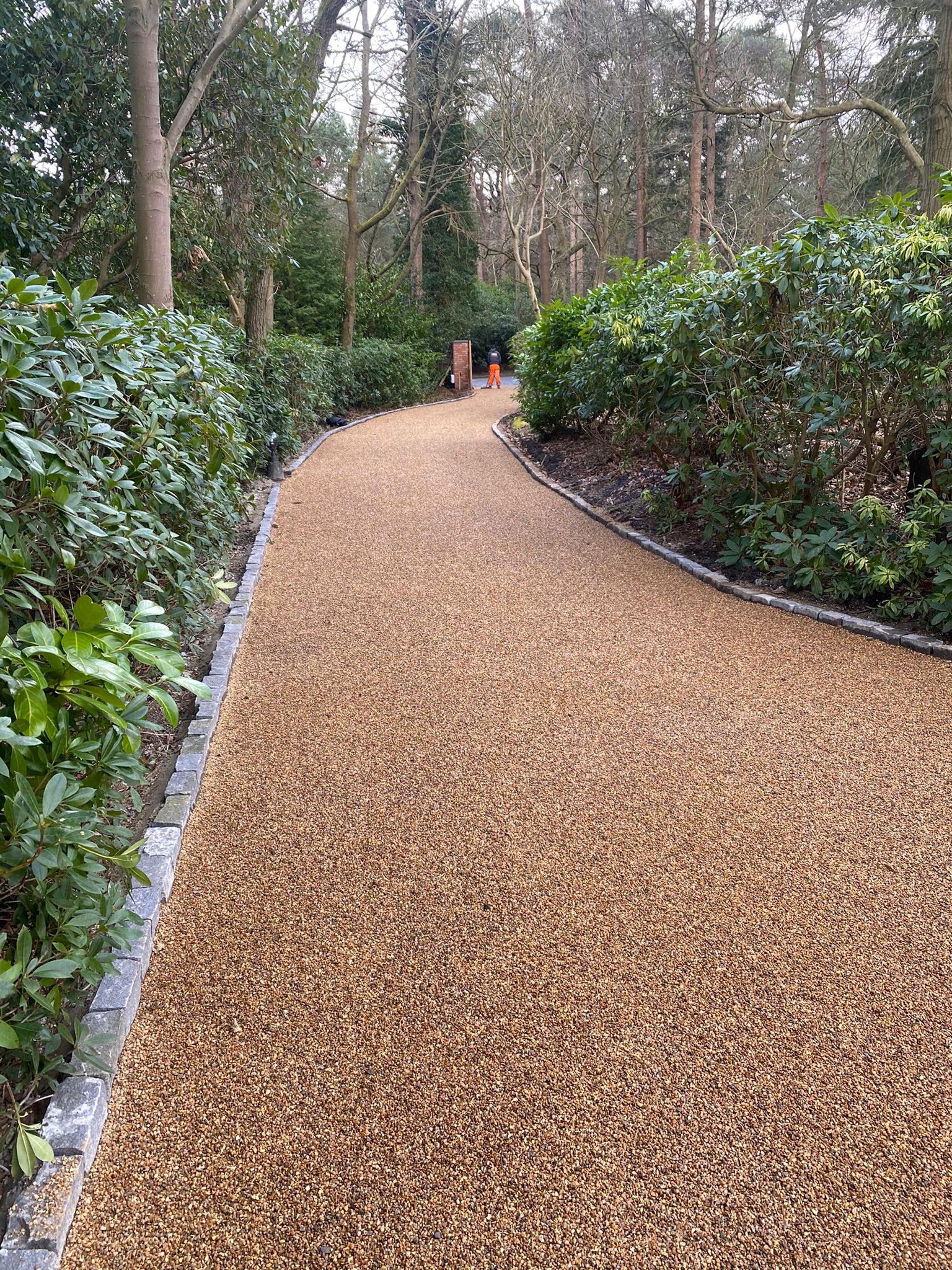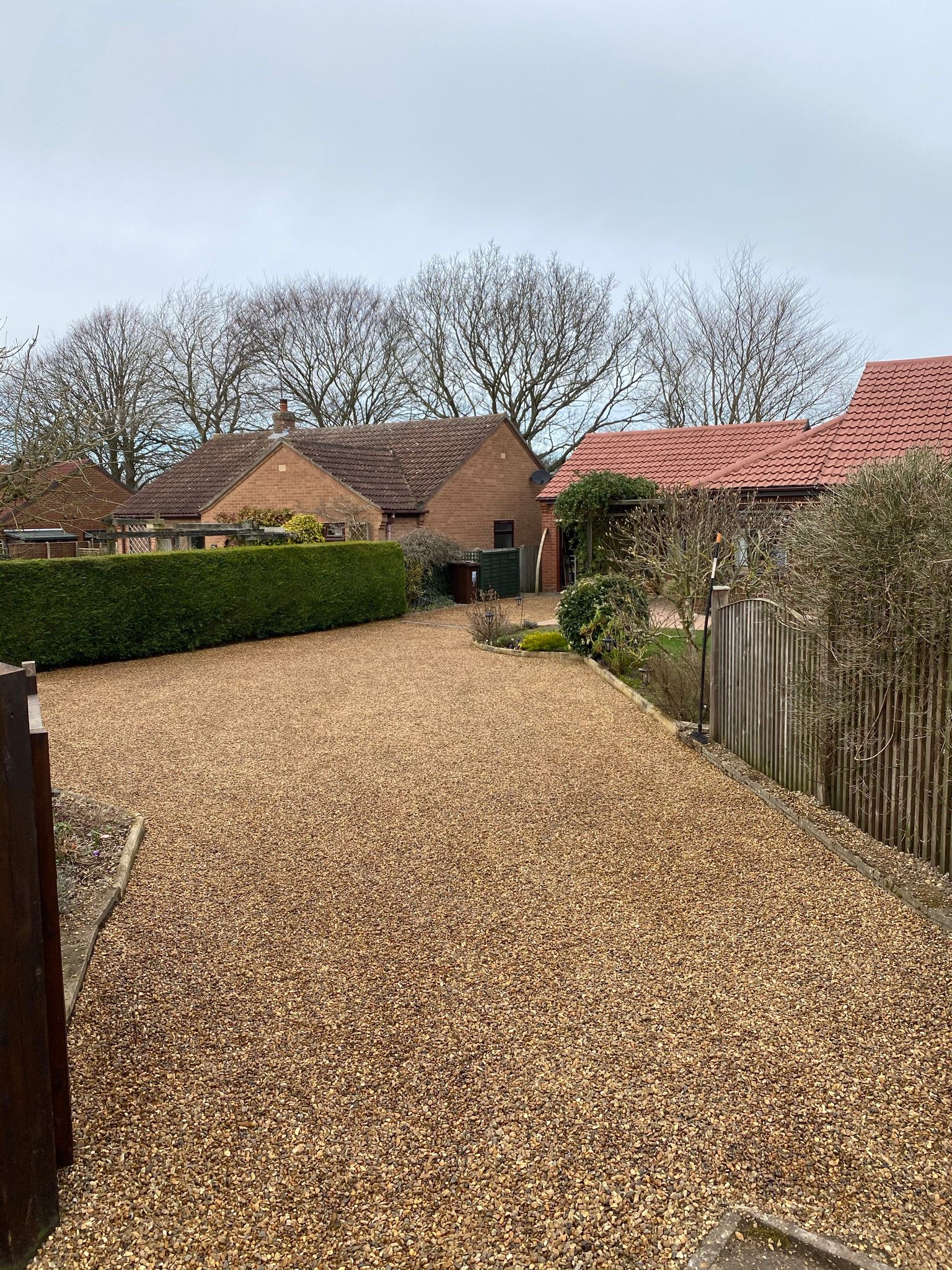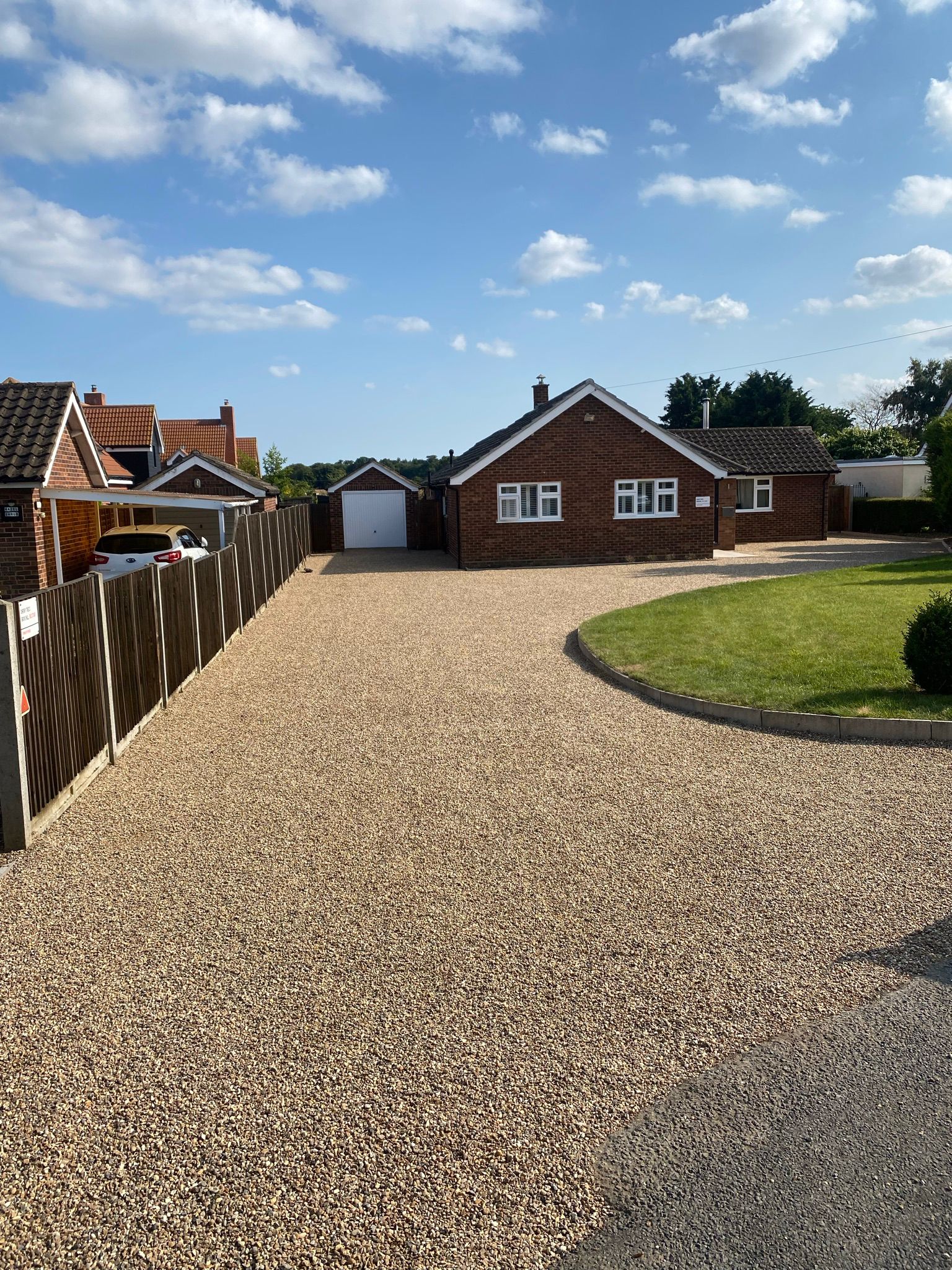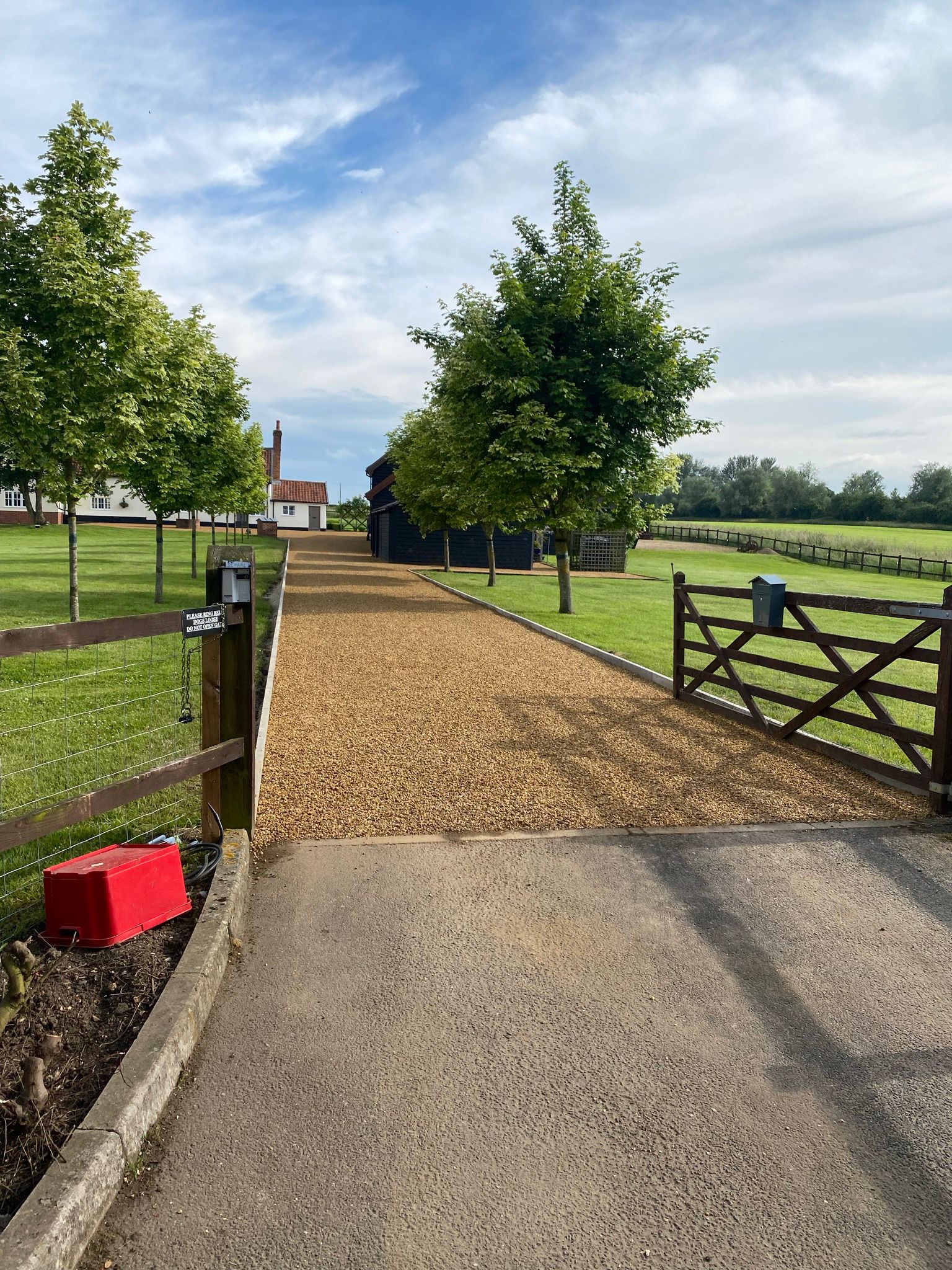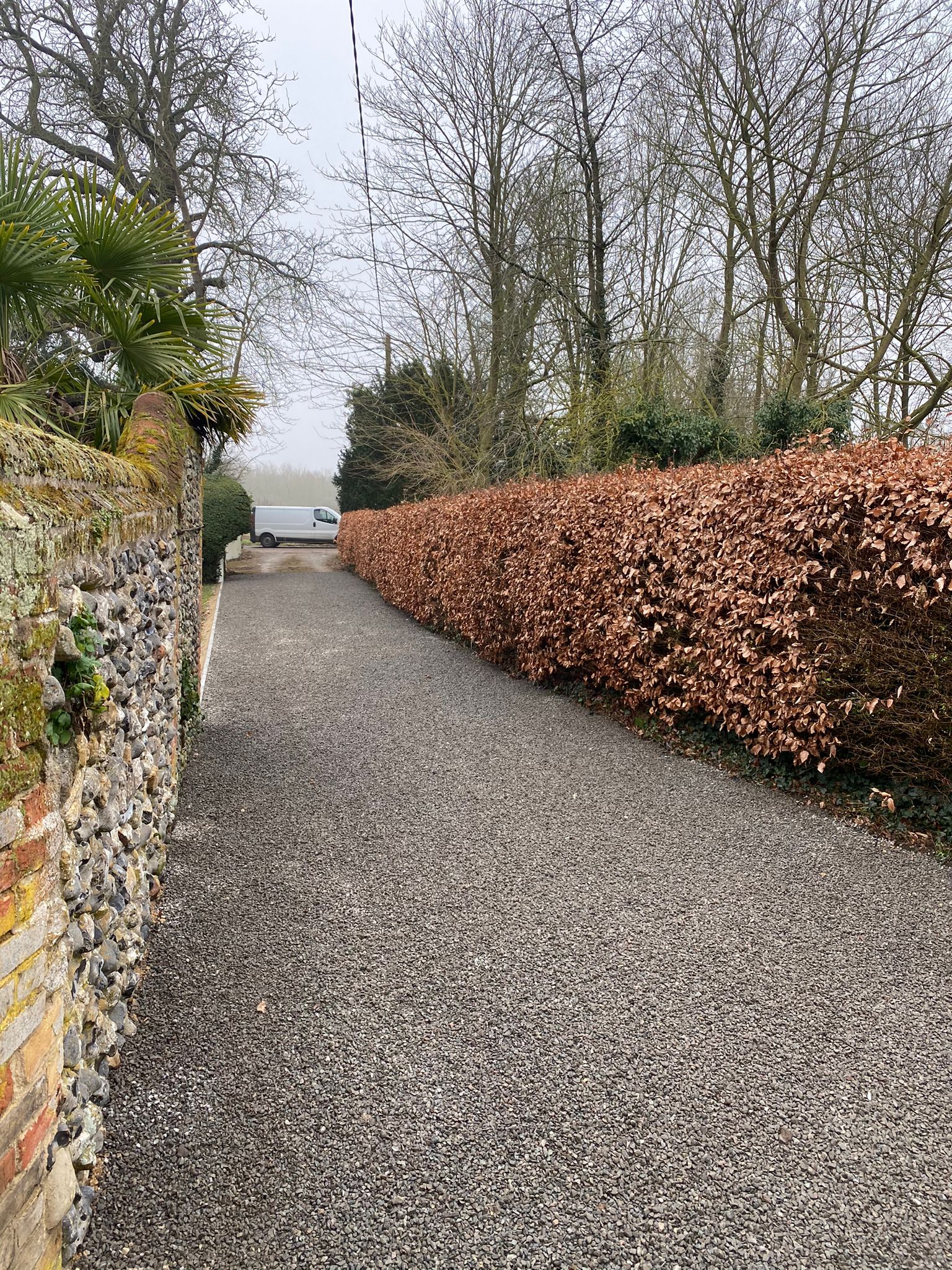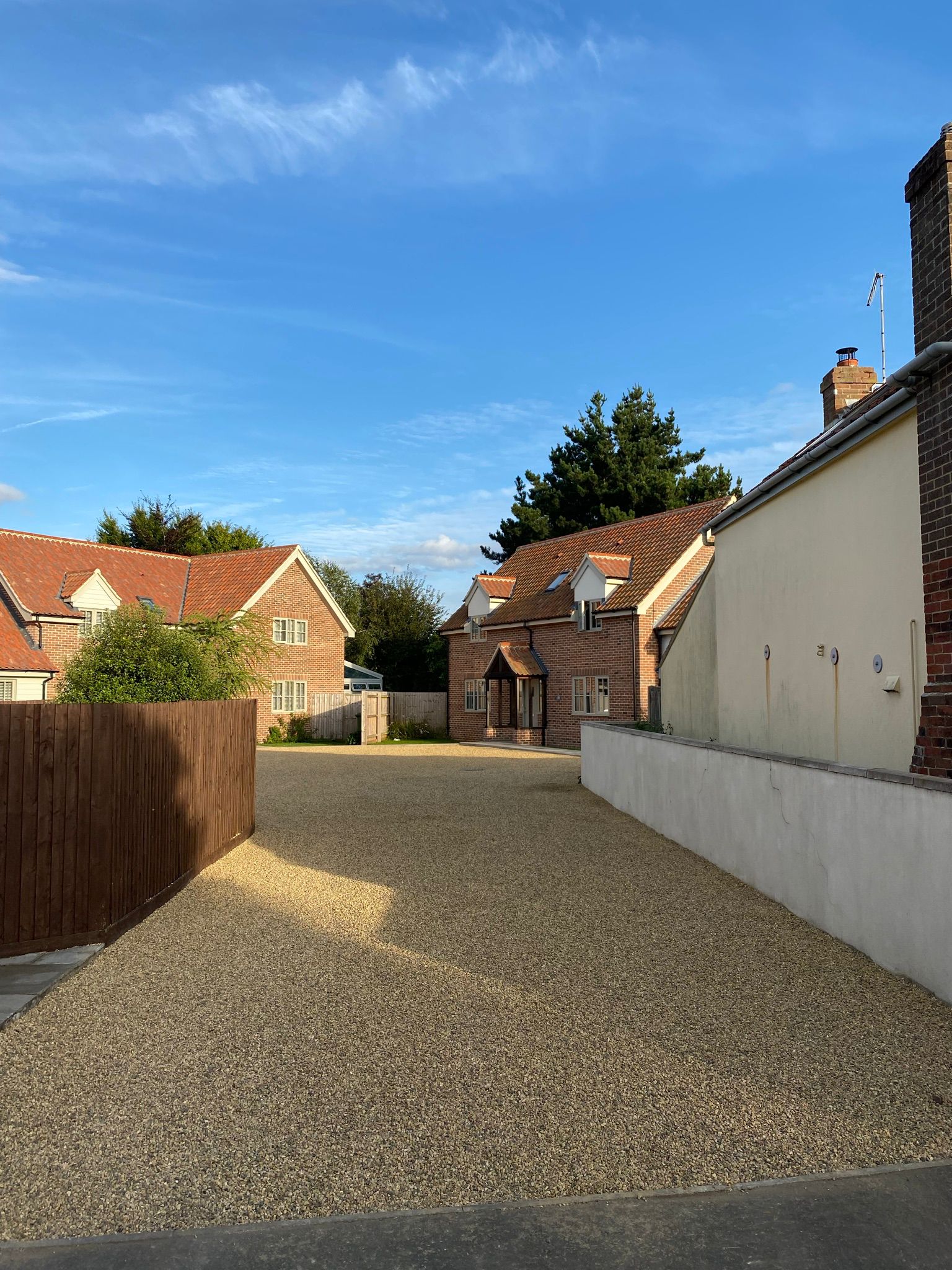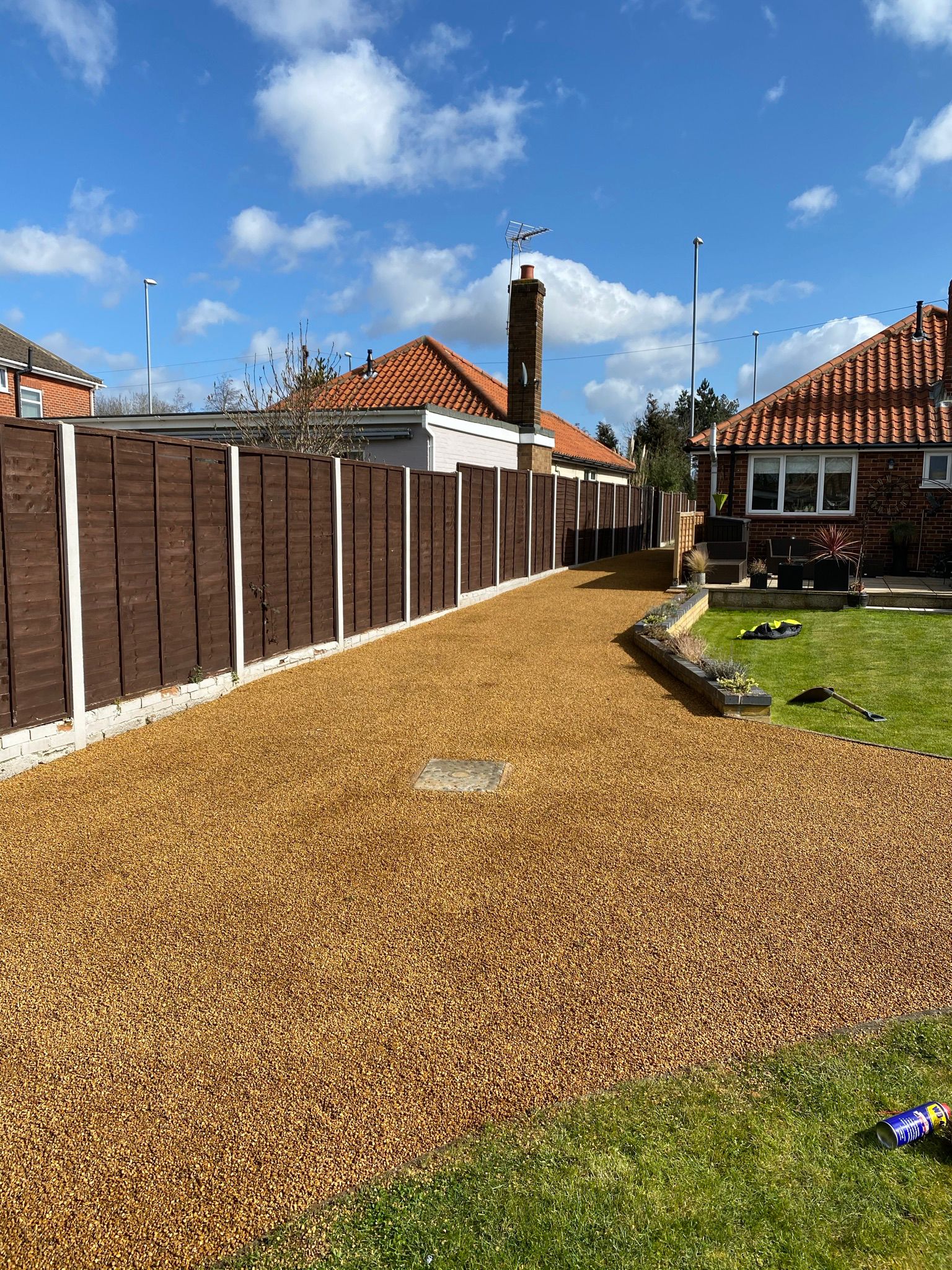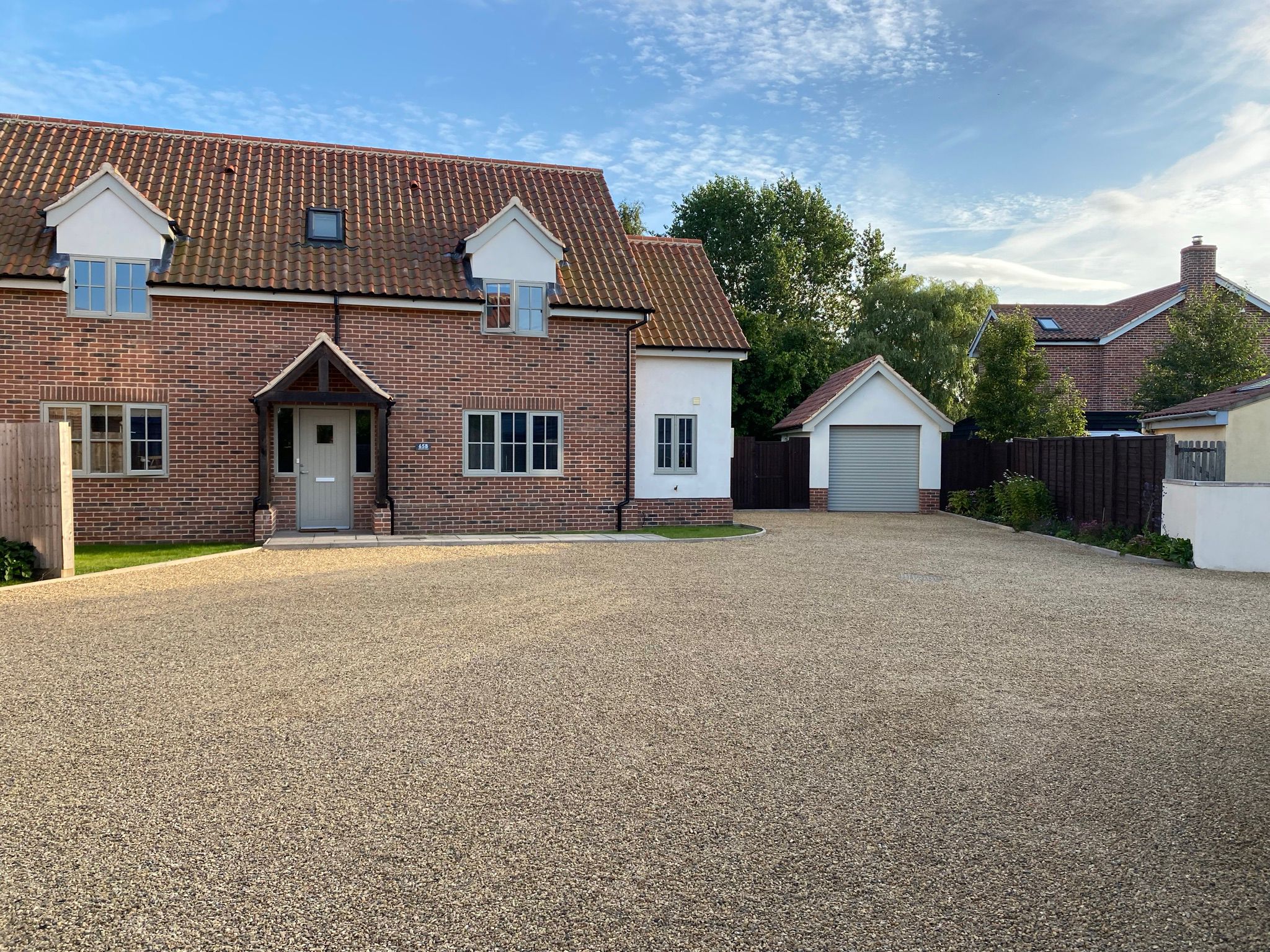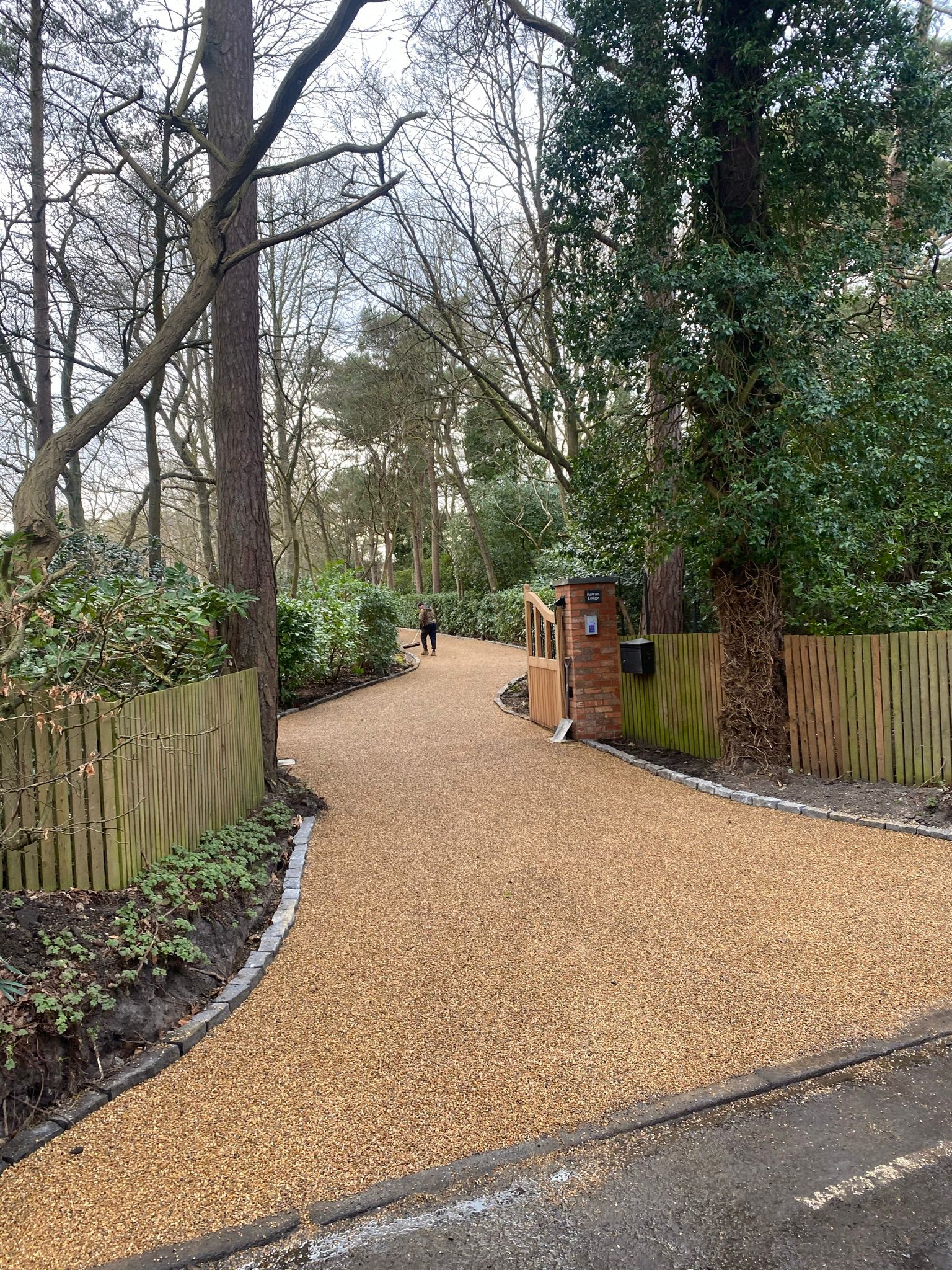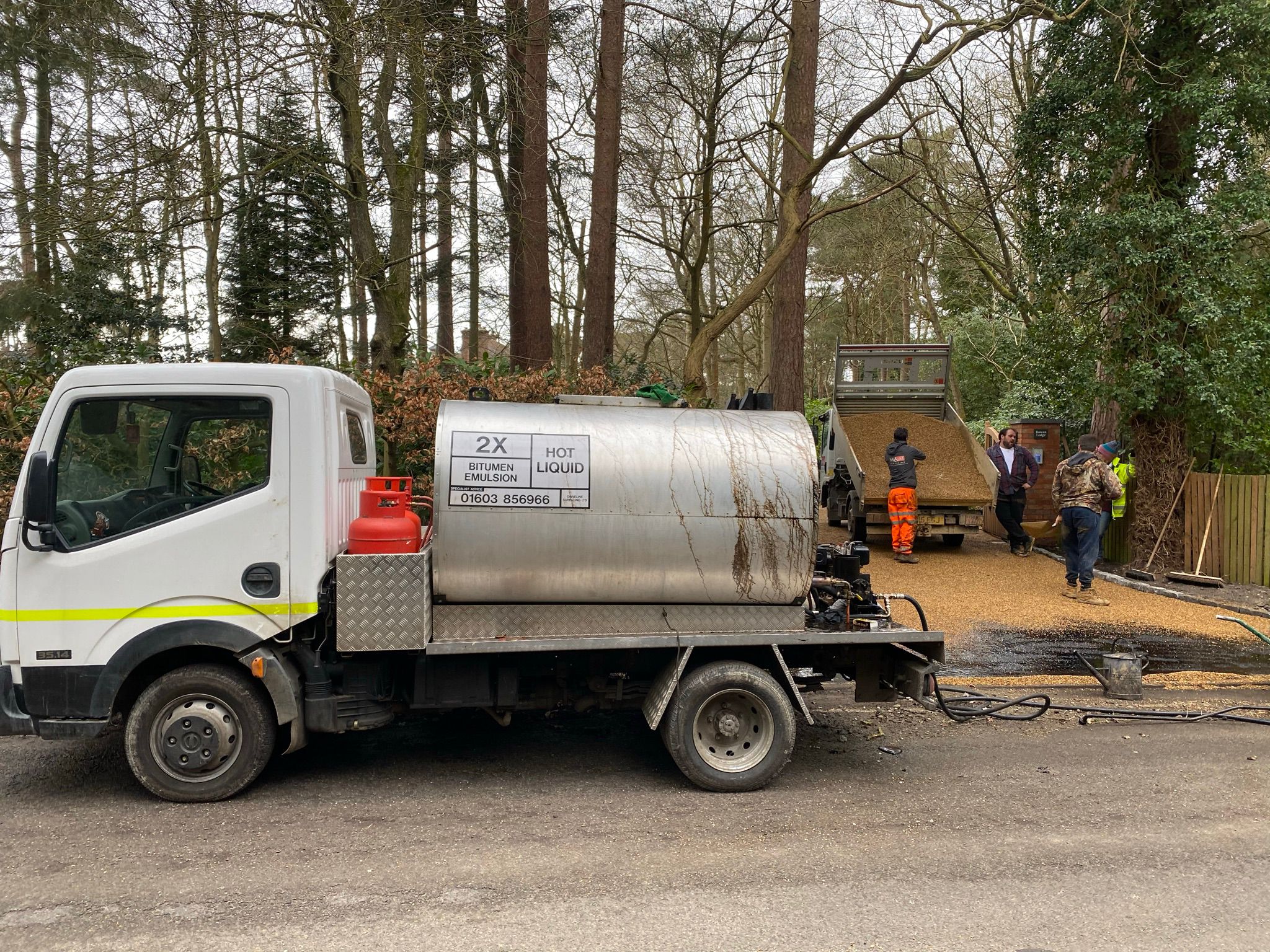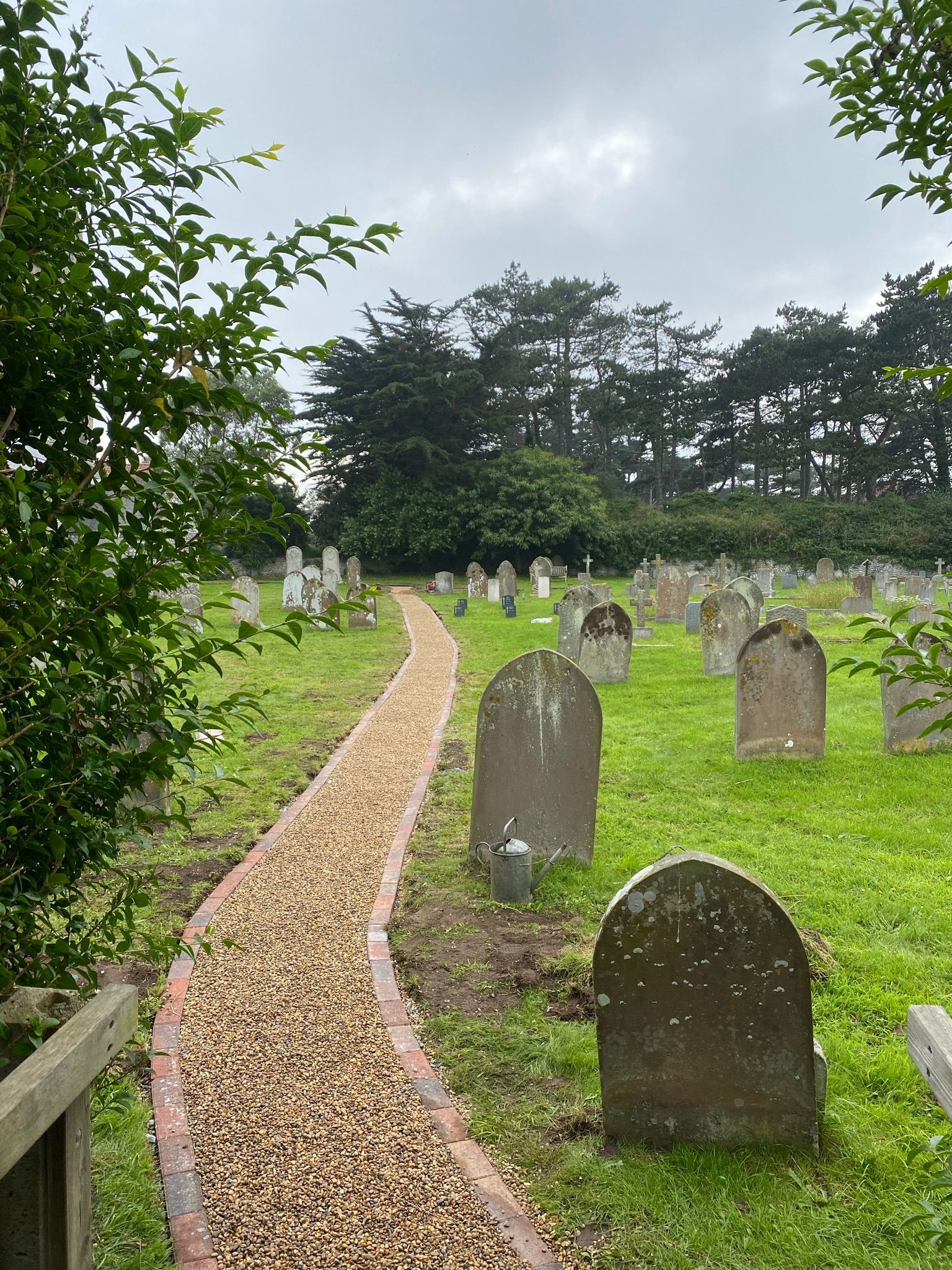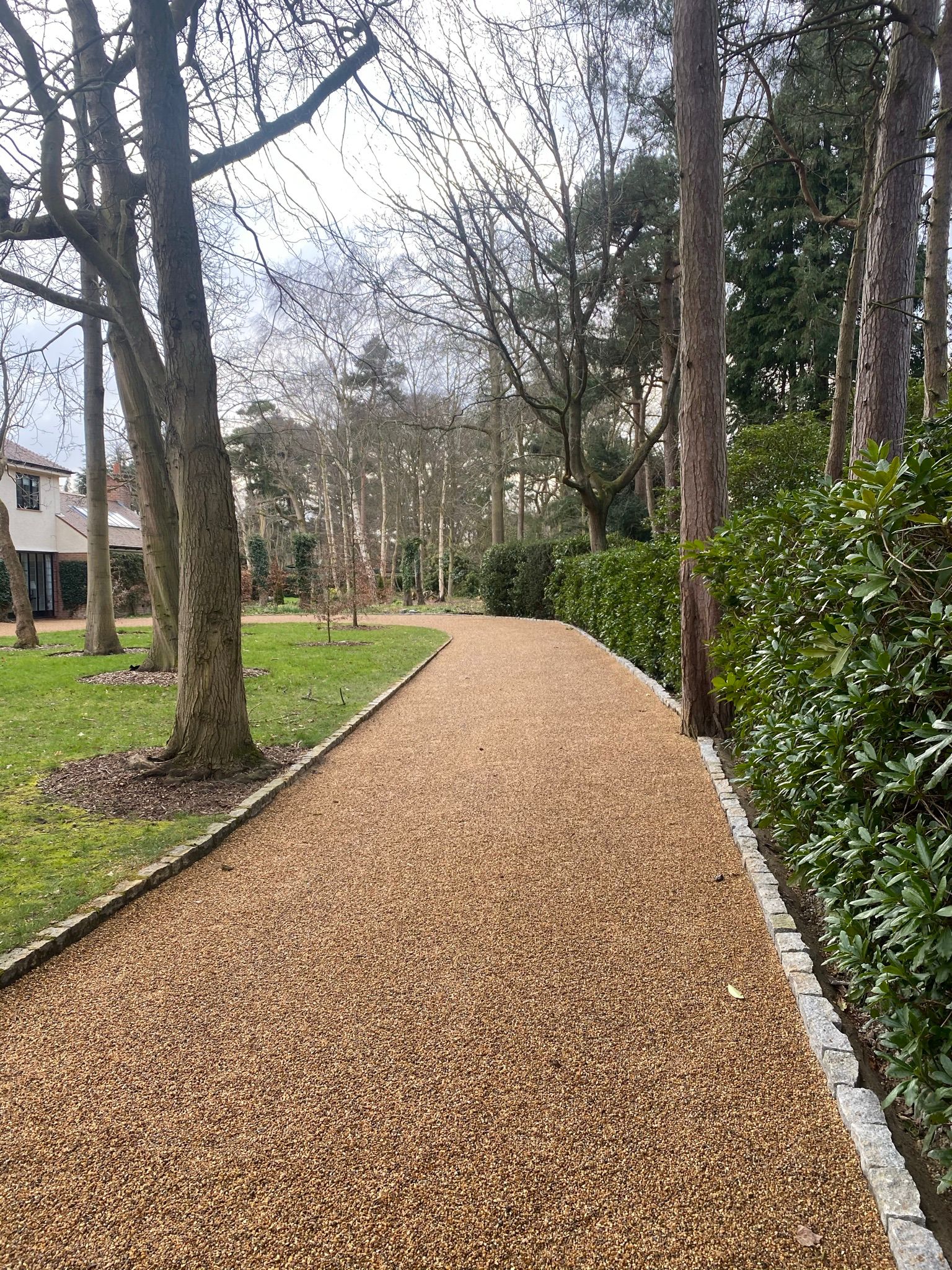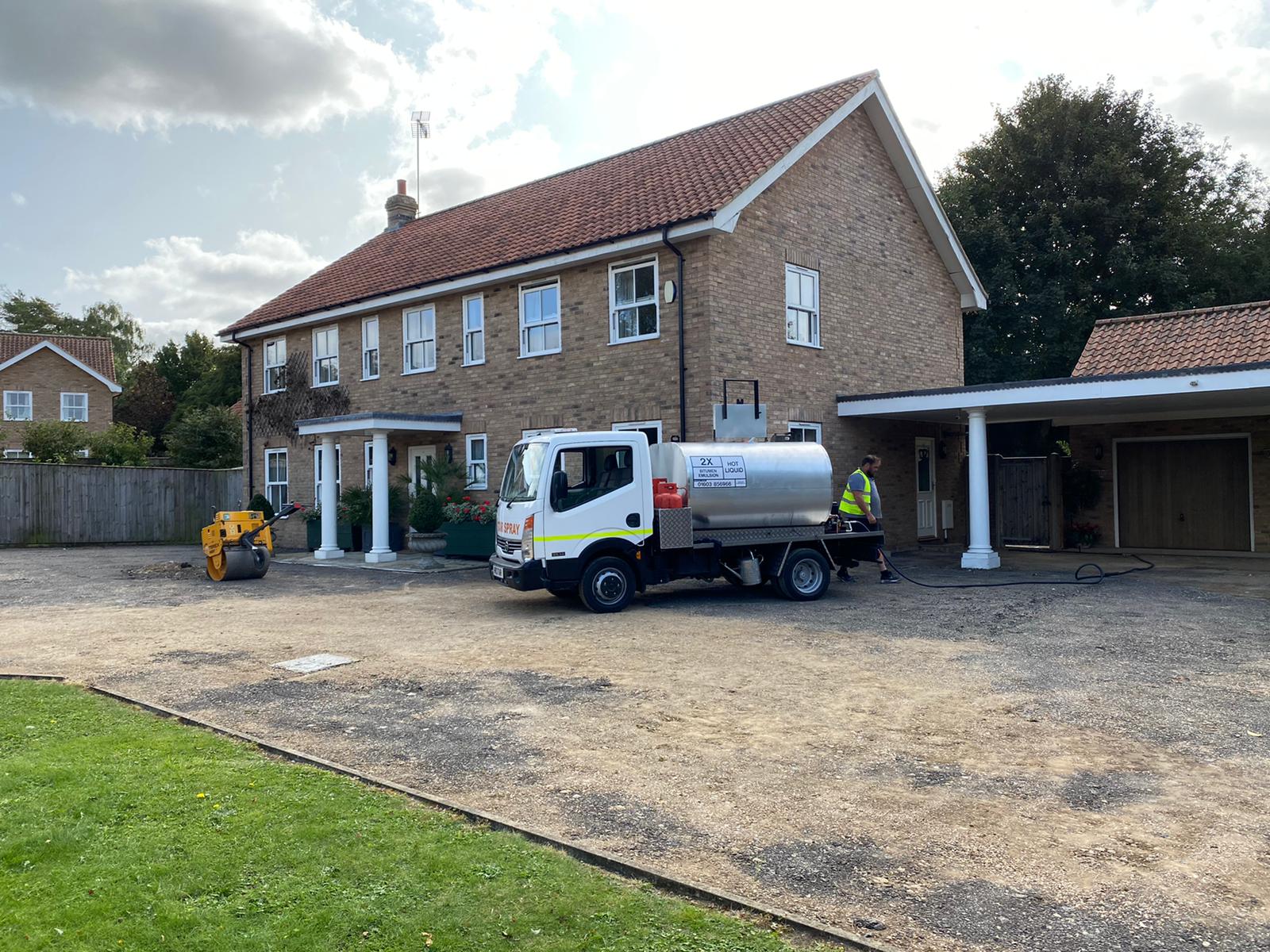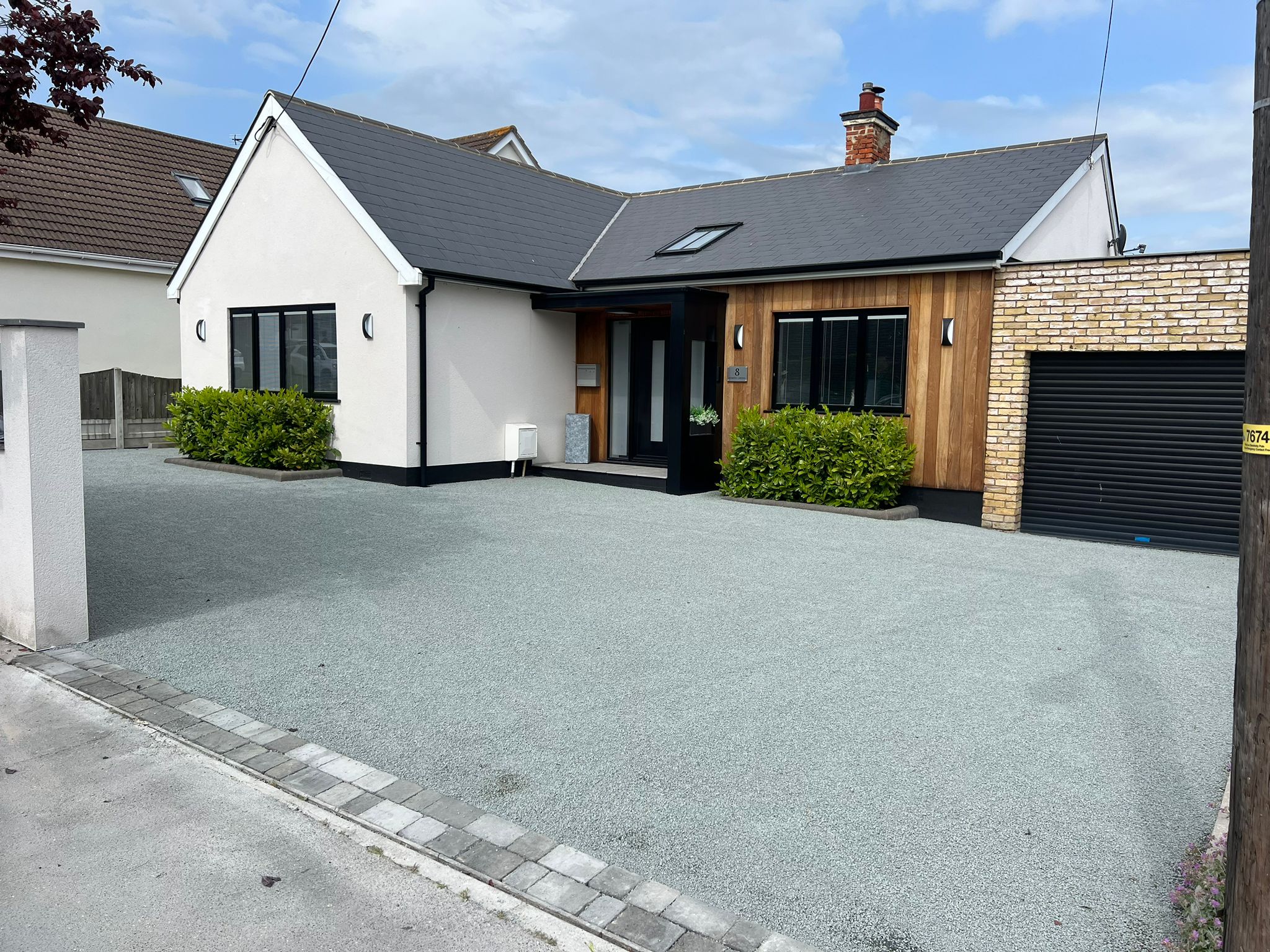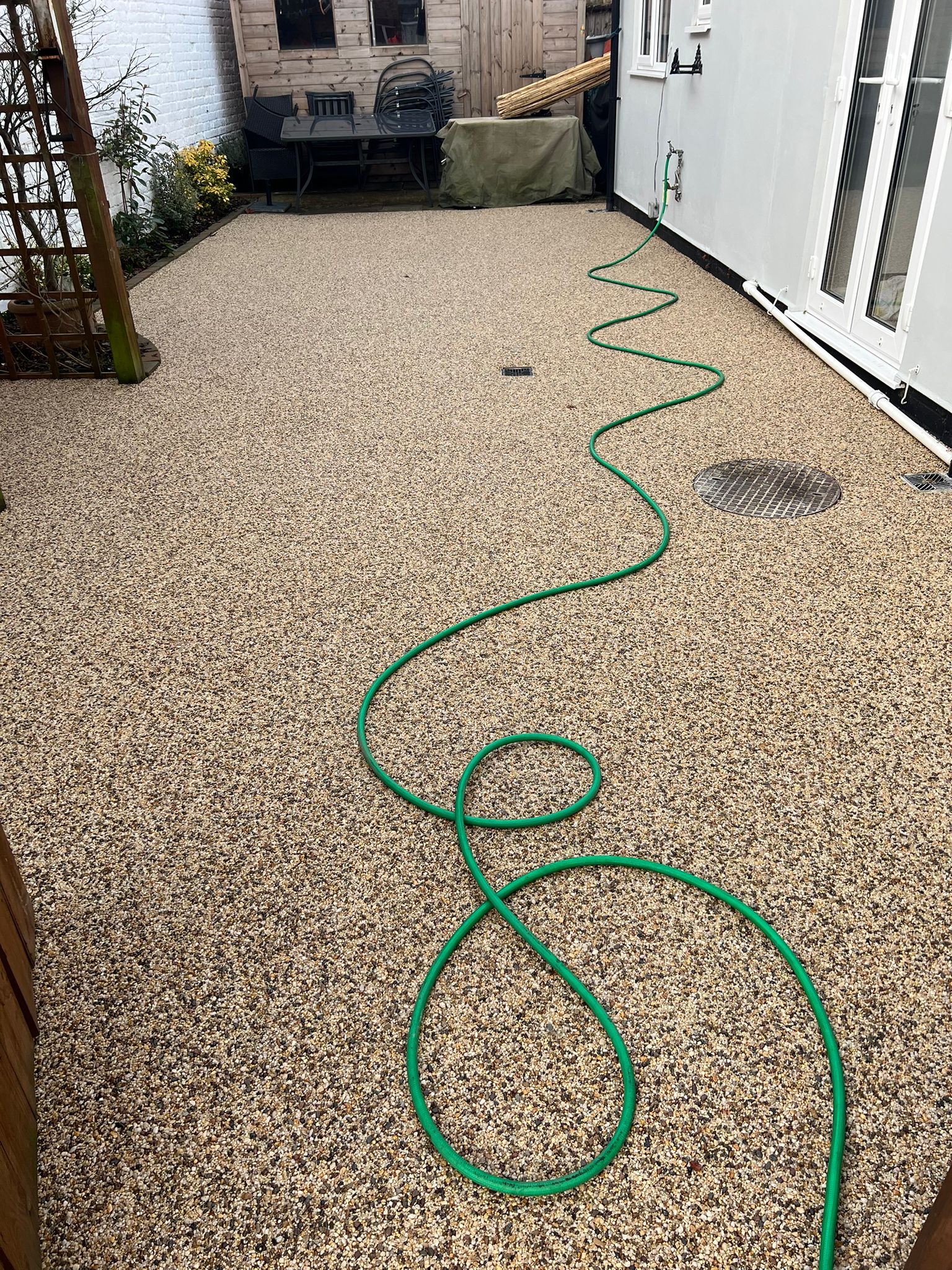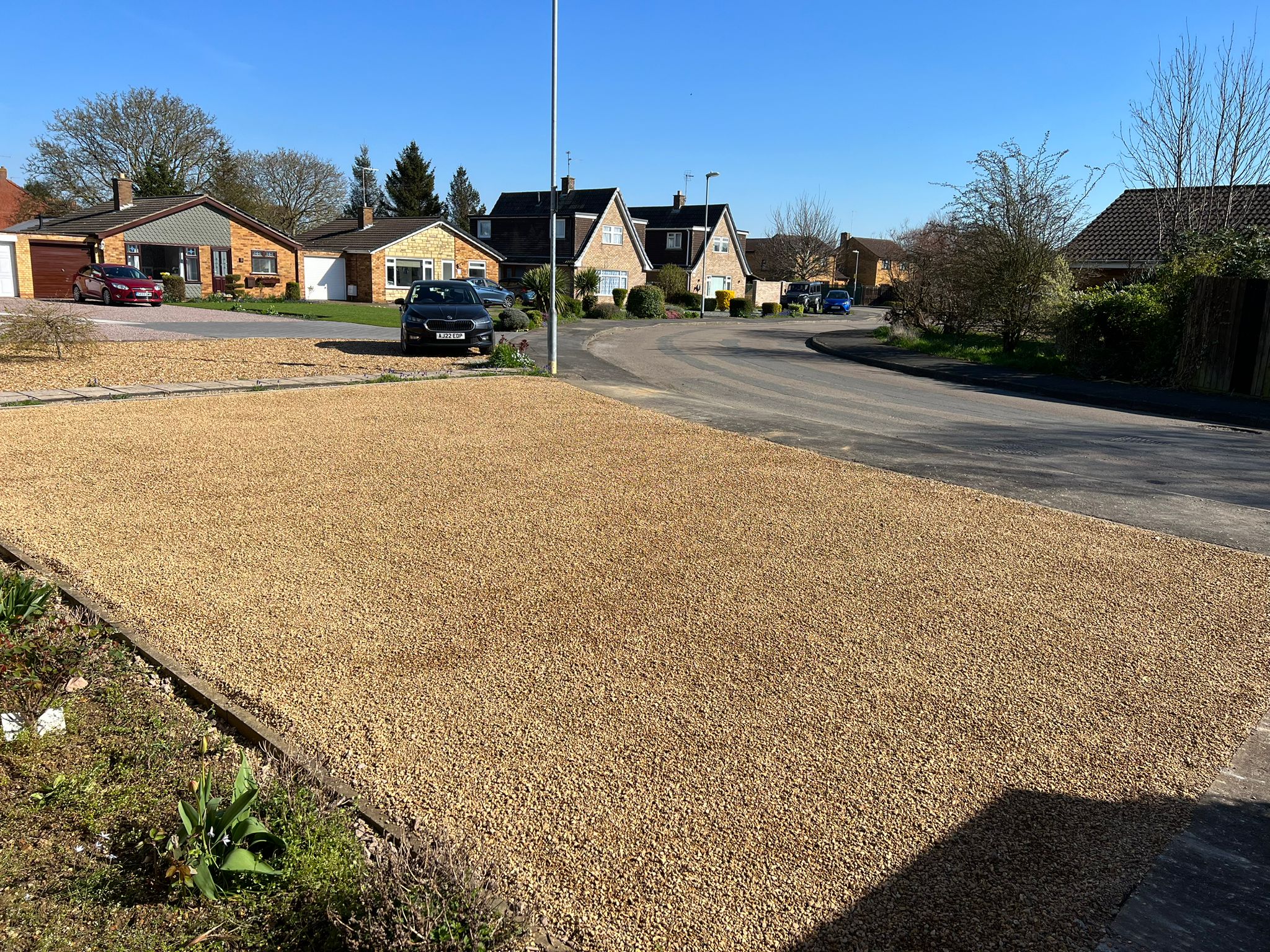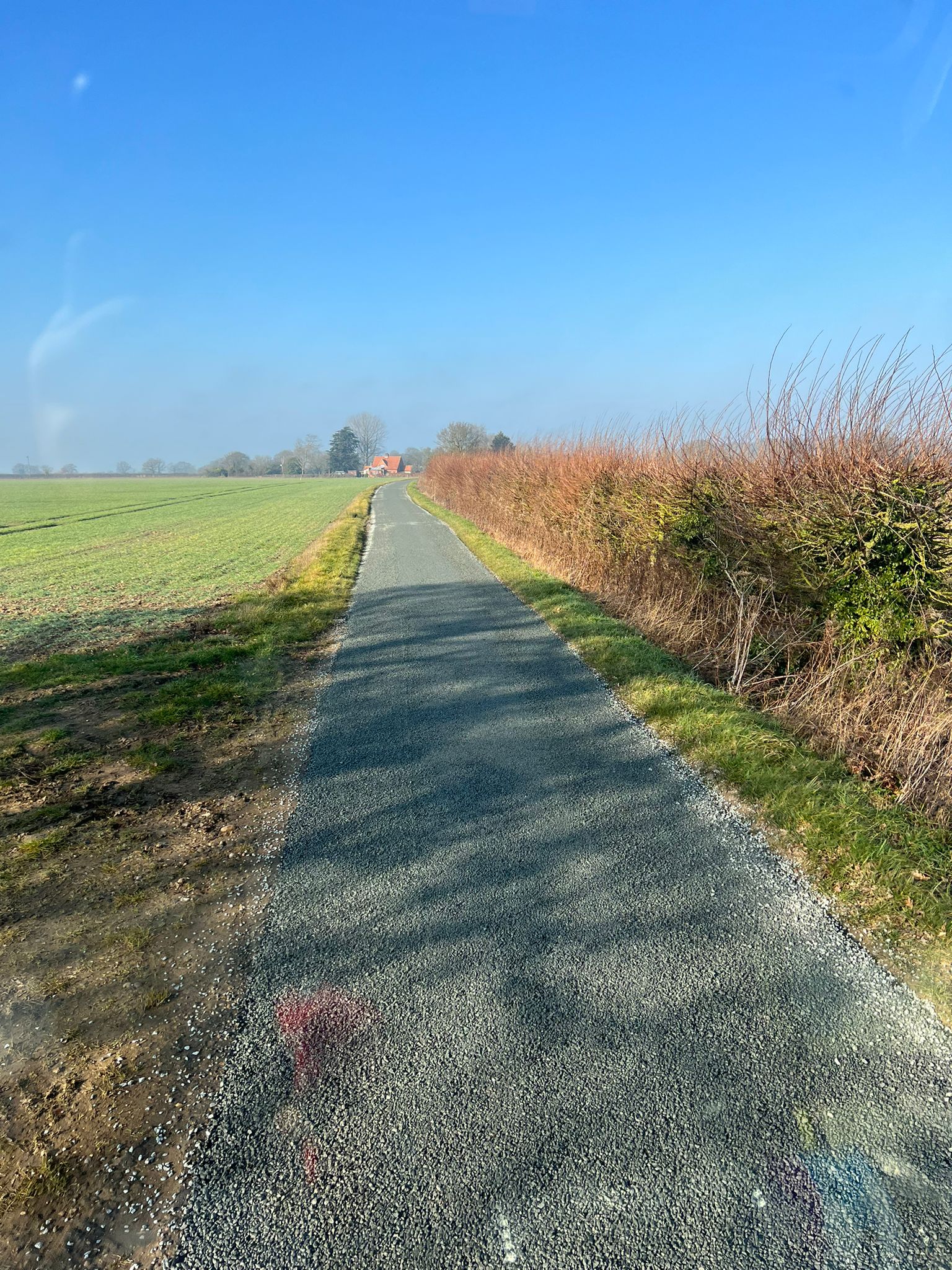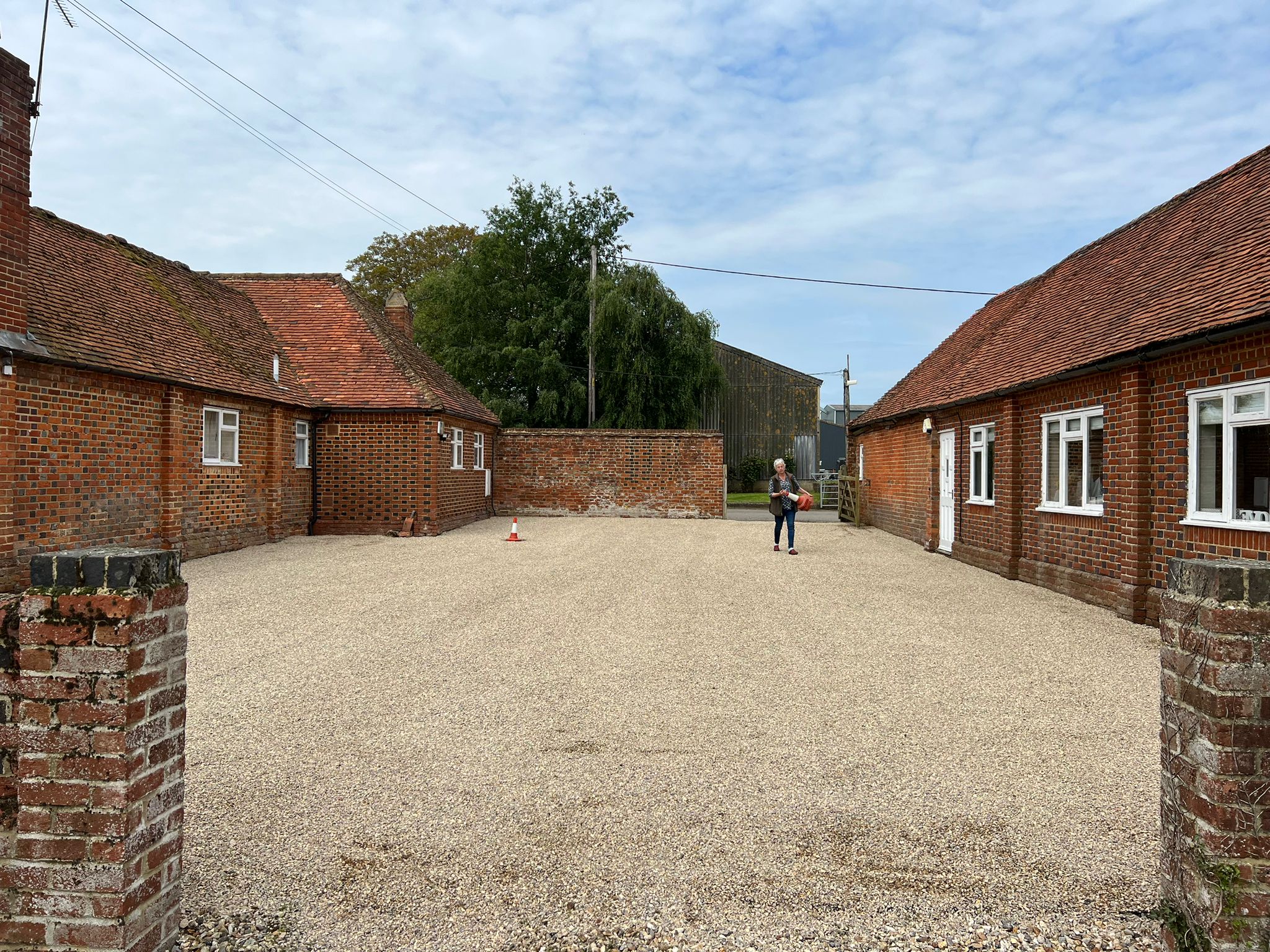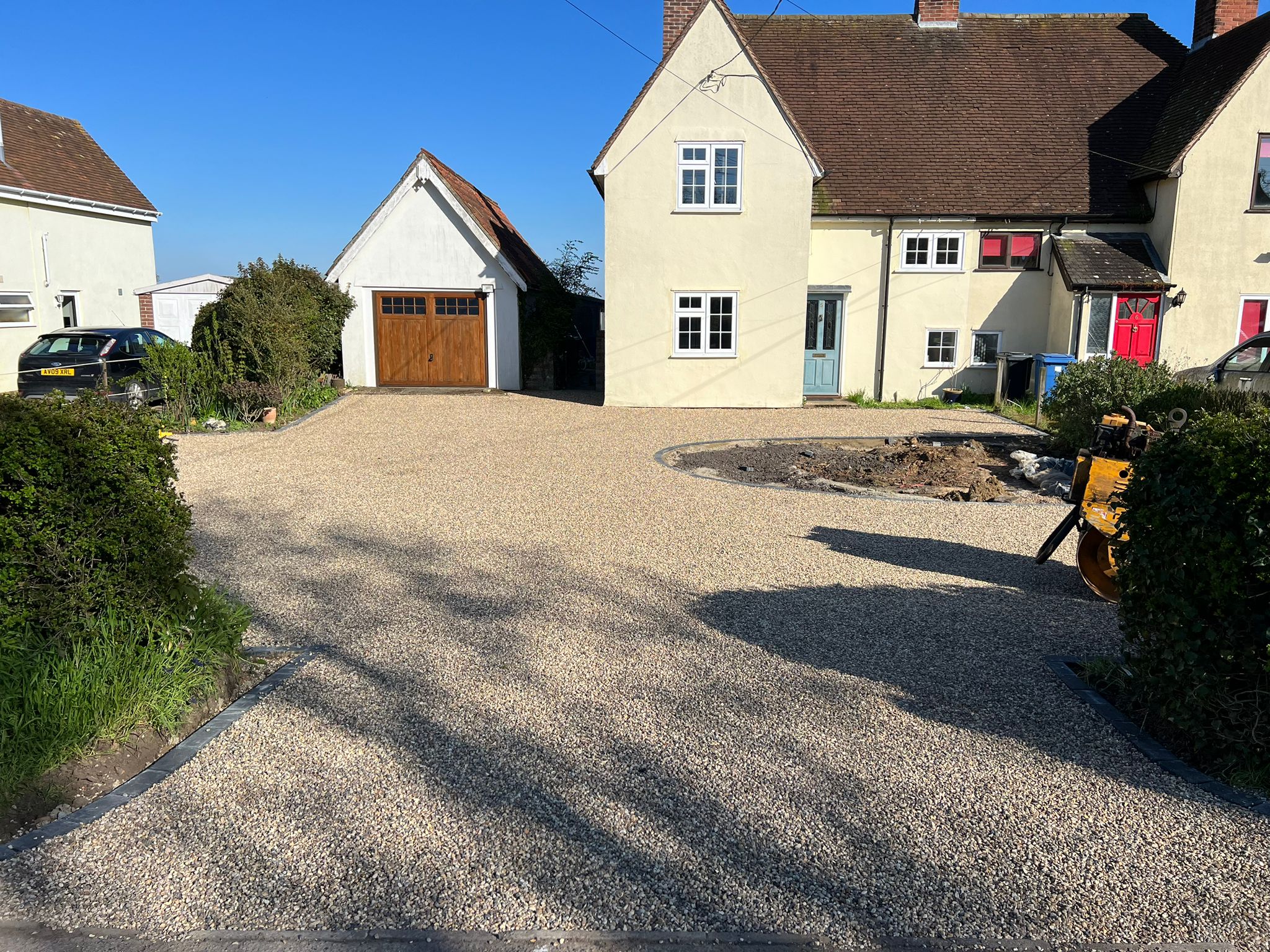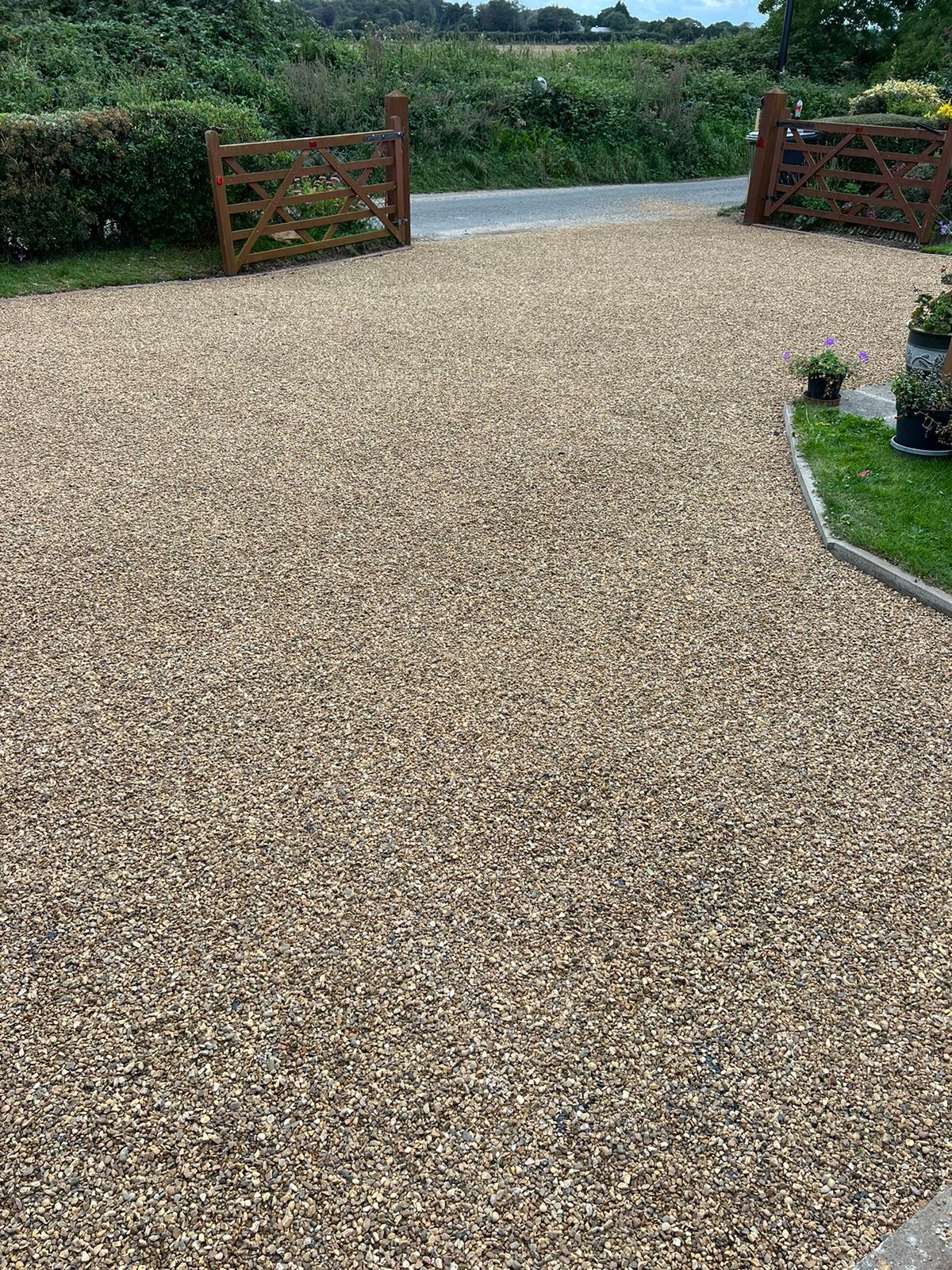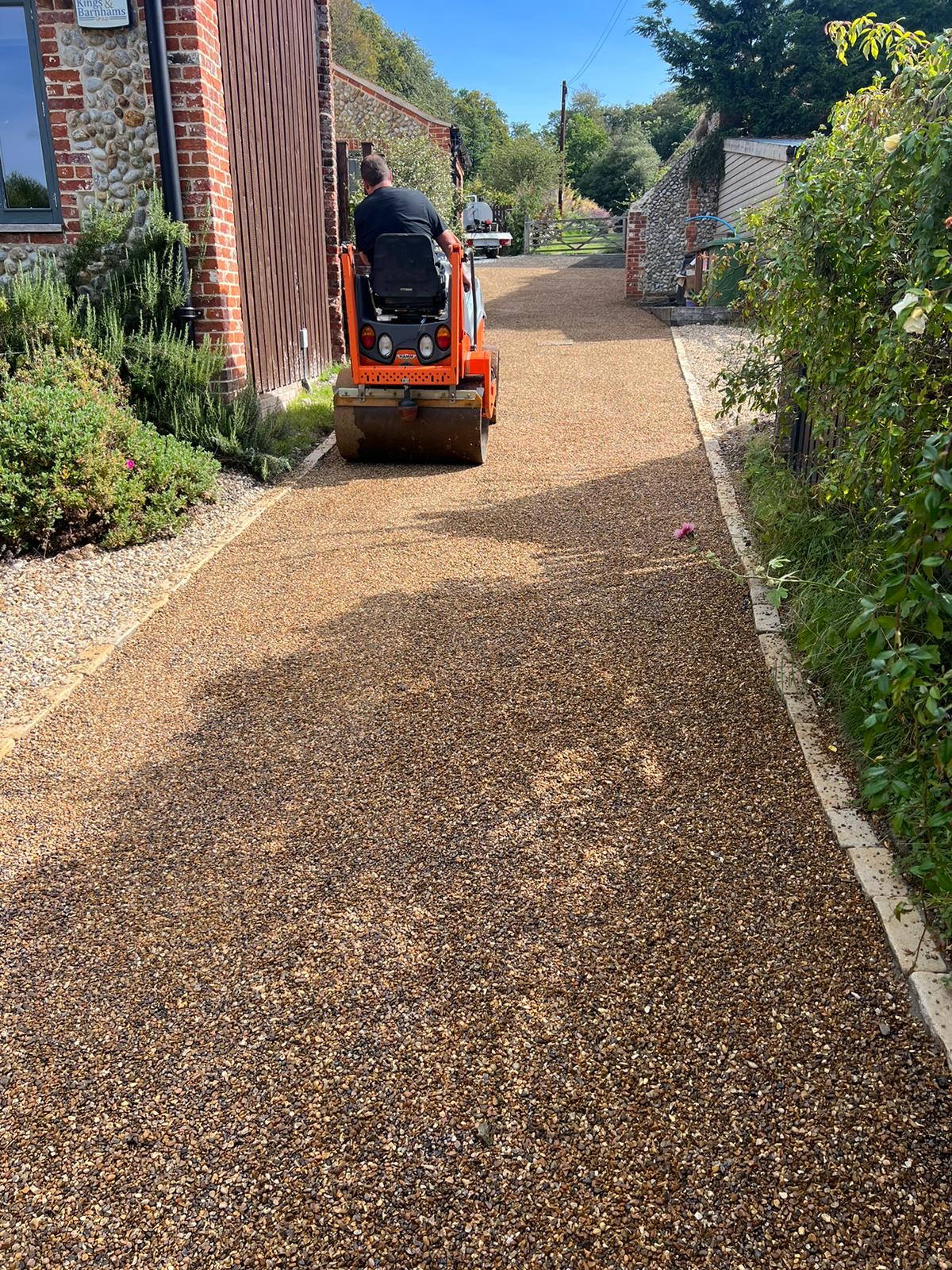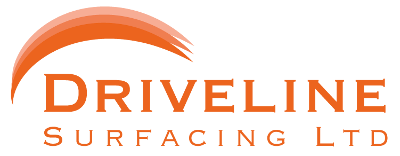Tar & Chip Driveway & Surfacing Specialists
With years of industry experience, we pride ourselves on delivering high-quality, durable, and aesthetically pleasing surfaces tailored to meet your specific needs. Our skilled team uses top-grade materials and state-of-the-art techniques to ensure every project is completed to the highest standards.


GET YOUR FREE QUOTE TODAY
Tar and Chip Driveway Contractors
Driveline Surfacing LTD are specialists in tar and chip driveways and have completed a huge range of surface dressing contracts within the UK, gaining a portfolio of residential and commercial properties. With our self-owned state of the art machinery we can competitively compete for big or small surface dressing contracts.
With years of experience in tar and chip surfacing driveways, we are extremely proud of our reputation and the service we provide, and we have received countless five-star reviews for tar and chip driveways. Every single tar and chip driveway project we undertake gets our full attention. We take our work seriously, because improving your home or business is the most important thing that we could do for you.
We have been installing tar and chip driveways in Norfolk, Essex, Ipswich, Cambridgeshire and Suffolk for many years. Our team have impressive knowledge working with tar and chip surfacing.
Tar and Chip Driveways Pros and Cons
Cost-Effective
Low Maintenance
Traction and Skid Resistance
Aesthetic Appeal
Ease of Repair
Durability
Rough Texture
Snow Removal Challenges
Less Effective in Extreme Temperatures
Lifespan
Not Ideal for Heavy Traffic
Limited Professional Expertise
Pathways
Private Driveways
Commercial driveways
Forecourts
Car parks
Golf Courses and Parks
LOCAL
We are a East Anglia based company
AFFORDABLE
Free on site advice and quotations
TRUSTED
Every Install is Fully Guaranteed
ACCREDITED
4.9 star TrustATrader rated company
EFFICIENT
In house staff and surveyors
What is a Tar and Chip Driveway?
A tar and chip driveway, also known as chip-and-seal, macadam, or liquid-asphalt-and-stone, is a cost-effective alternative to traditional asphalt paving.
This type of driveway consists of a base layer of hot tar, followed by a layer of aggregate stones that are compacted into the tar.
The result is a solid, textured surface offering improved traction. Tar and chip driveways are low maintenance, aesthetically versatile, and provide a natural, rustic appearance that blends well with rural settings. Ideal for low-traffic areas, they are a popular choice for residential driveways, country roads, and scenic routes.
How long does a tar and chip driveway last?
Tar and chip driveways typically last between 7 to 10 years, depending on various factors such as climate, traffic volume, and the quality of installation and materials used.
Proper maintenance can extend their lifespan but generally require less upkeep than traditional asphalt driveways.
Weather conditions like extreme temperatures and heavy rainfall can impact durability, and driveways in areas with less traffic and milder climates tend to last longer. Regular monitoring and minor repairs can help maintain their condition over the years.
How we do tar-and-chip driveways?
All preparation is carried out if there is a current surface which is just showing signs of fatigue and needs a protective coat we will just thoroughly clean the surface removing all unwanted debris and defects. However if it requires kerbs or a sub base this is usually carried out the day before. At this stage we can widen roads, create new roads, lay recycled road planning’s, install kerb edging to act as a retainer or decorative feature.
Once all preparation work is completed we would move onto the installing the tar and chip surface. A k-170 polymer reinforced bitumen liquid is heated to 80 degrees and sprayed onto the surface. This seals the surface preventing water penetrating into the surface causing damage. This also forms a bond for the aggregate of choice followed.
A double washed Aggregate of your choice is applied directly to the hot liquid , the aggregate is compacted into the hot k-170 bitumen liquid to ensure proper embedment. Leaving a final country finish which will look good for the years ahead.
Tar and chip is also known as:
- Tar and Stone
- Tar and Chippings
- Tar and granite
Spray tar and chippings
Chip and seal
WHAT DOES A TAR AND CHIP DRIVEWAY LOOK LIKE?
Get a free no obligation quote
Frequently Asked Questions
Our minimum charge for tar and chip surfacing is £3,250 + VAT. This covers the cost of bringing out our tanker, equipment, and team to complete the work to a professional standard. If this budget doesn’t align with your project, tar and chip may not be the most suitable option for you.
Tar and chip is very low maintenance compared to other driveways, however we do not guarantee 100% no weed growth.
Most tar and chip surfaces have 80% aggregate inbedded into the tar and 20% loose aggregate on top. If you are looking for a surface which leaves no loose aggregate resin bound would be the best option
Prices range from £10 a square metre for a large overlay area to £70 a metre for a when a new sub base is required. These prices may vary depending on the area need doing.
A hot polymer cb-672 tar is sprayed to the base in question around 70 degrees with either a 6-10mm golden pea aggregate or a 6-10mm grey granite chipping applied into the hot tar forming a hard surface.
As times as changed the and the winters are not as harsh as they use to be we tend to work all year round. As long as the ground conditions are reasonably dry and the temperature is above 6 degrees tar and chip surfacing can be carried out.
Tar-and-chip (chip-and-seal) is generally cheaper than tarmac (asphalt). The cost difference arises from the materials used and the installation process. Tar-and-chip driveways use less expensive materials and a more straightforward installation process compared to tarmac. This makes it a more budget-friendly option for those seeking a durable and effective driveway solution without the higher cost associated with asphalt paving. However, while tar-and-chip is more affordable initially, it’s important to consider long-term maintenance and durability when comparing overall costs.
Typically, you can drive on a tar-and-chip surface within a few hours after its application. The exact time can vary depending on weather conditions and the specific materials used. In hot and dry conditions, the surface can set more quickly, while in cooler or more humid weather, it may take longer. It’s generally advisable to wait at least 24 to 48 hours before driving on it to ensure the surface has properly set and cured. This waiting period helps in achieving a firm and durable finish, preventing any damage from premature use.
Areas we cover
Areas we cover
Wisbech
Peterborough
Cambridge
St Neots
Huntingdon
Ely
Areas we cover
Colchester
Chelmsford
Clacton
Frinton
Harwich
Braintree
Witham
Tiptree
West Mersea
Brightlingsea
Manning-tree
Surrounding villages
Areas we cover
Lincoln
Boston
Grimsby
Scunthorpe






